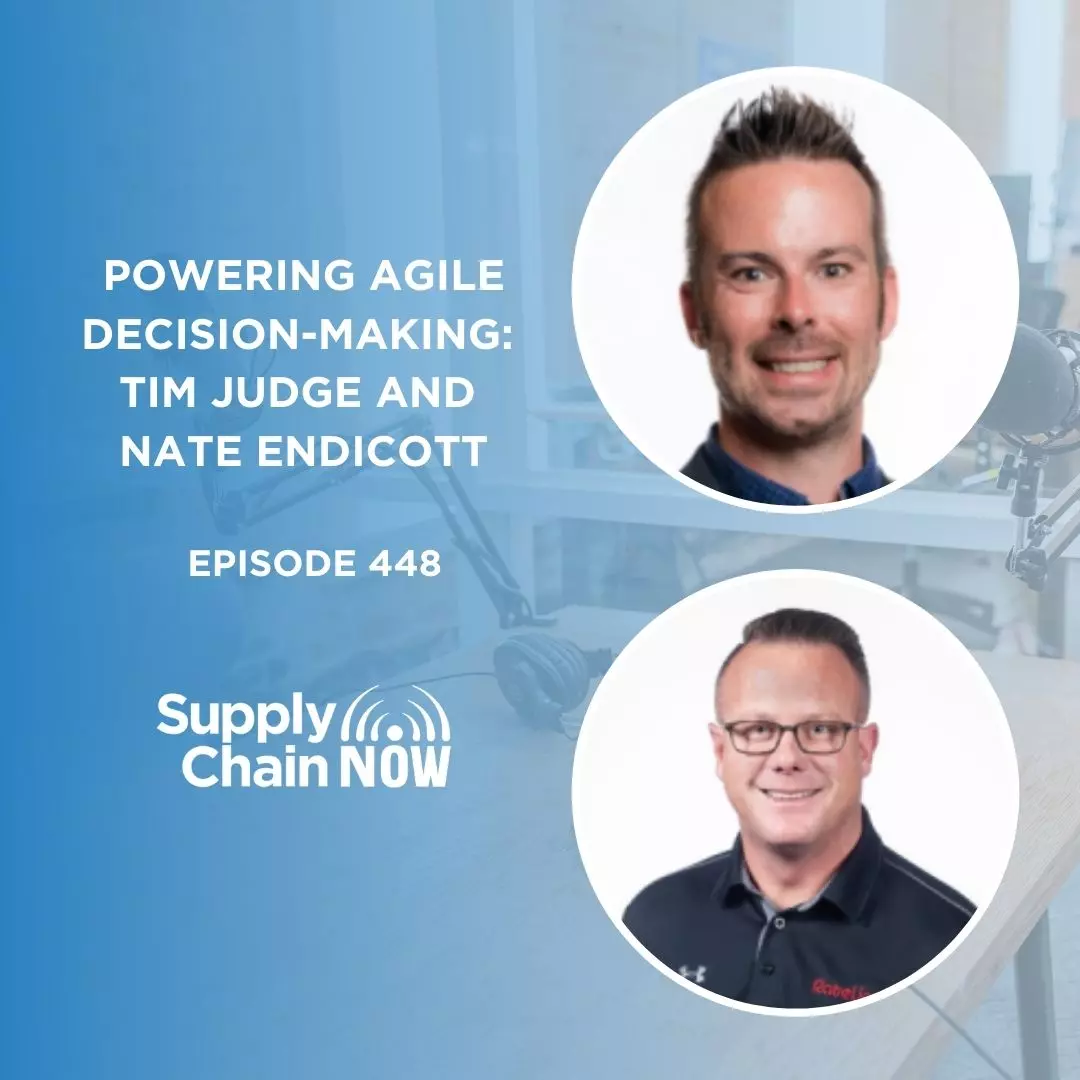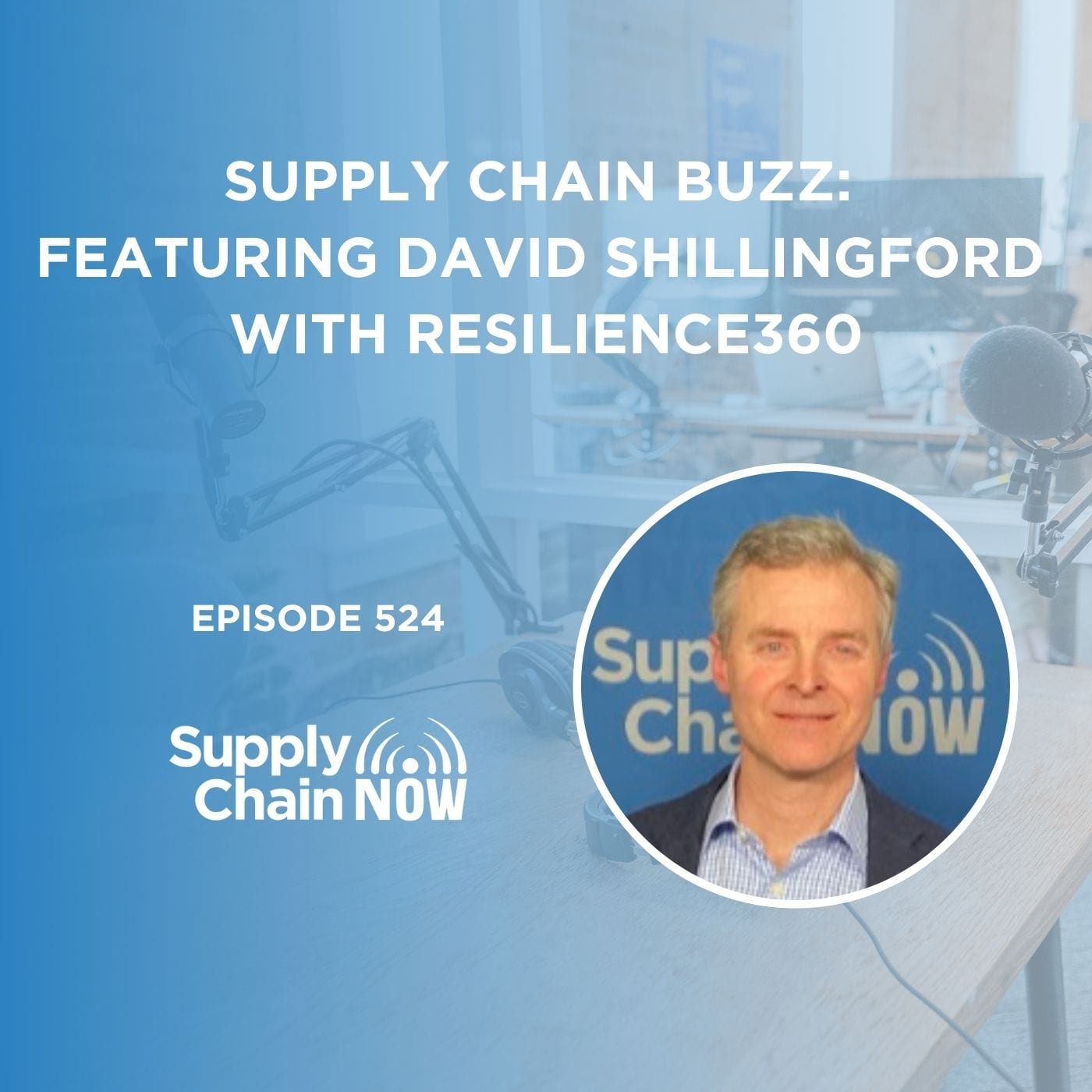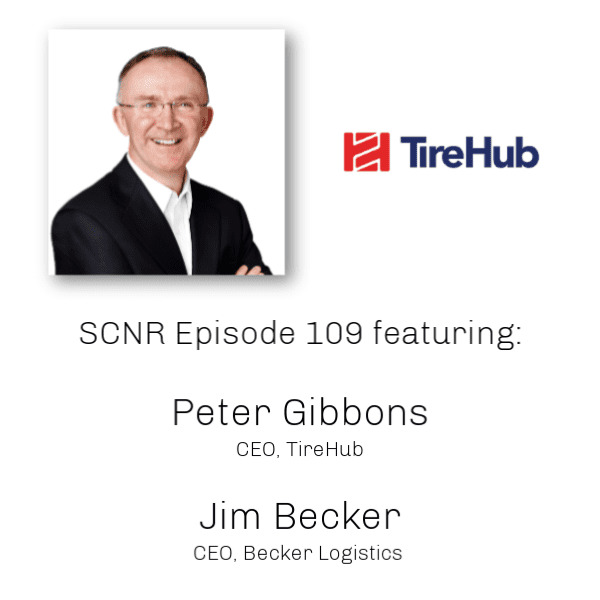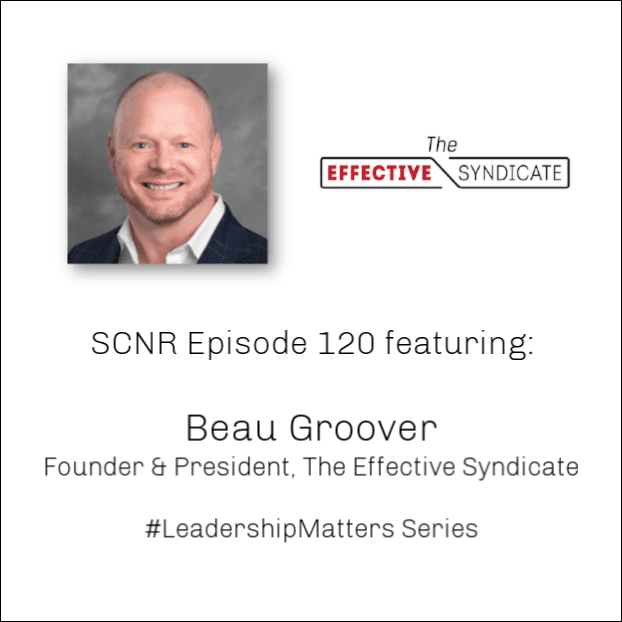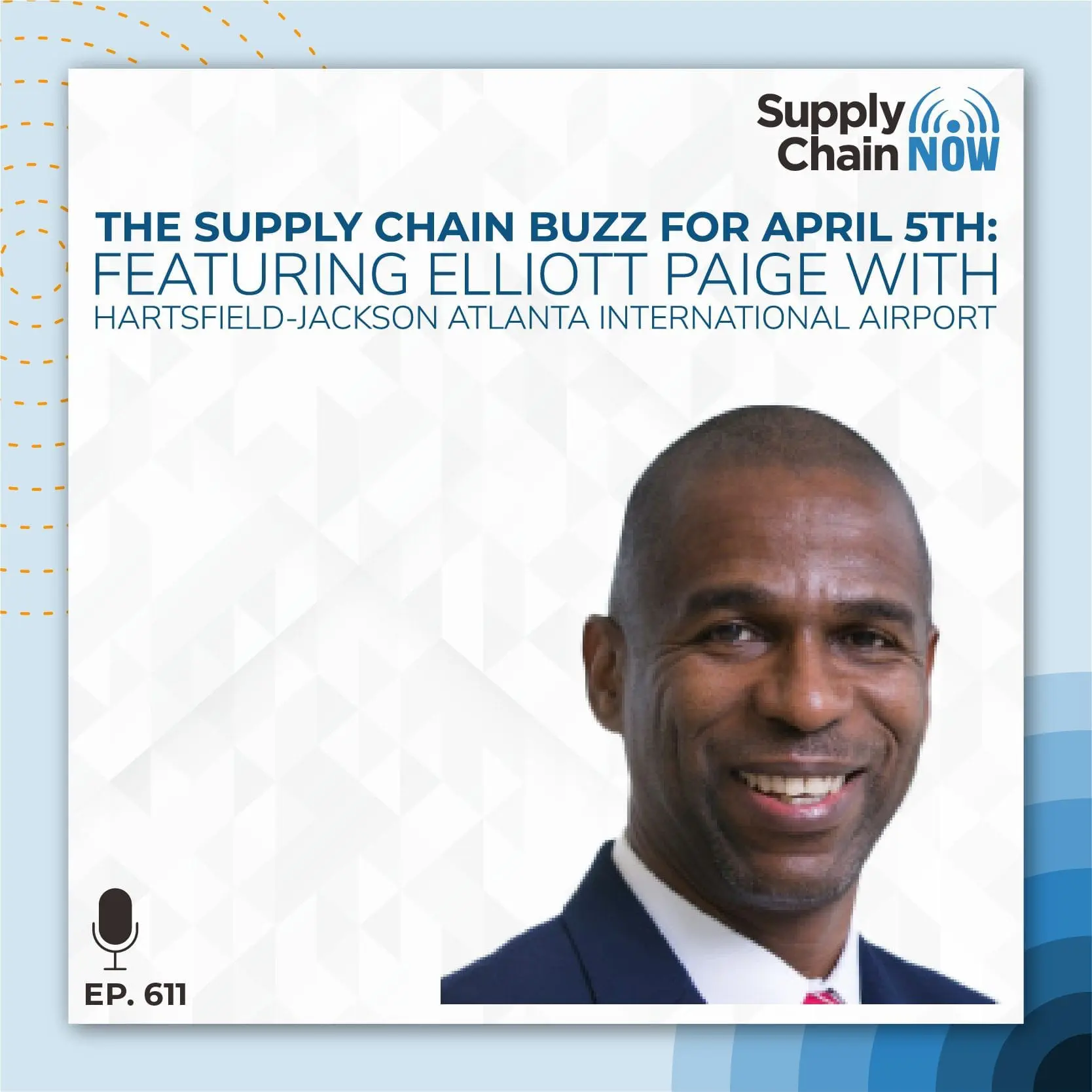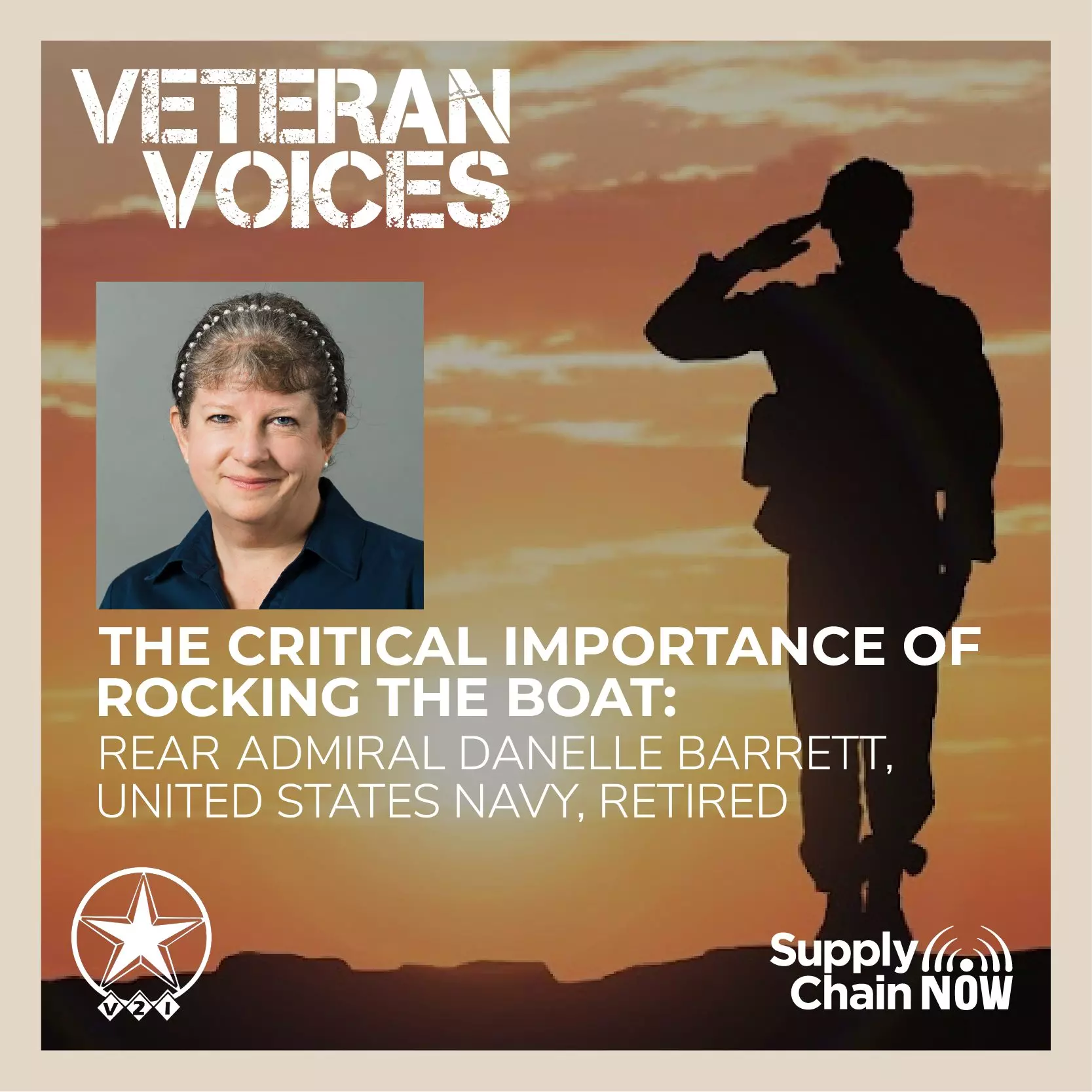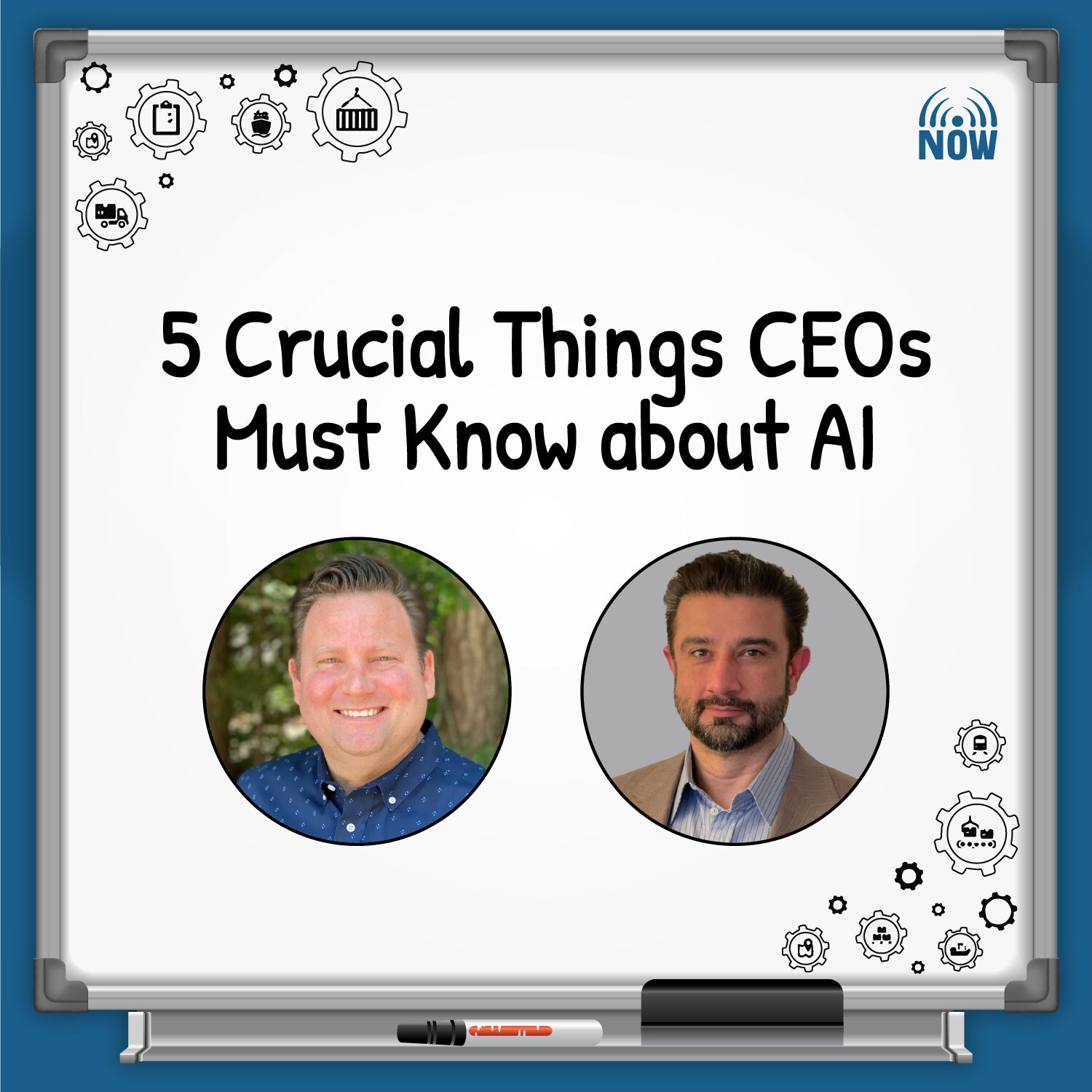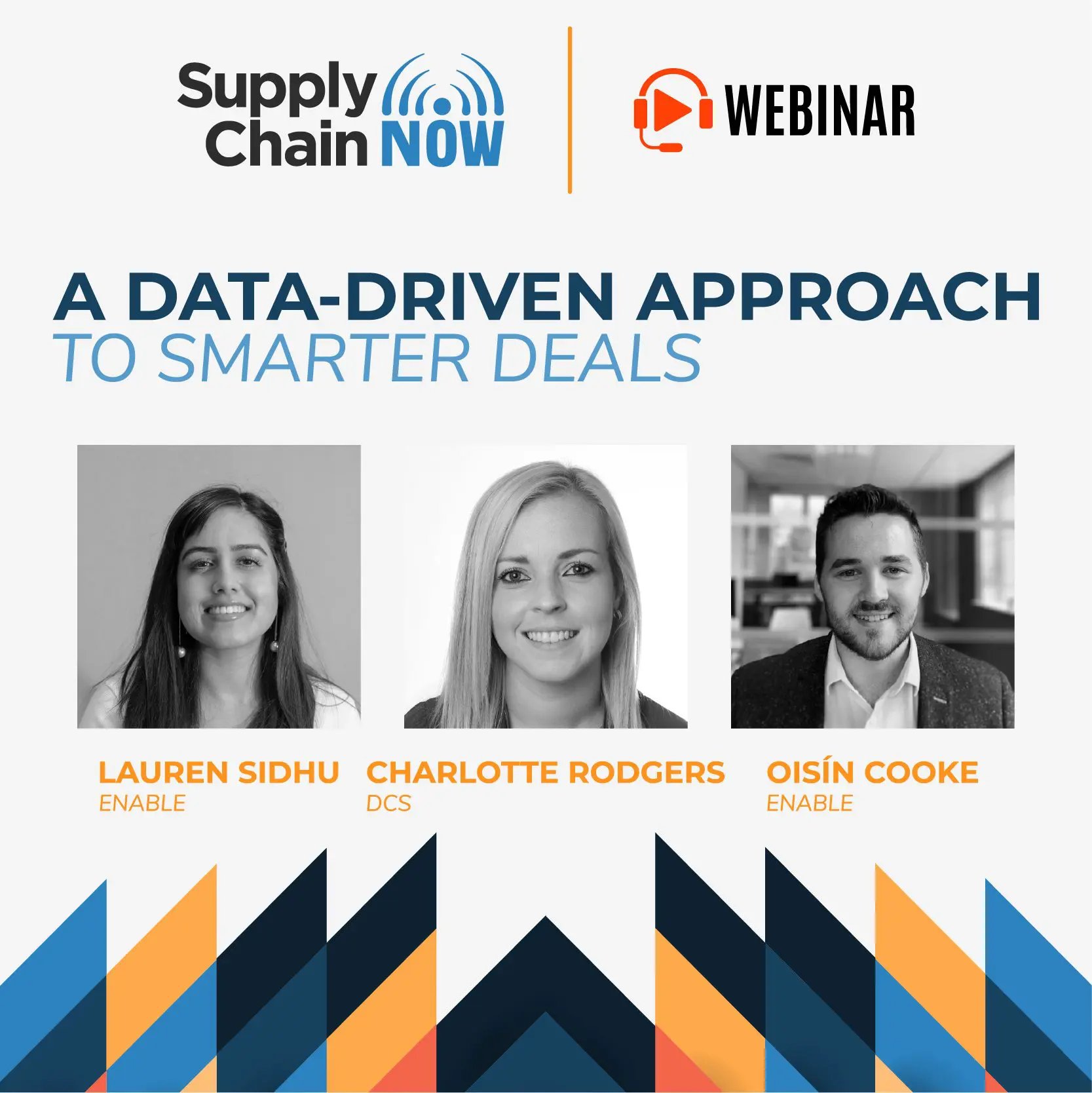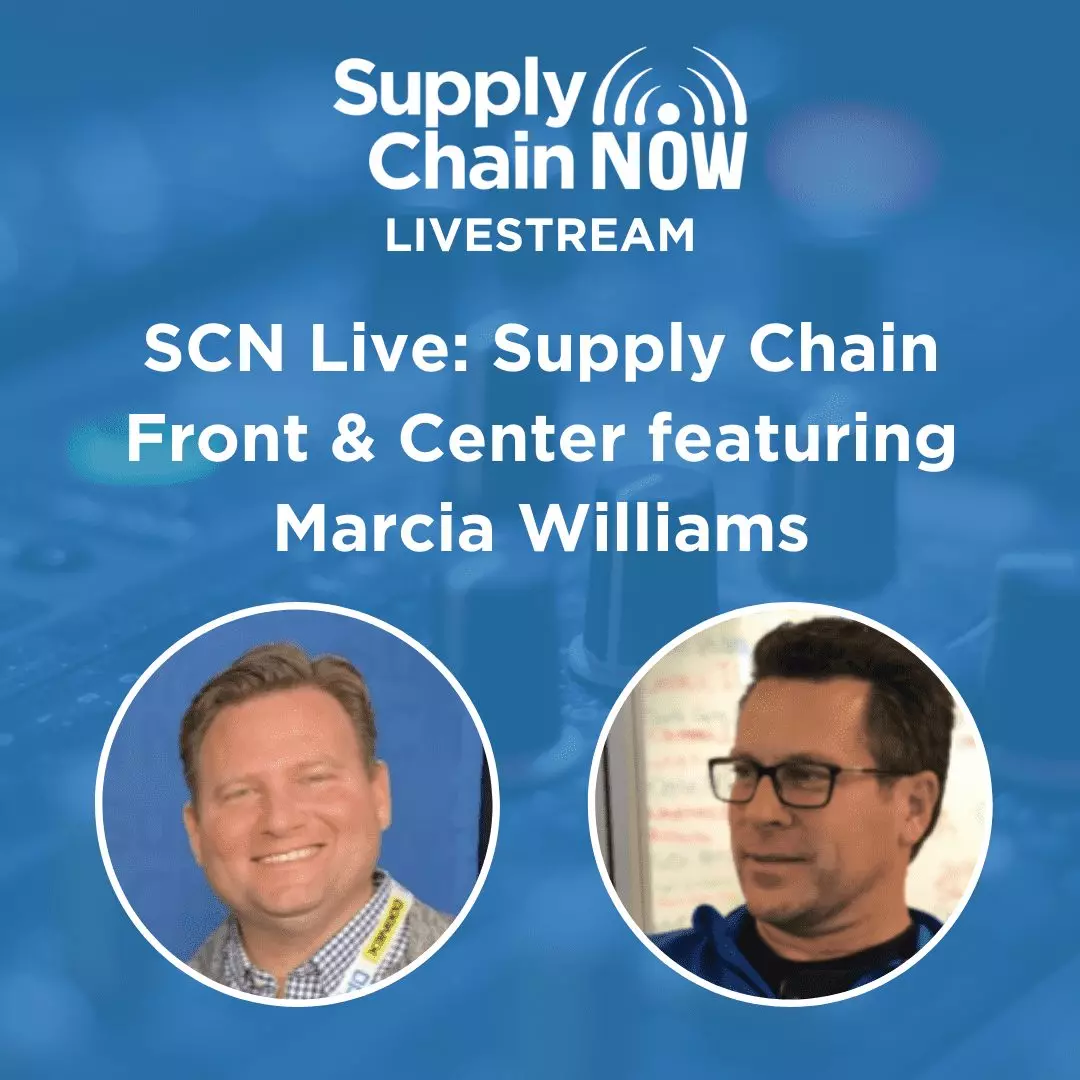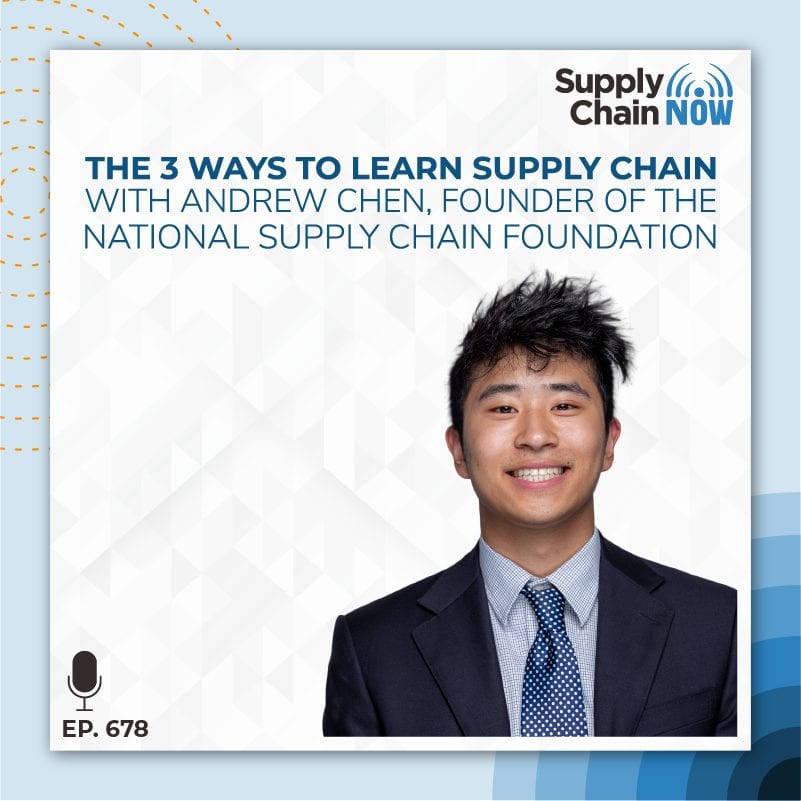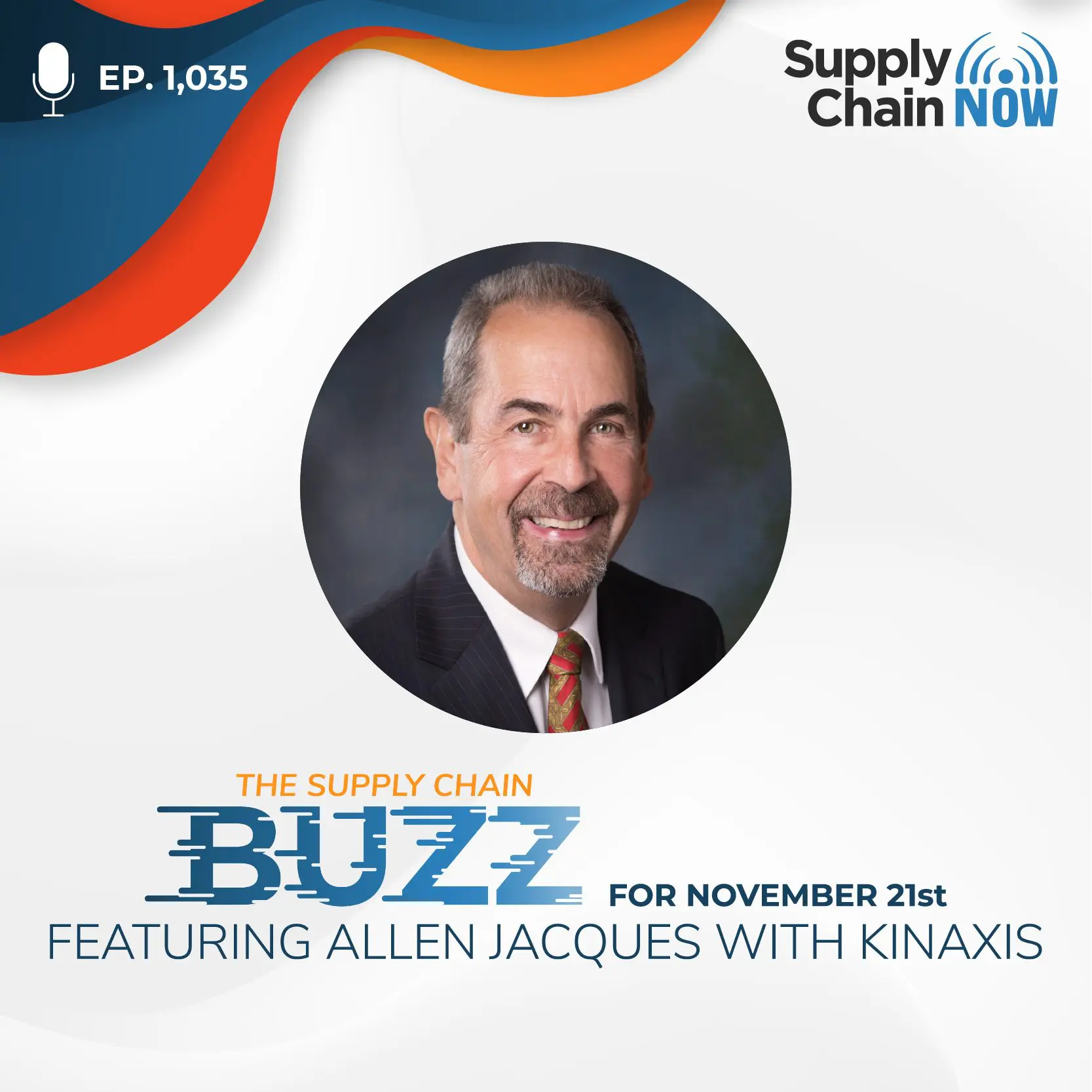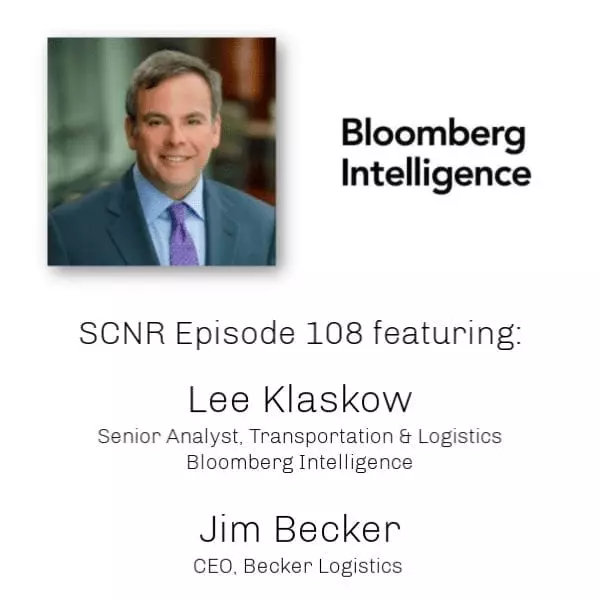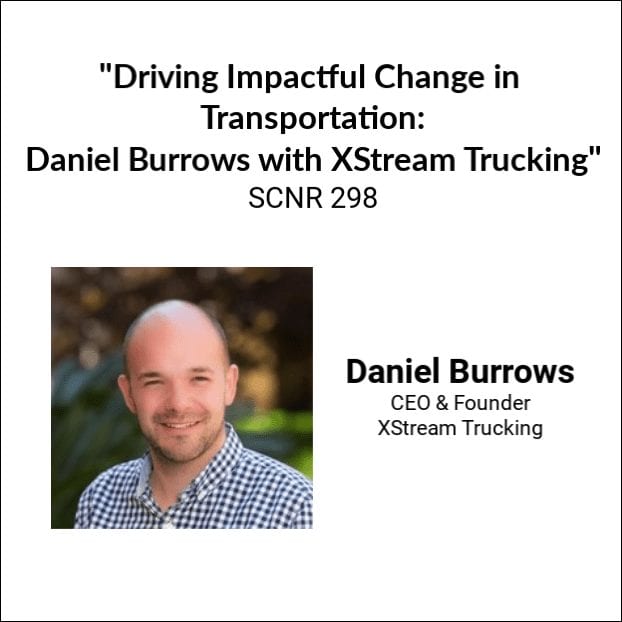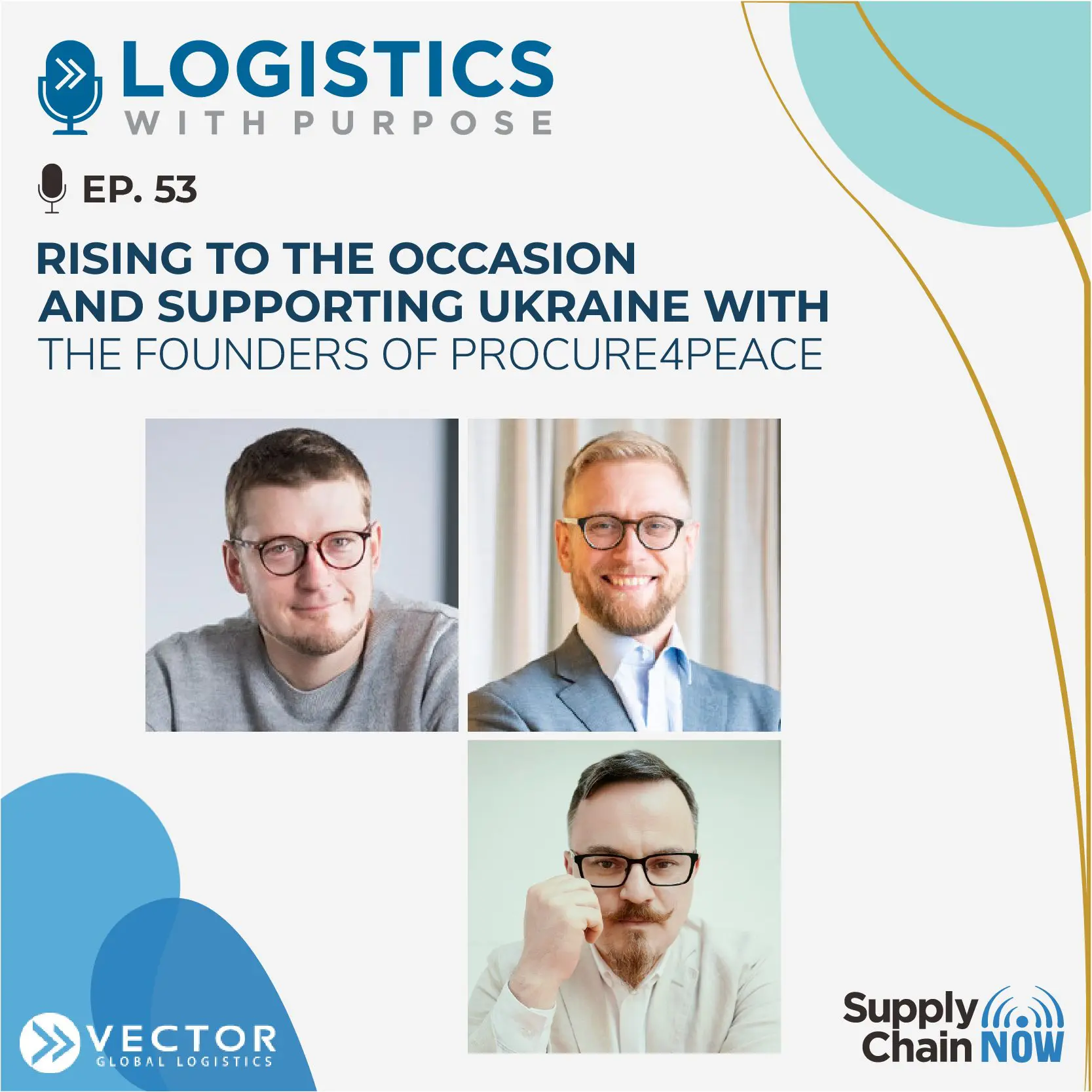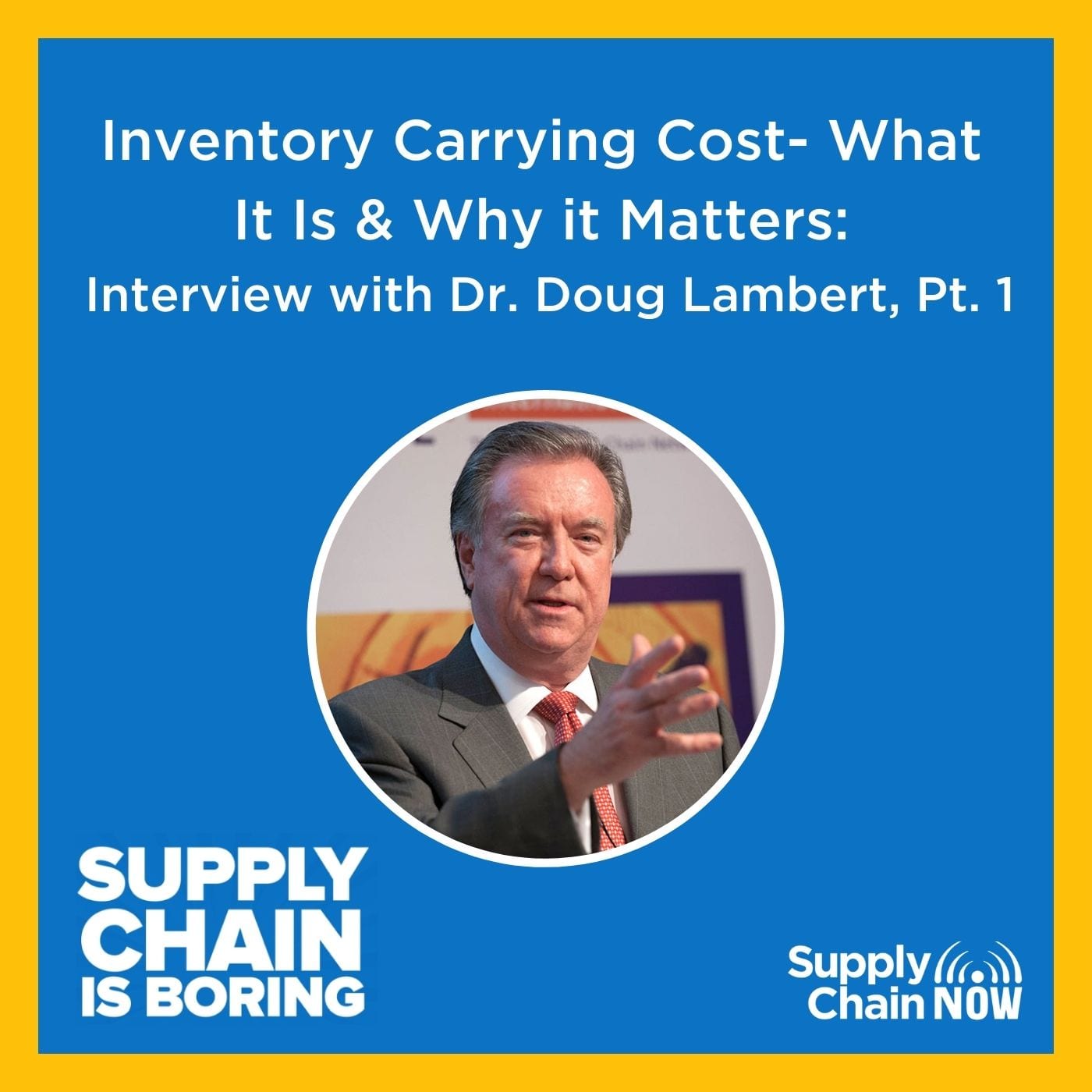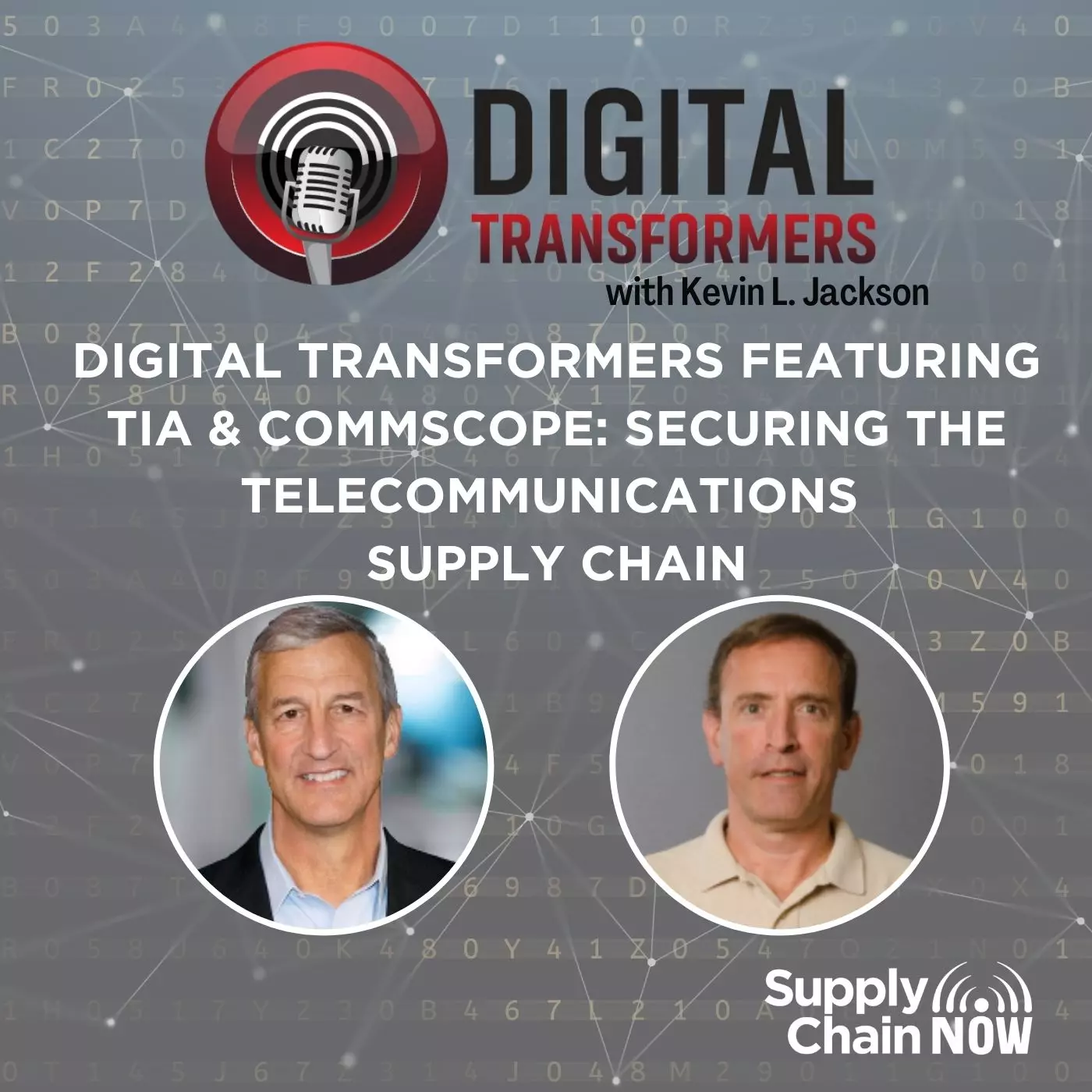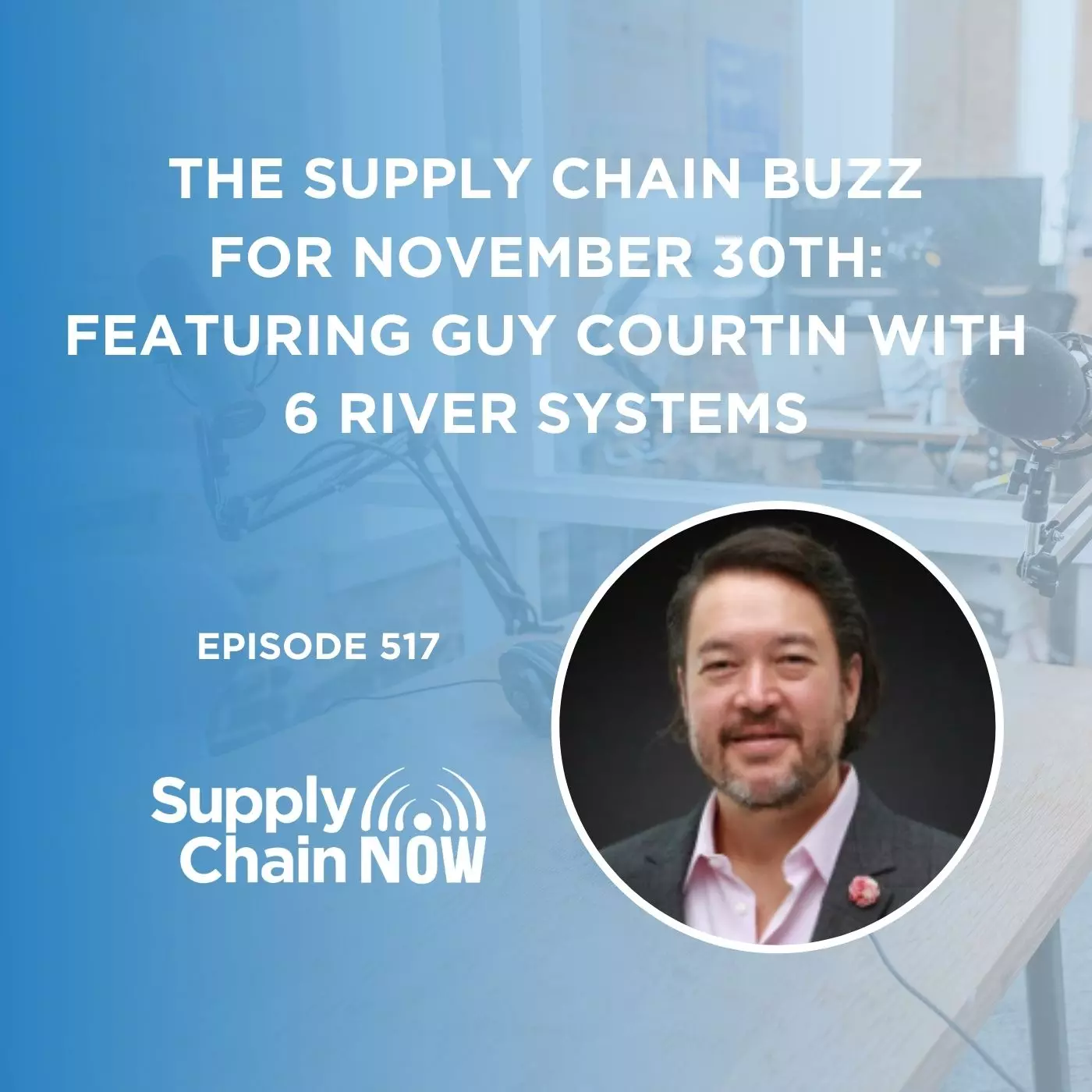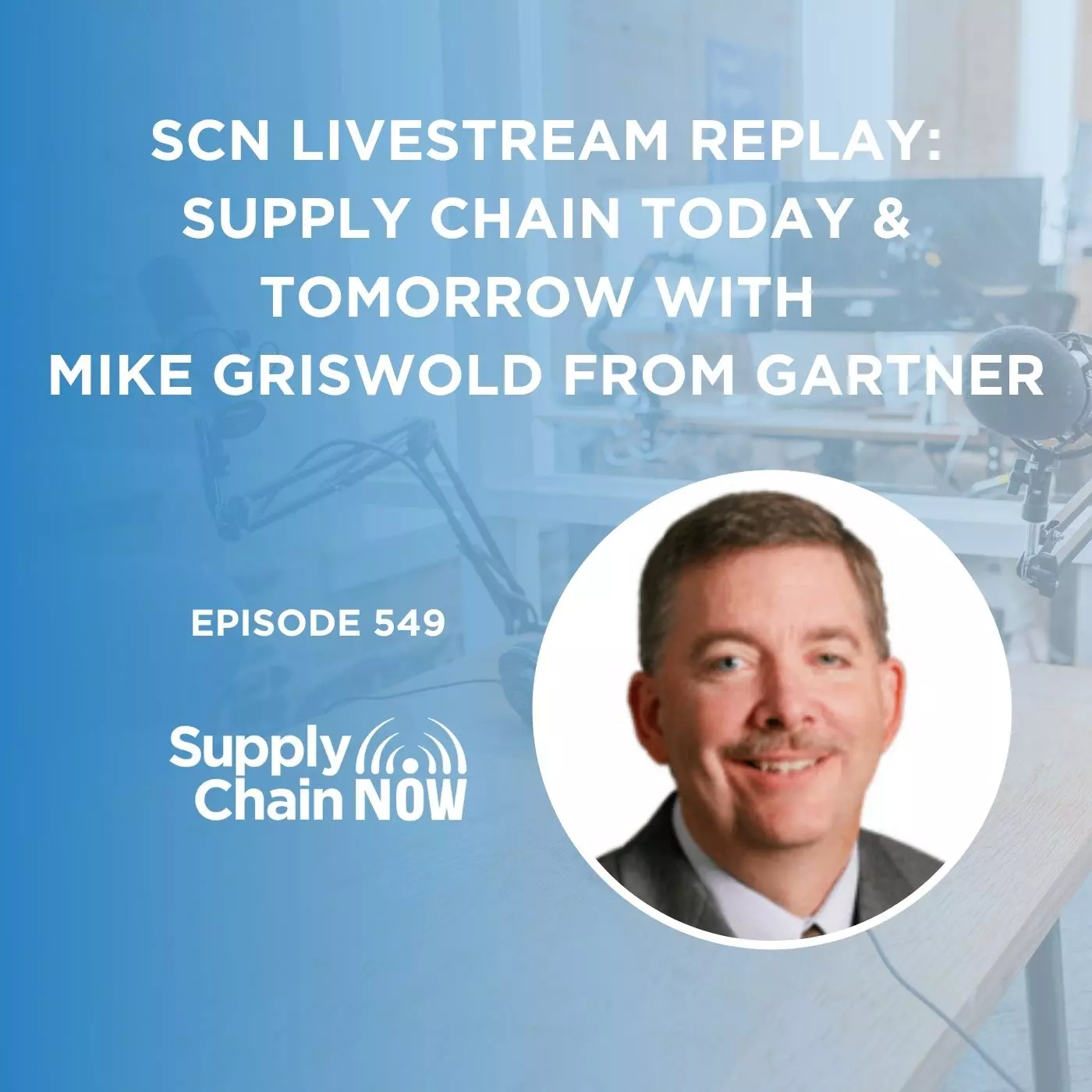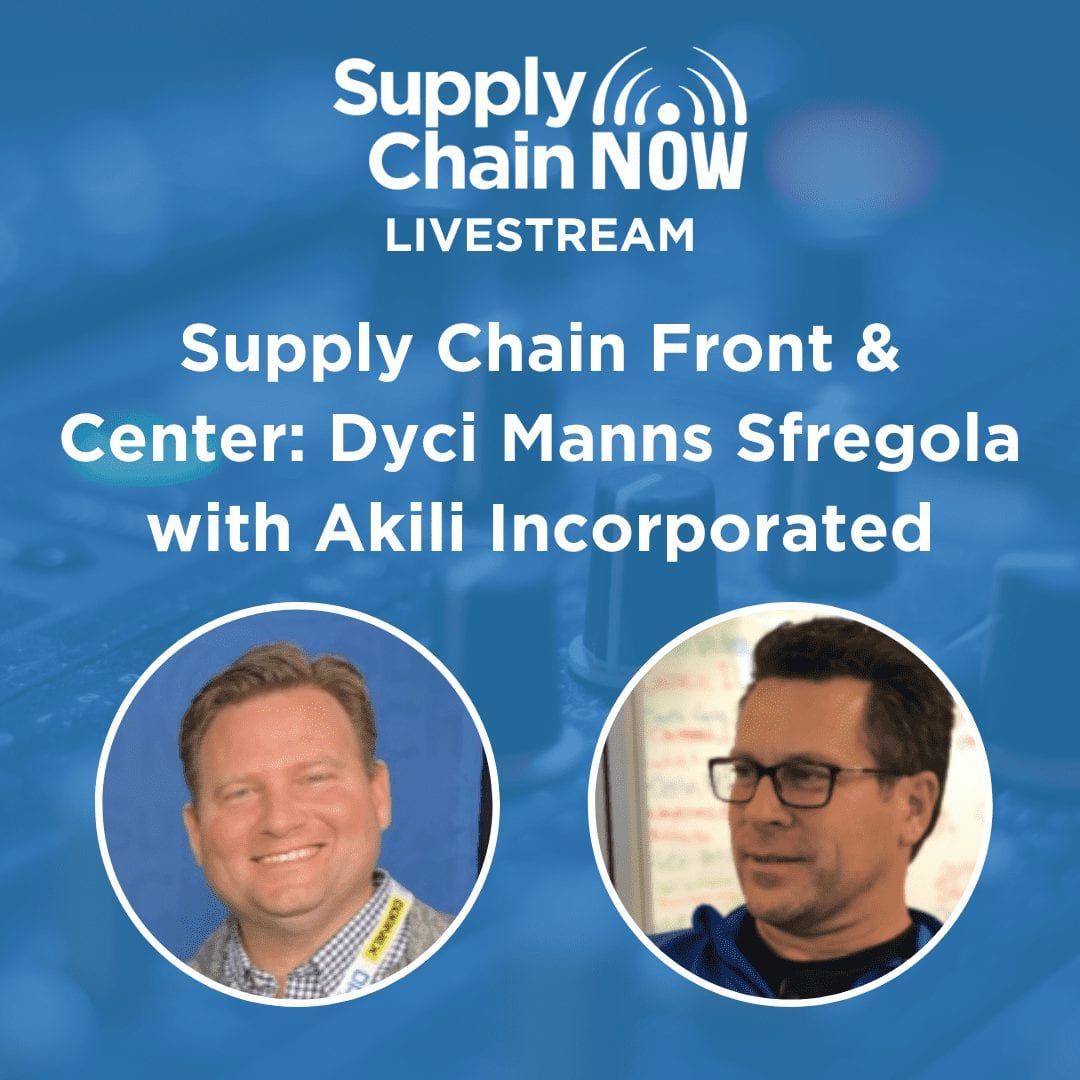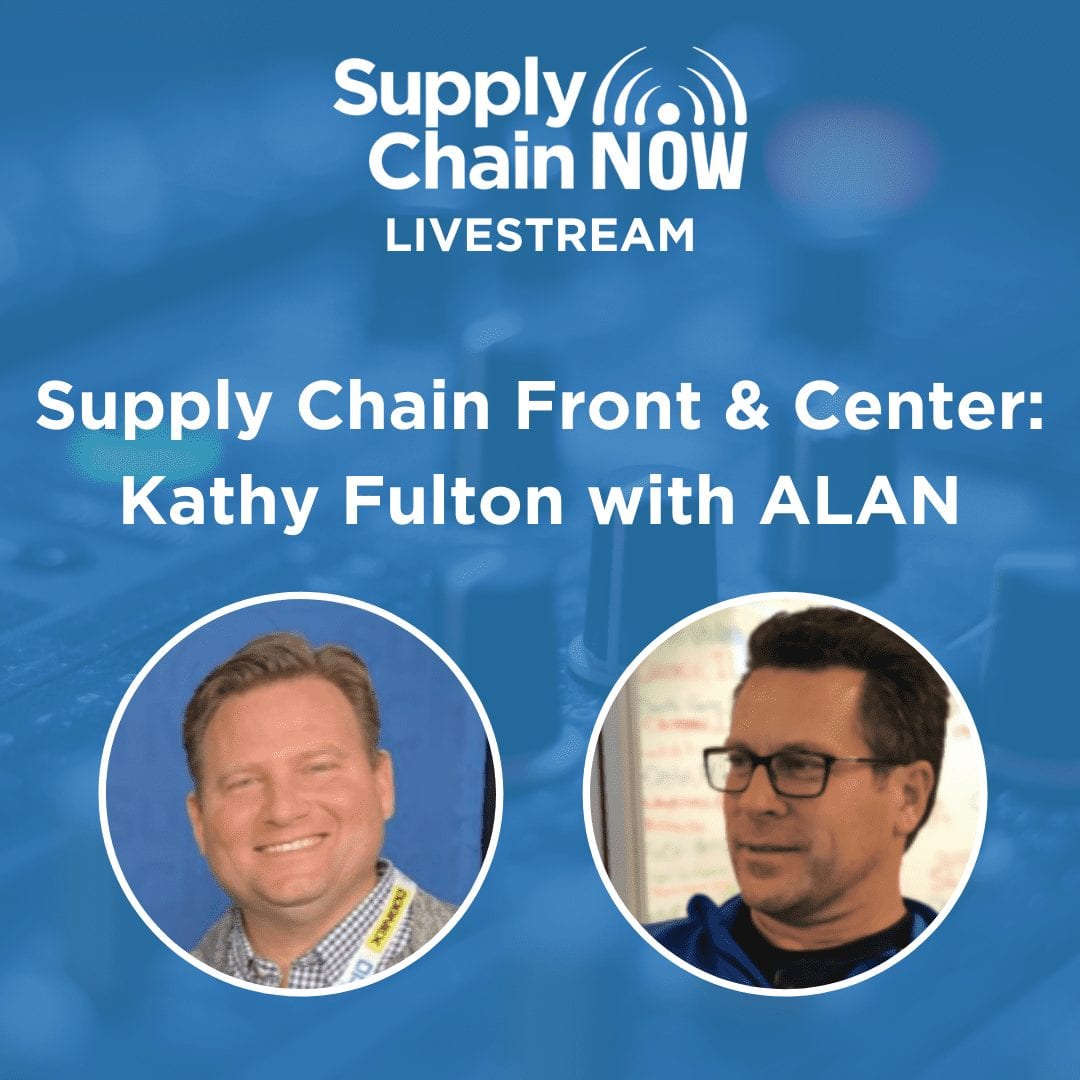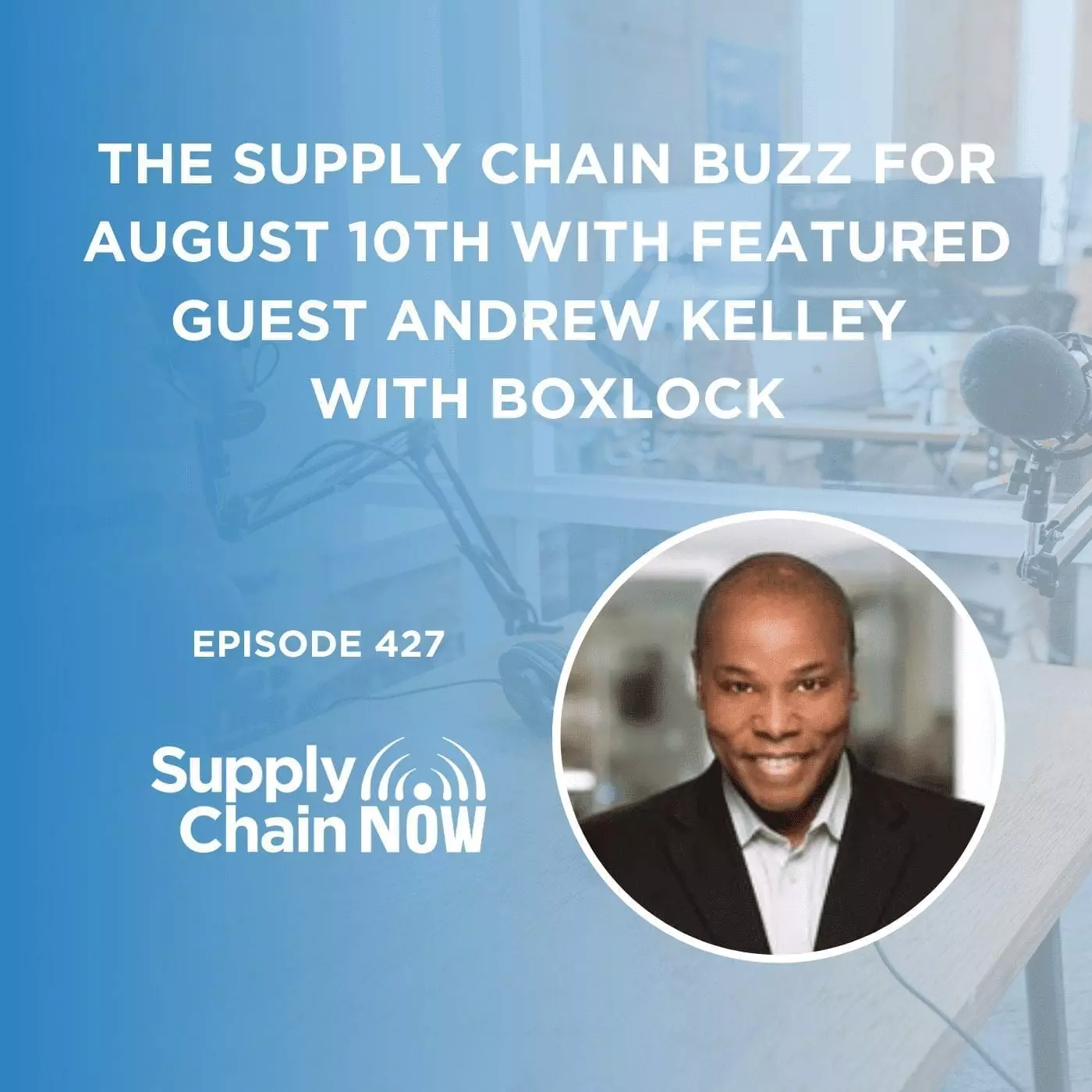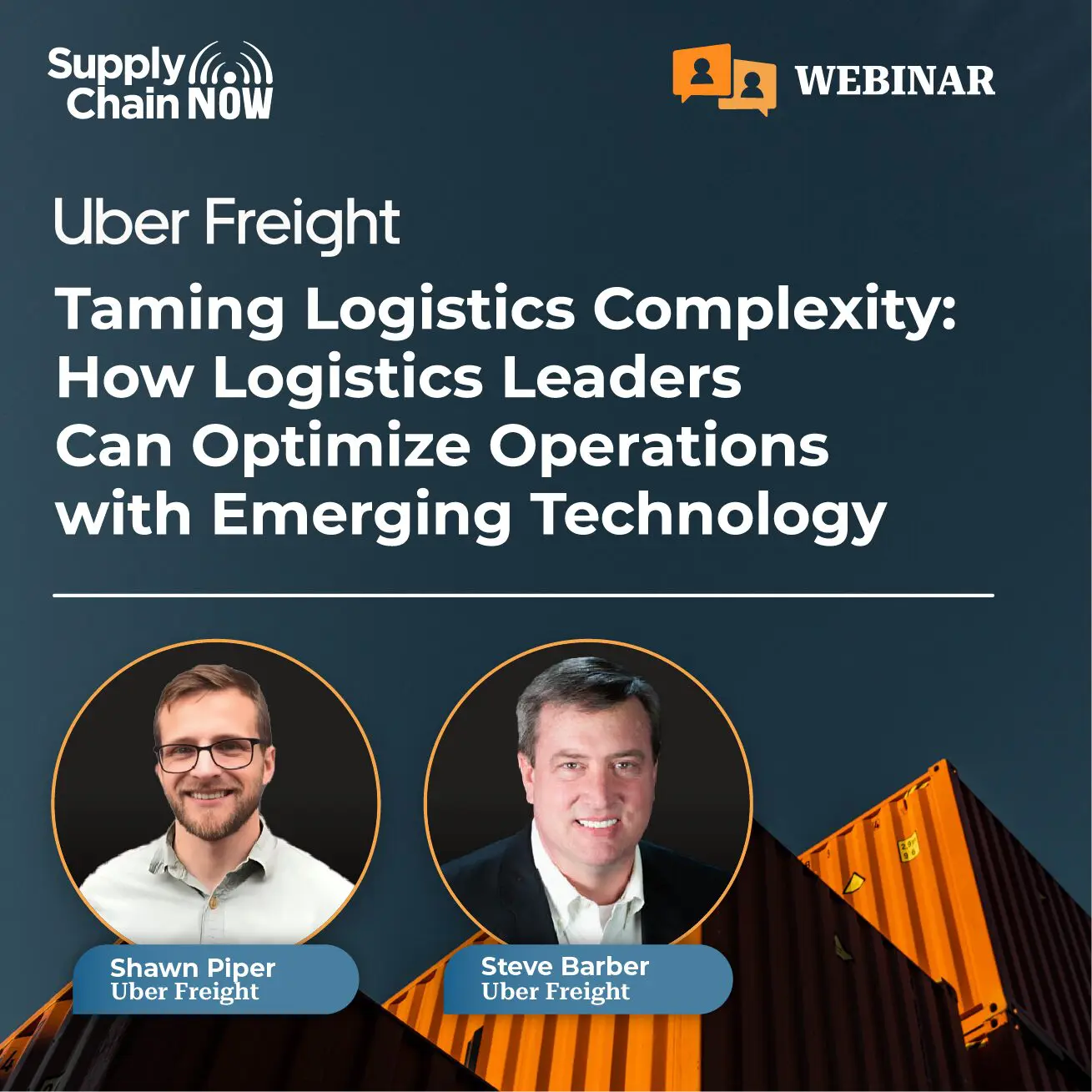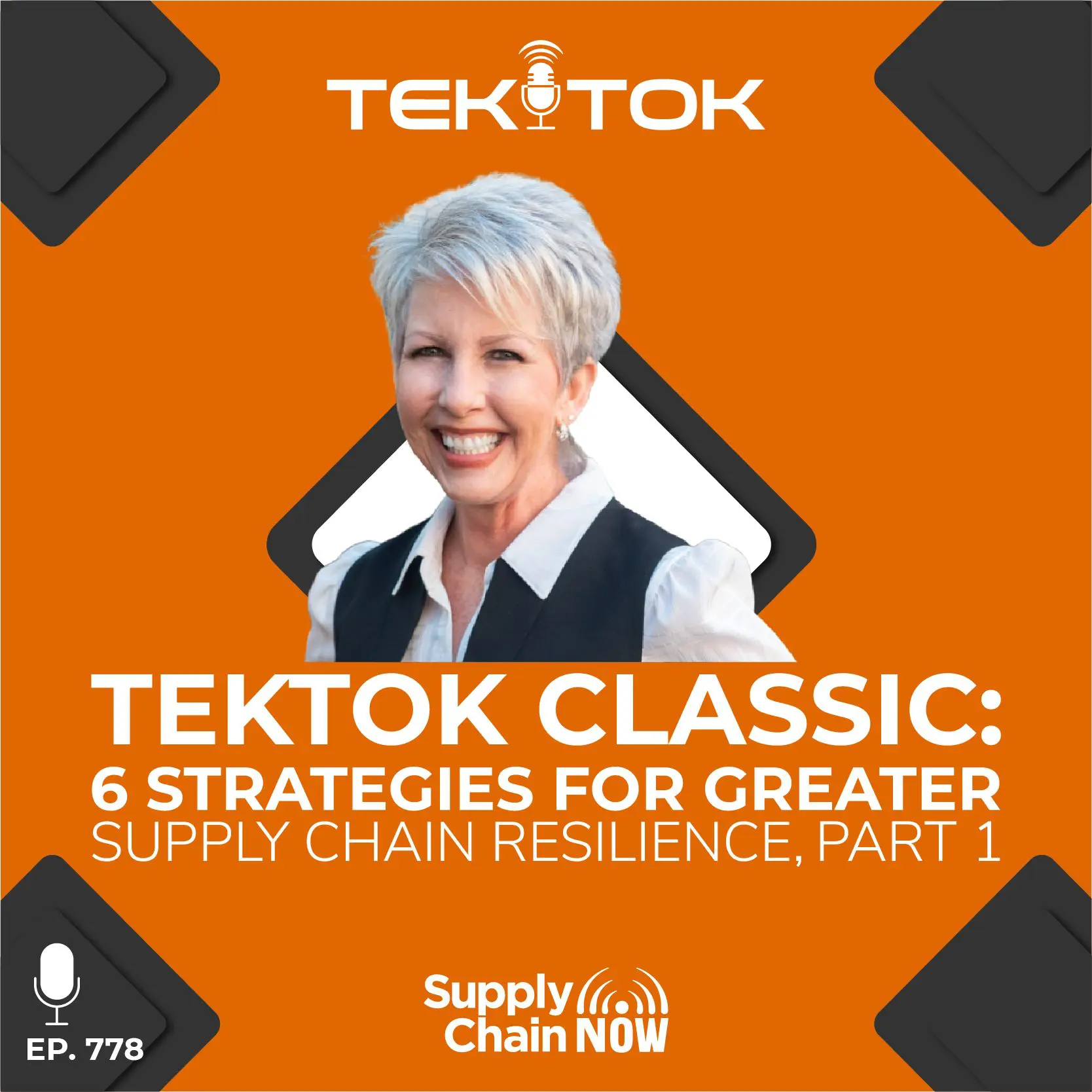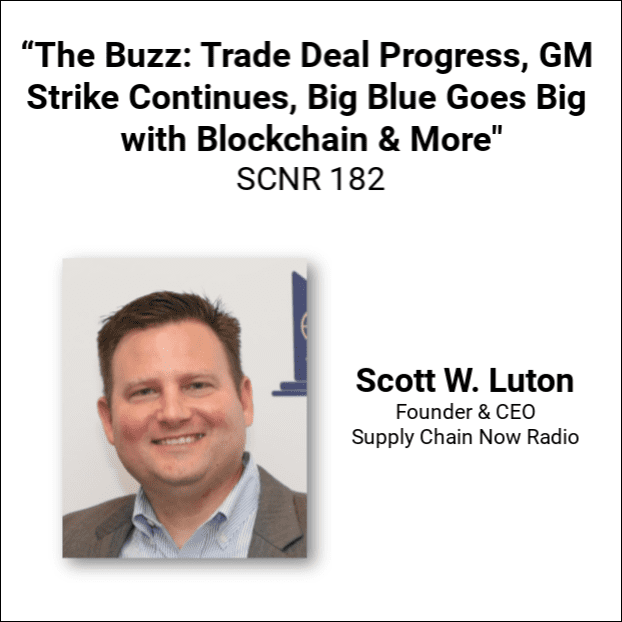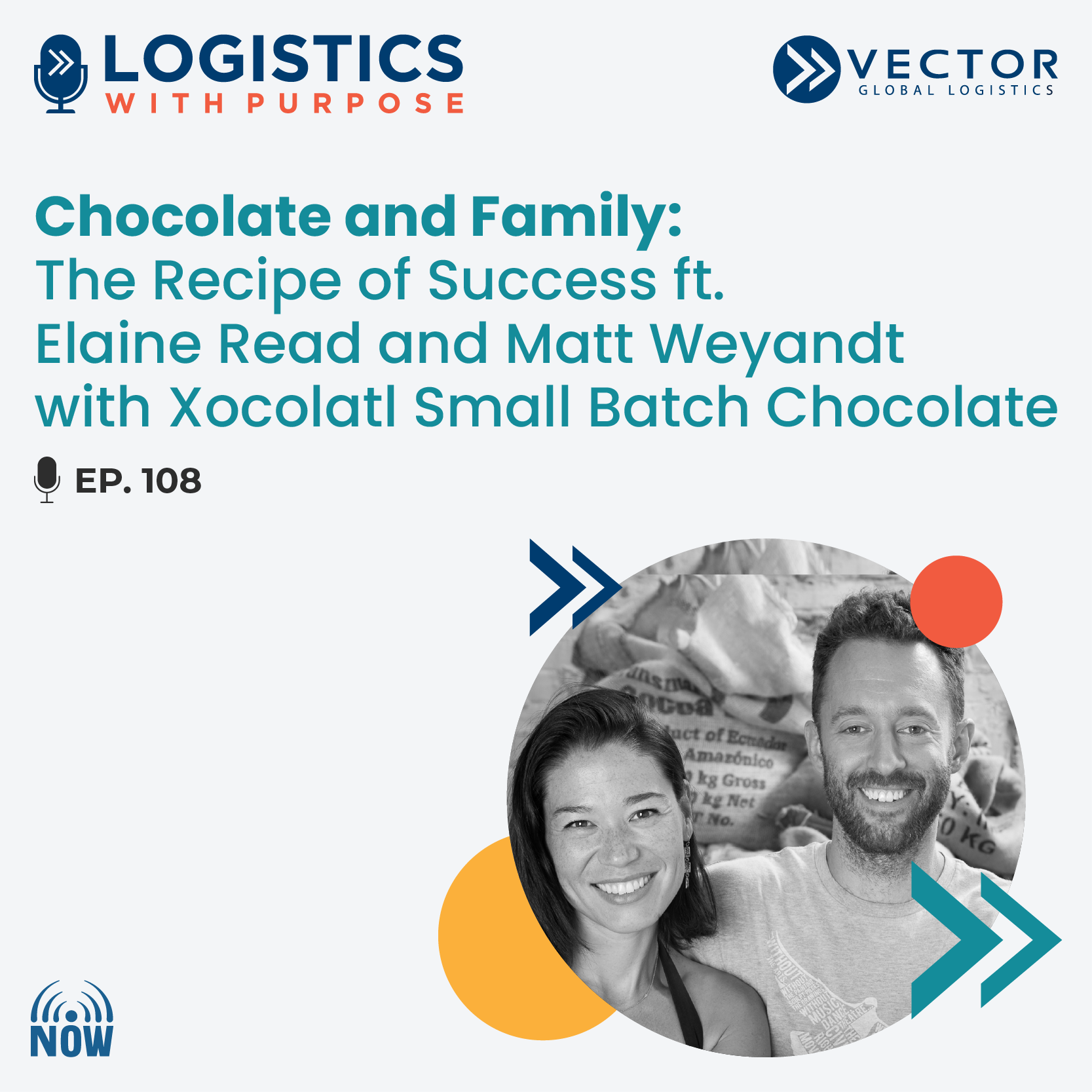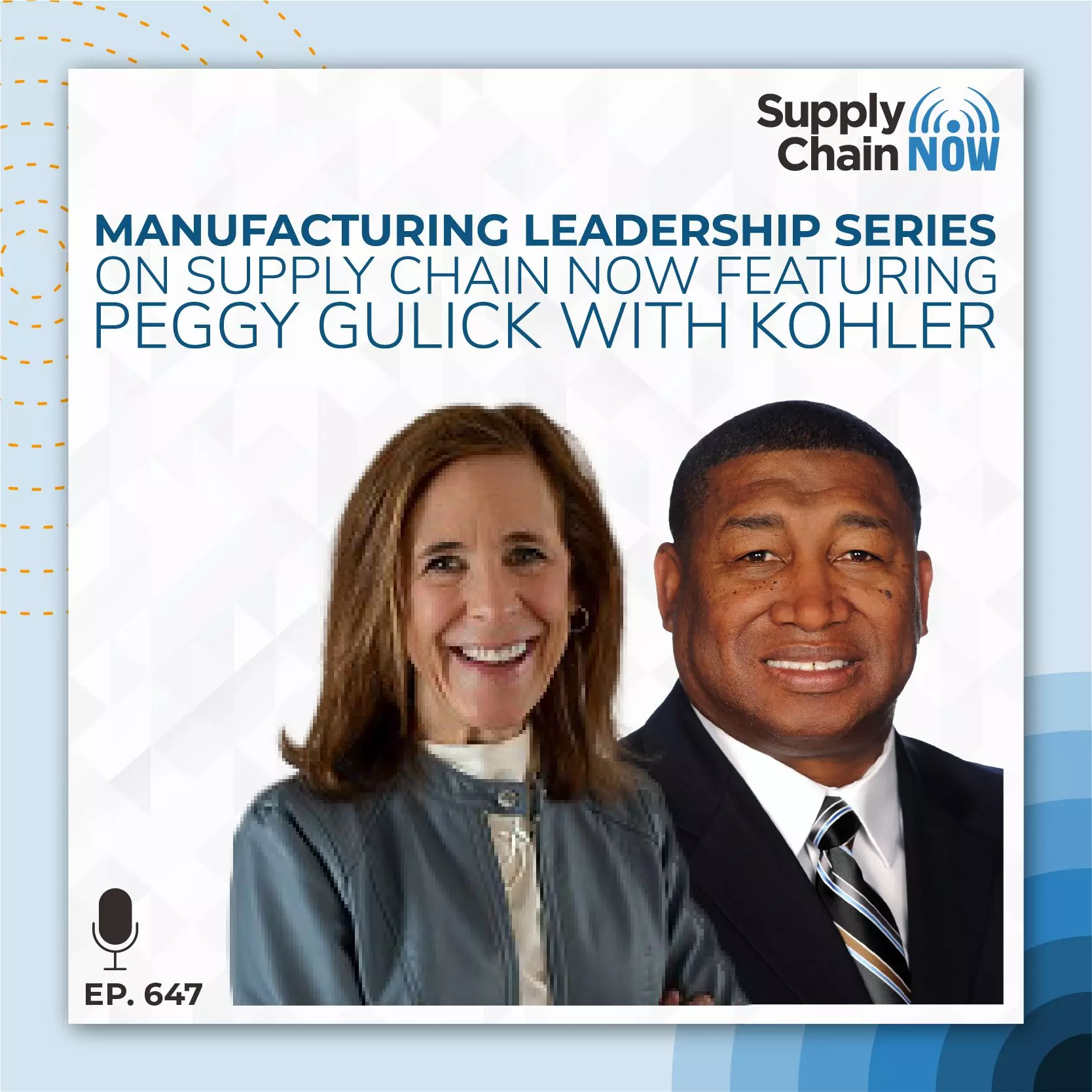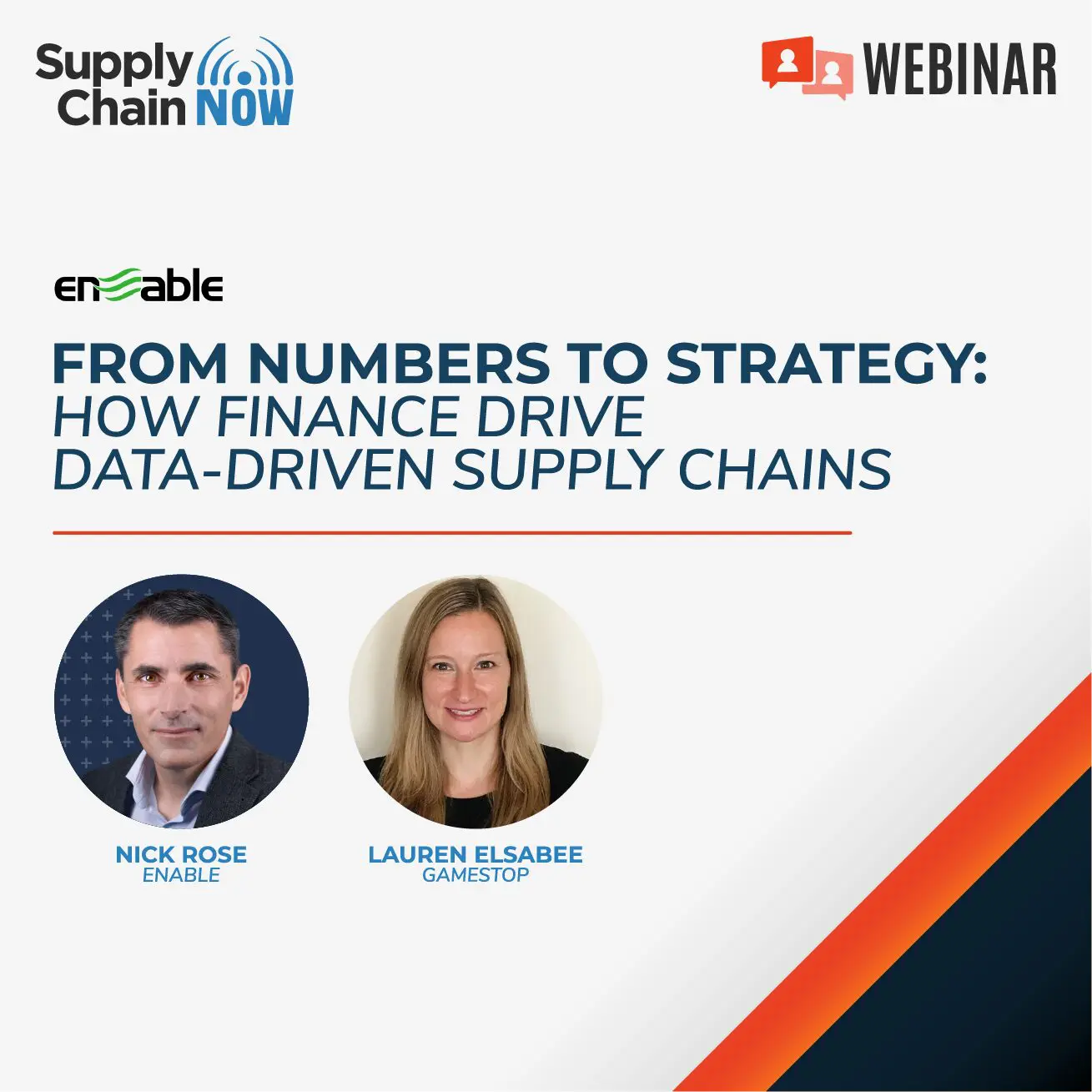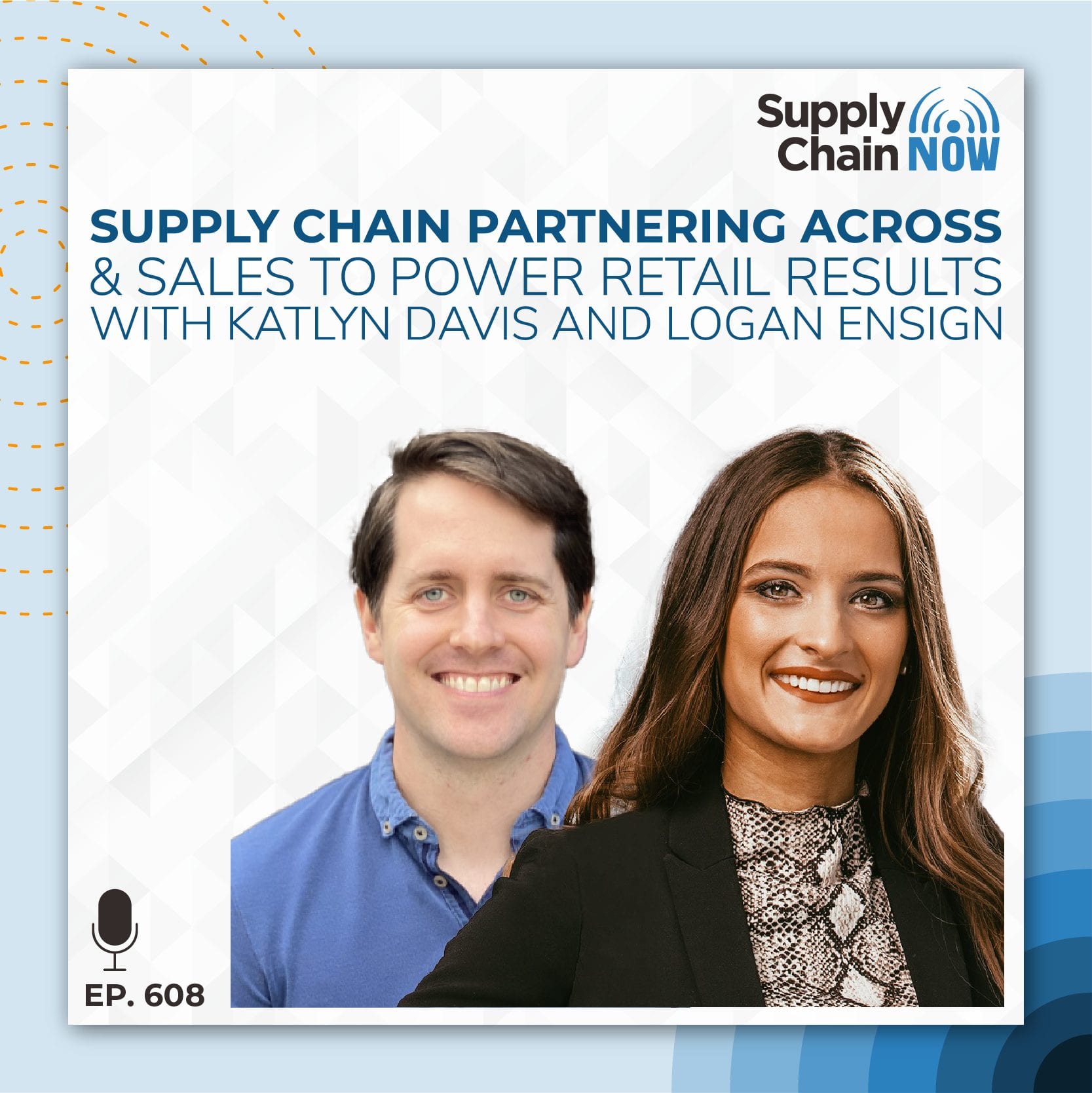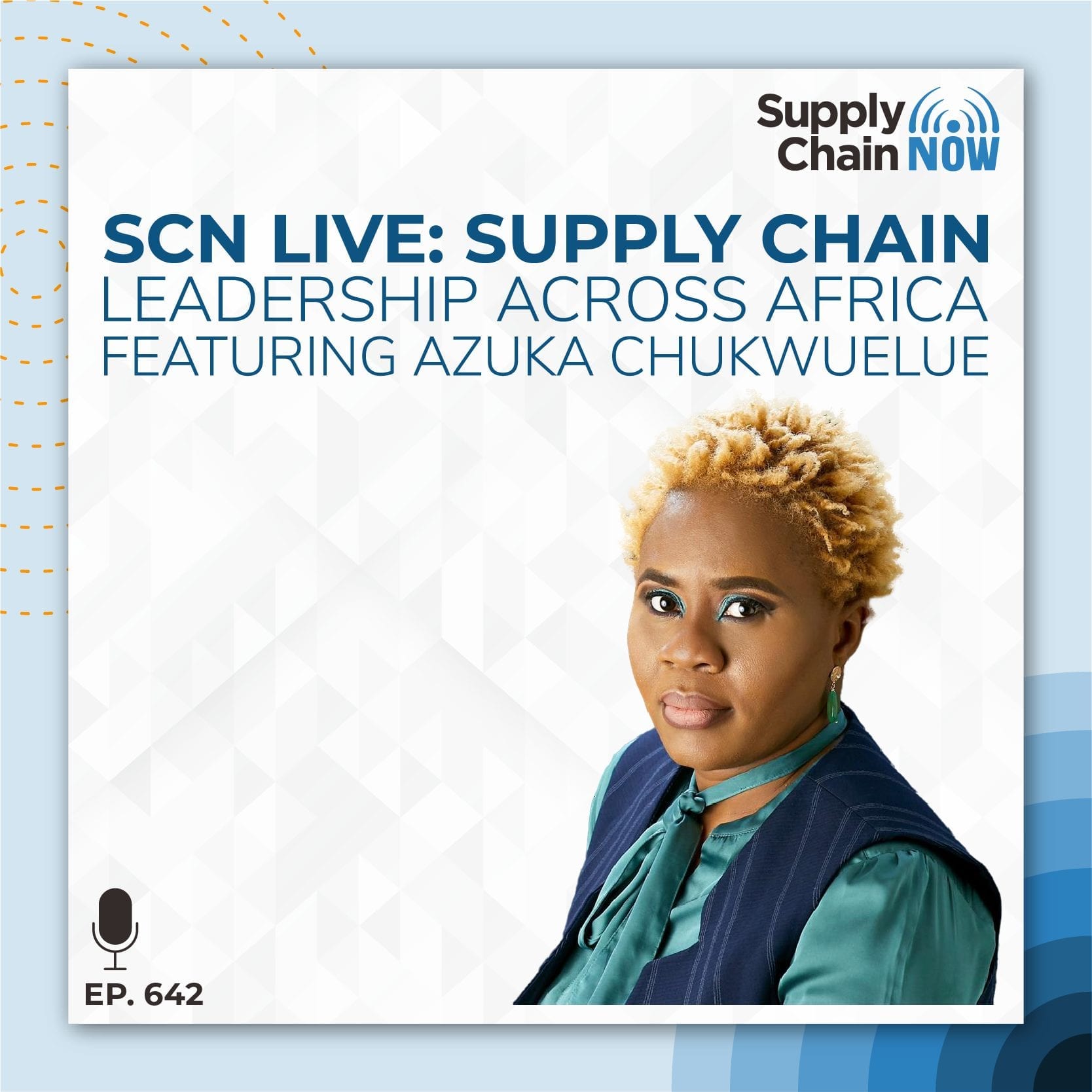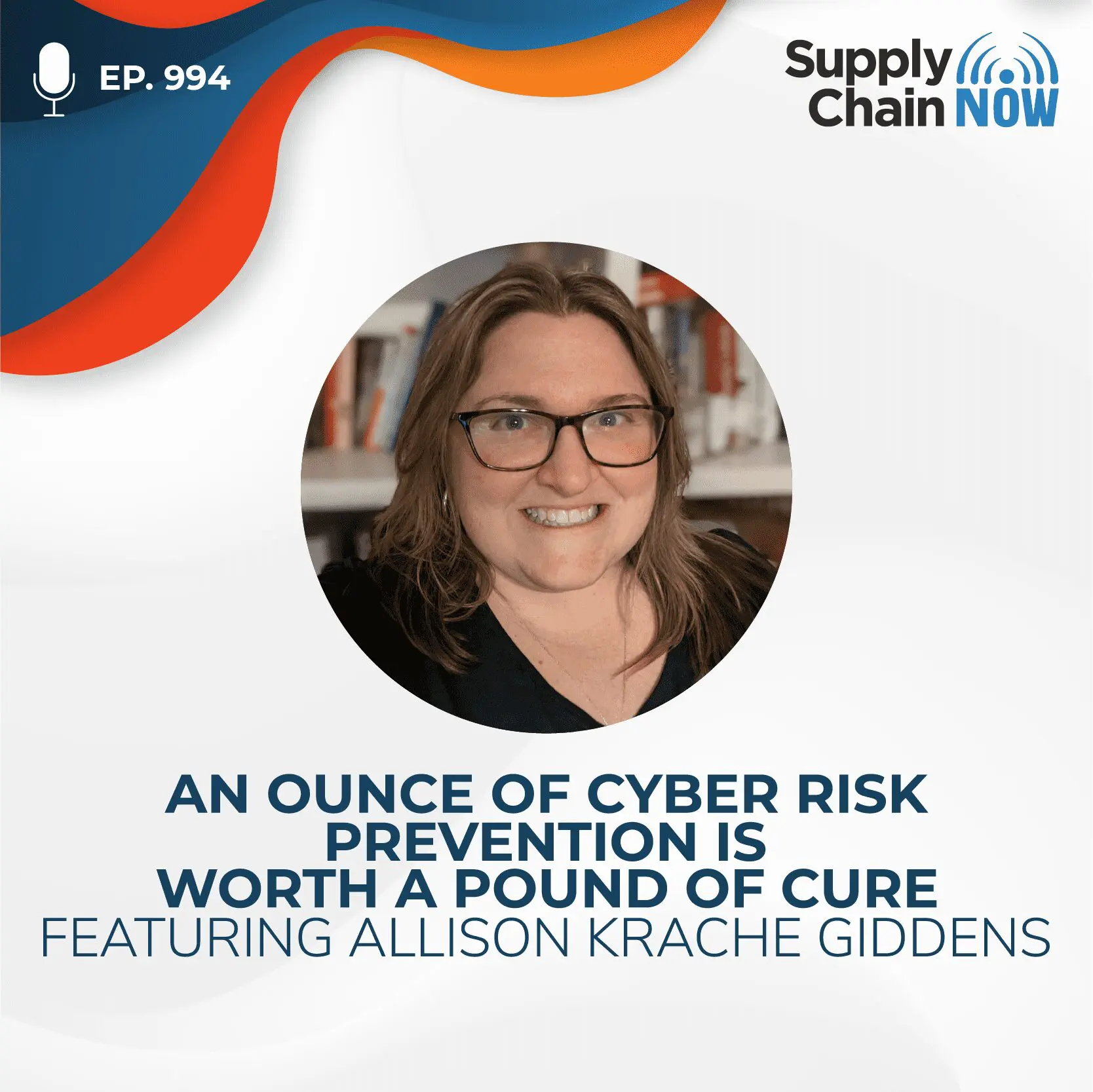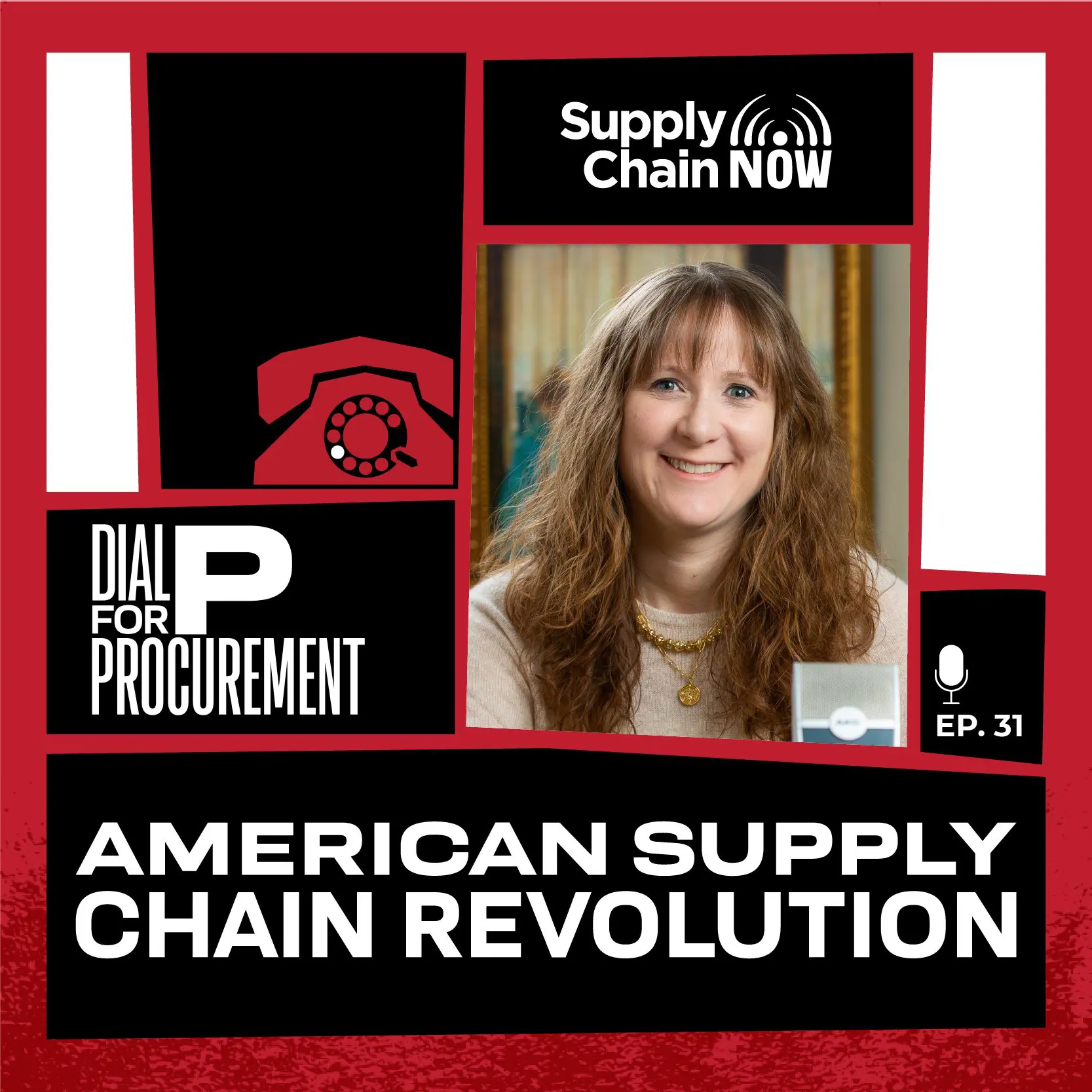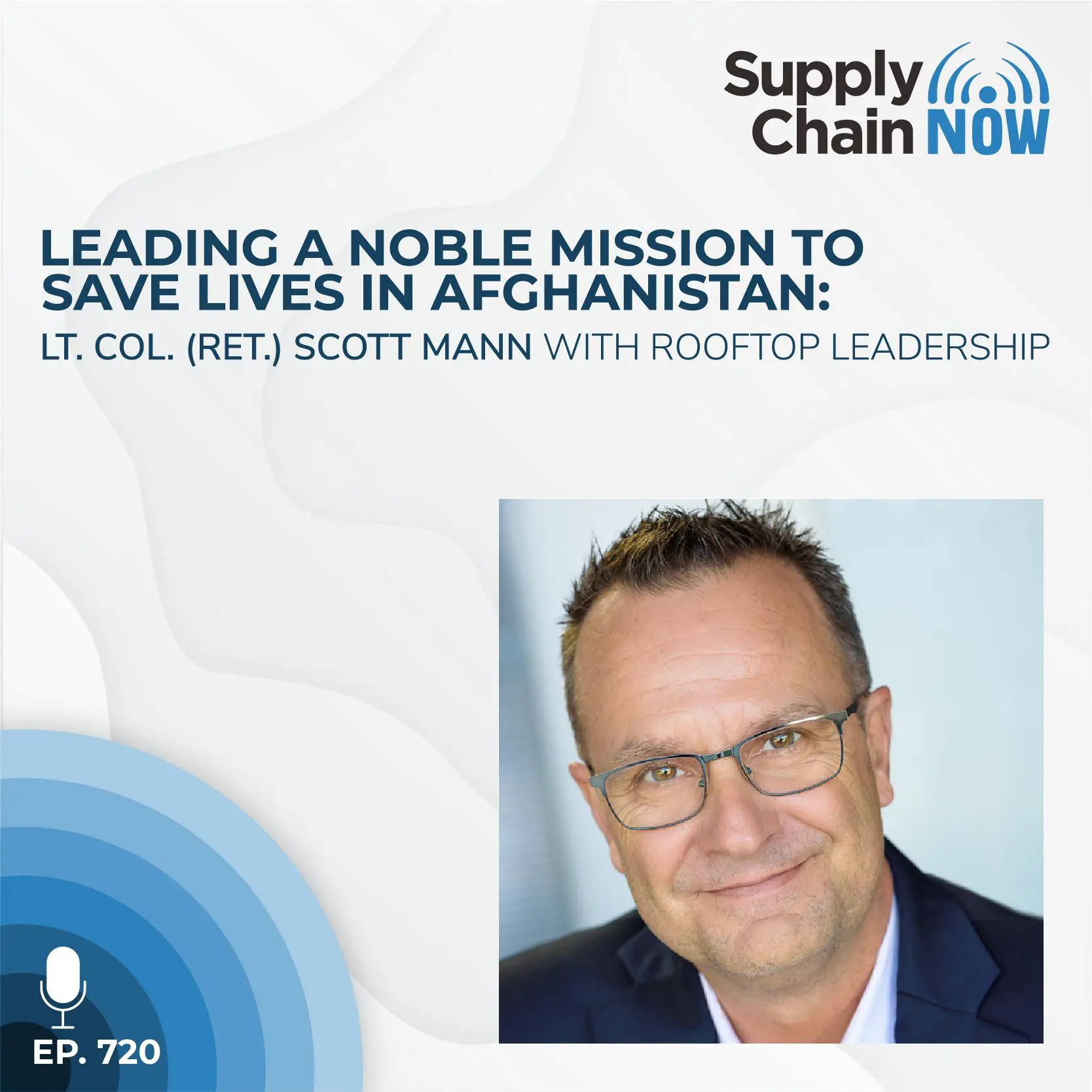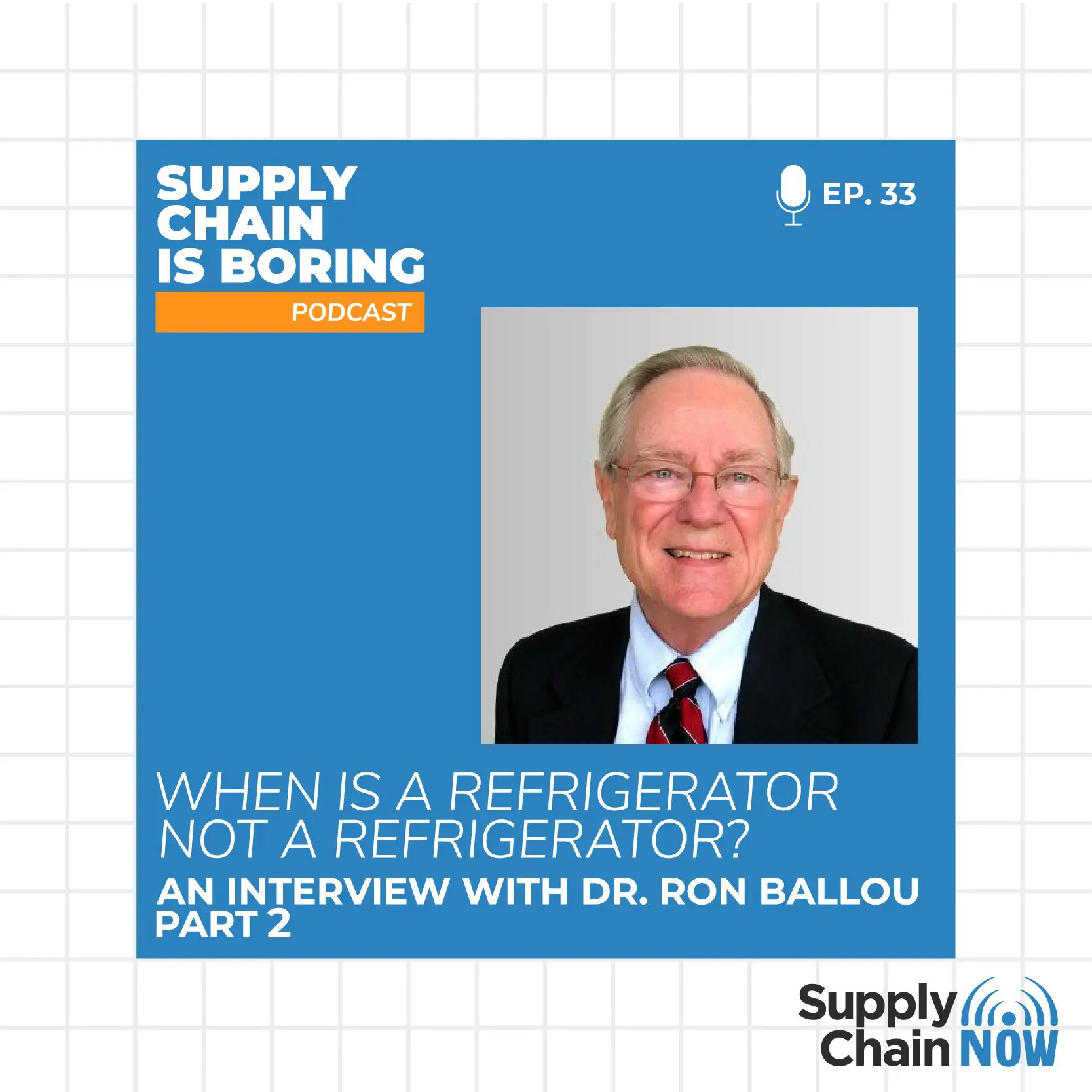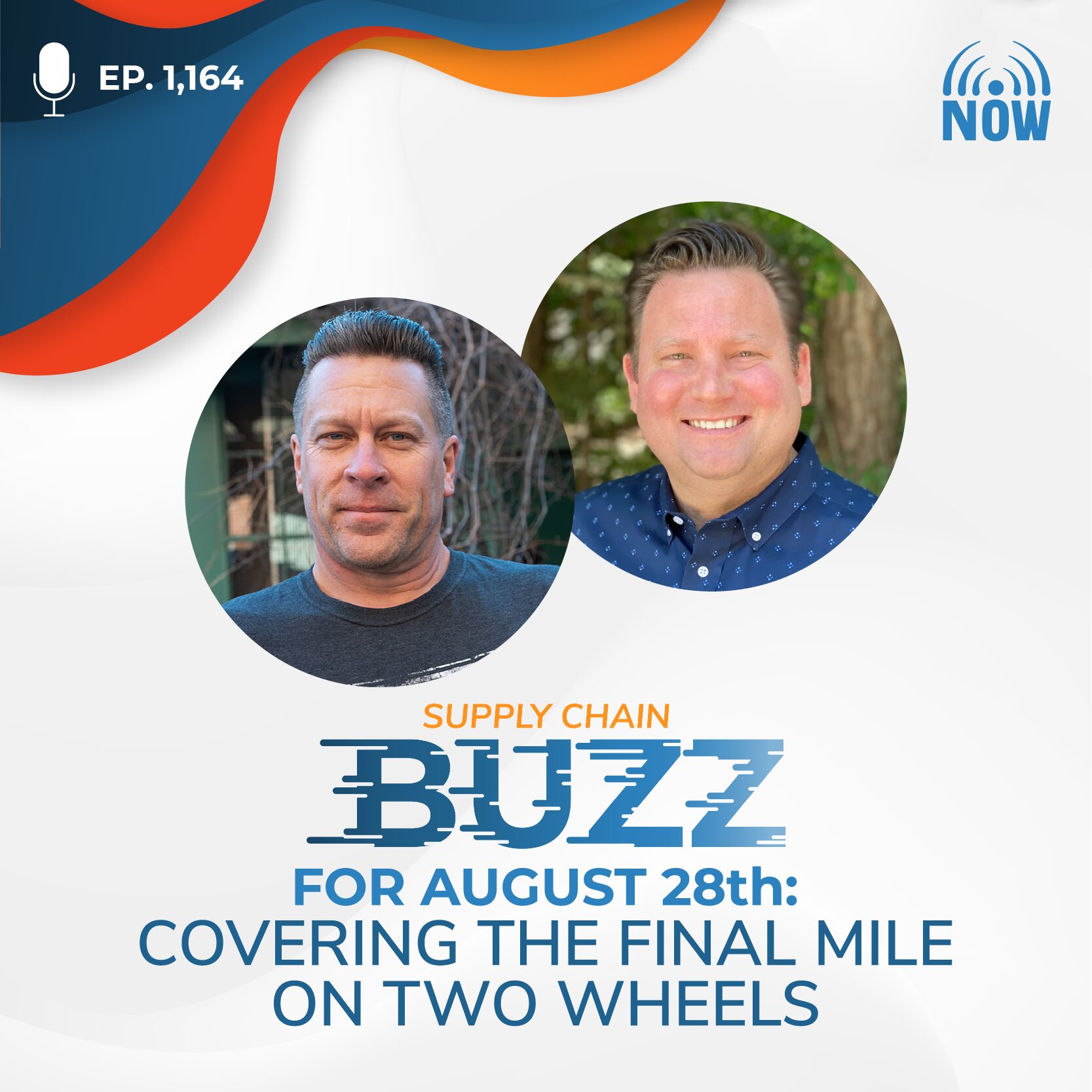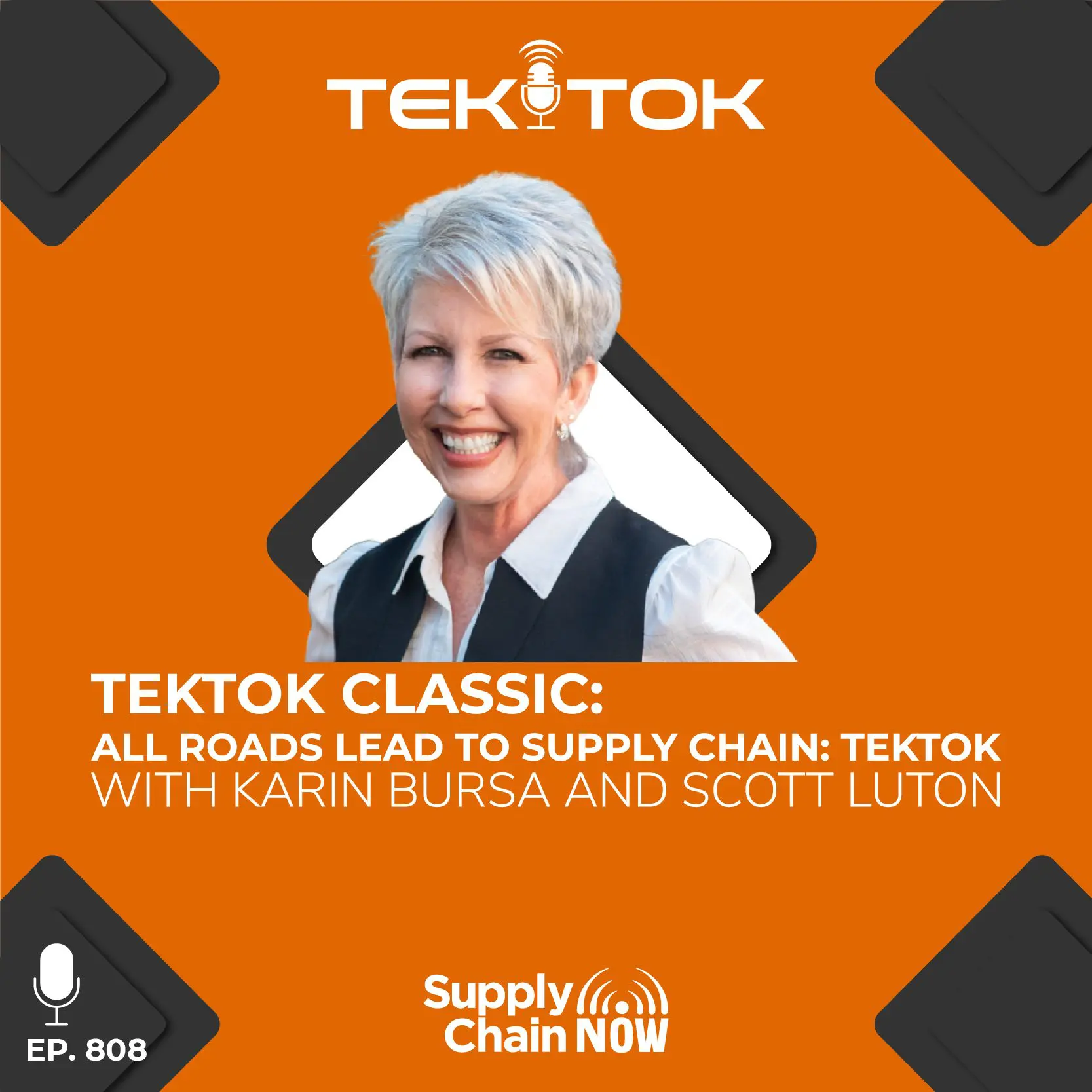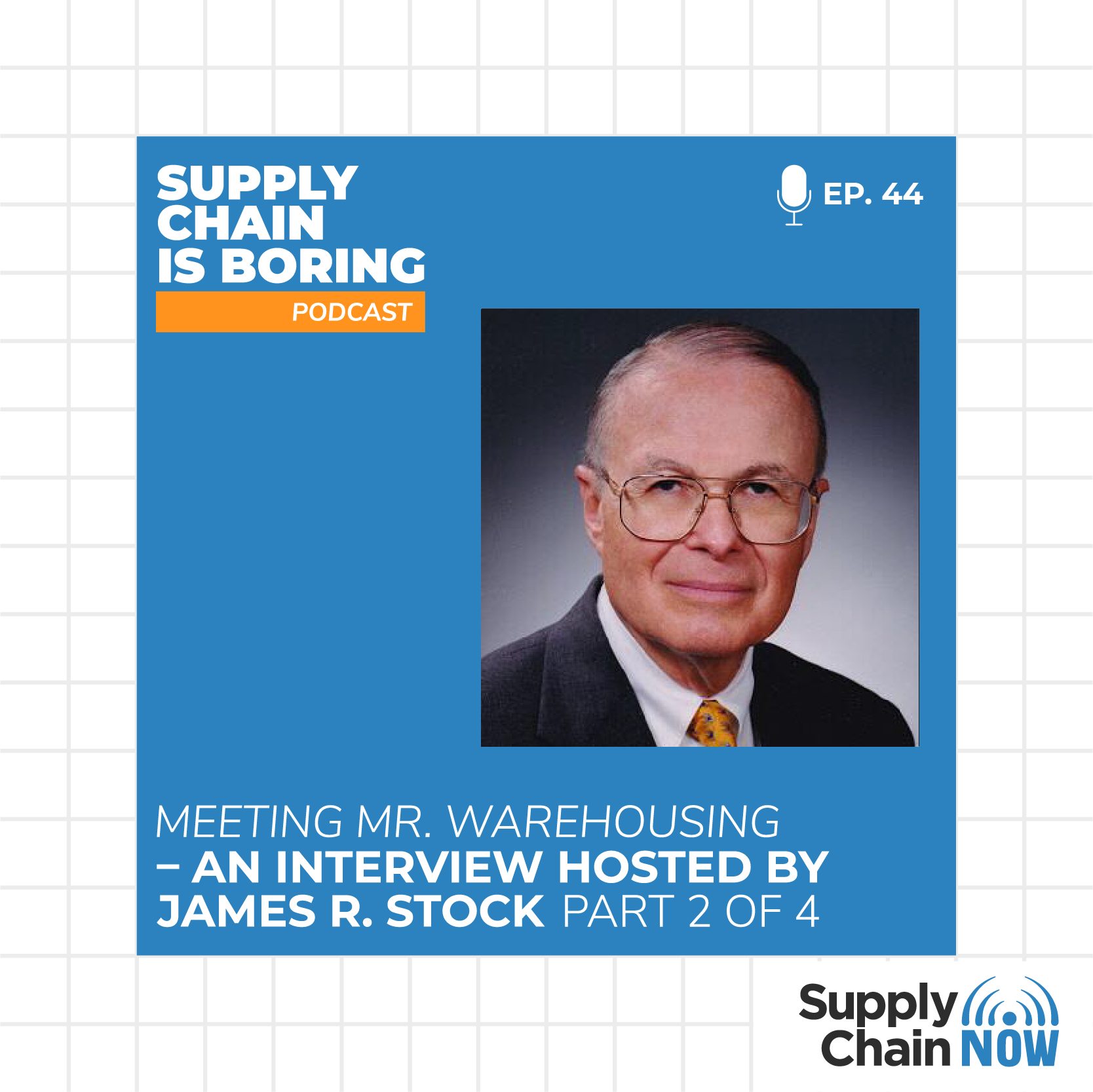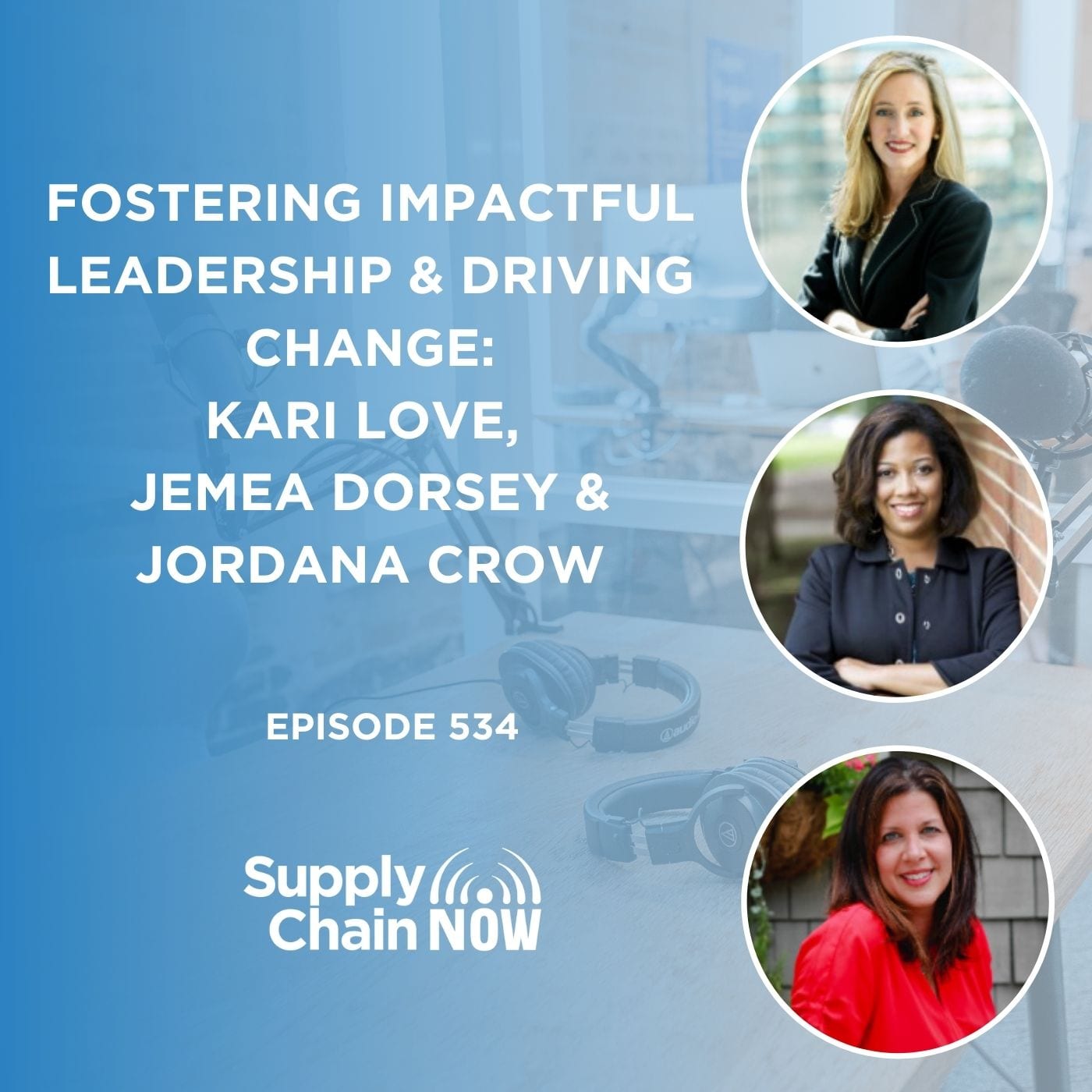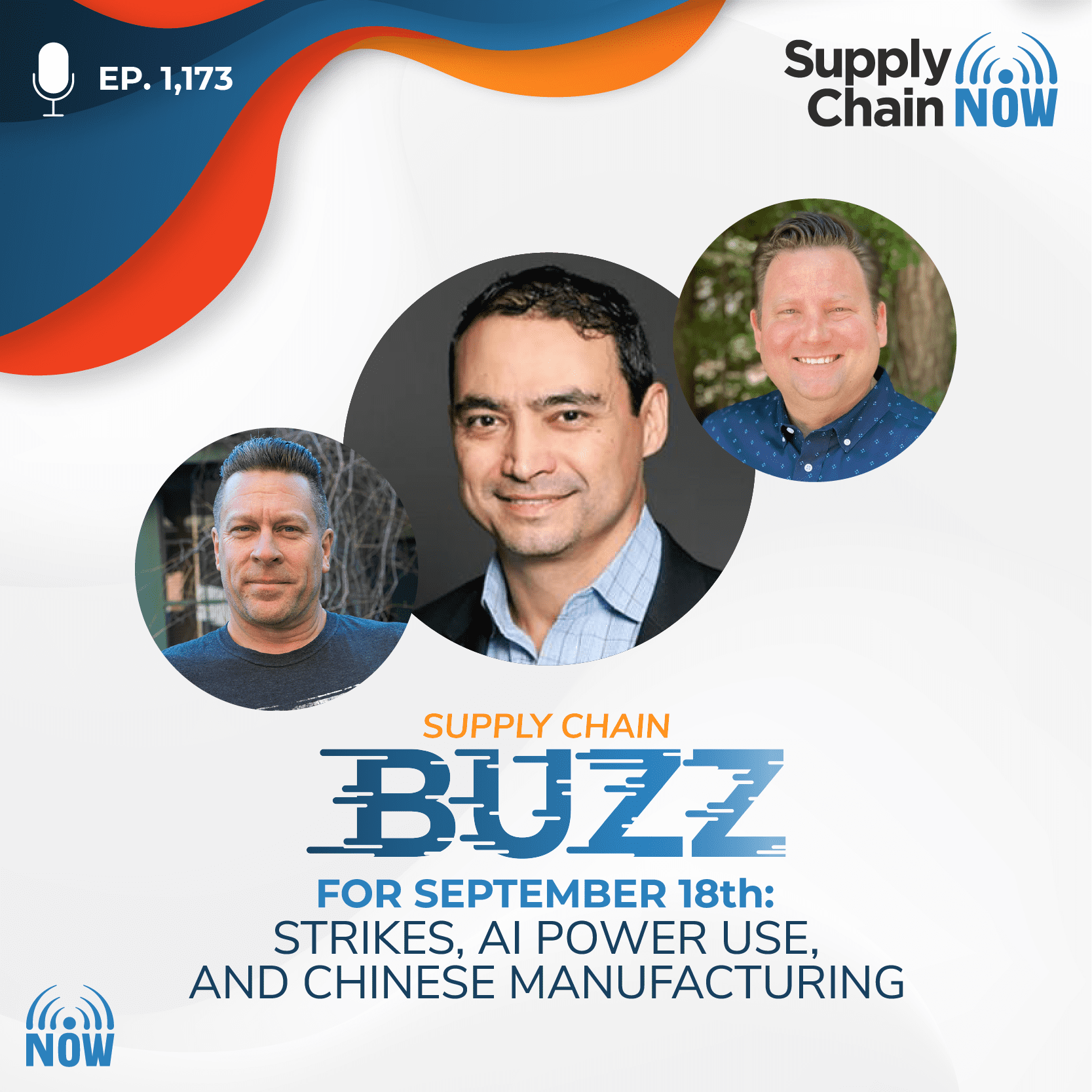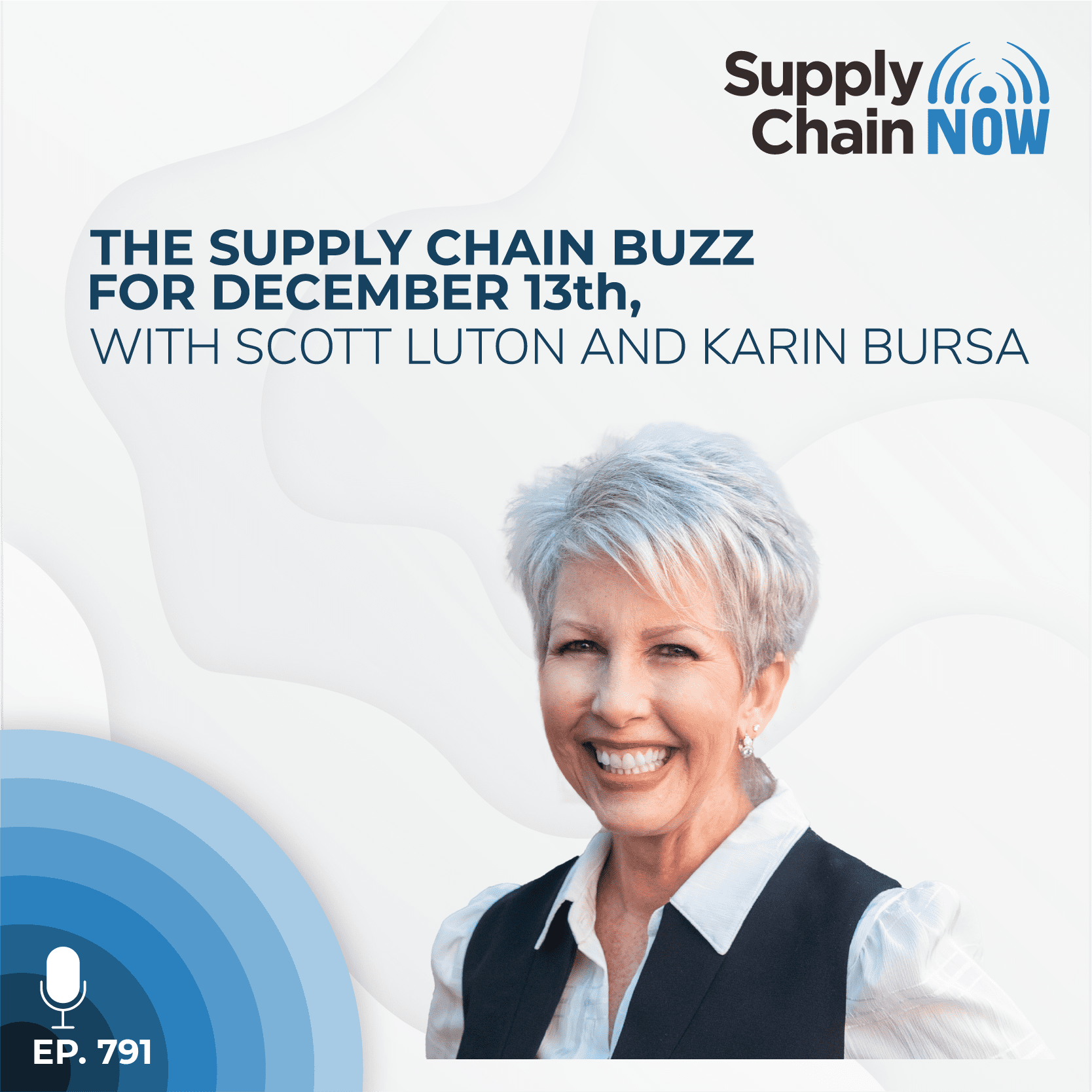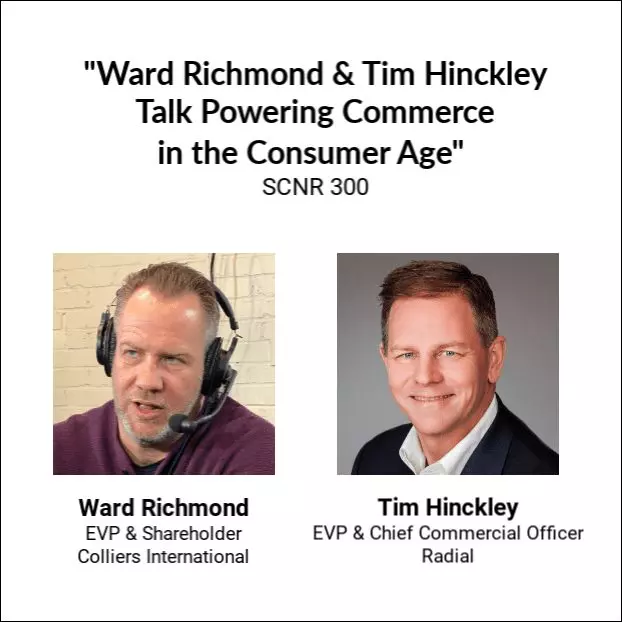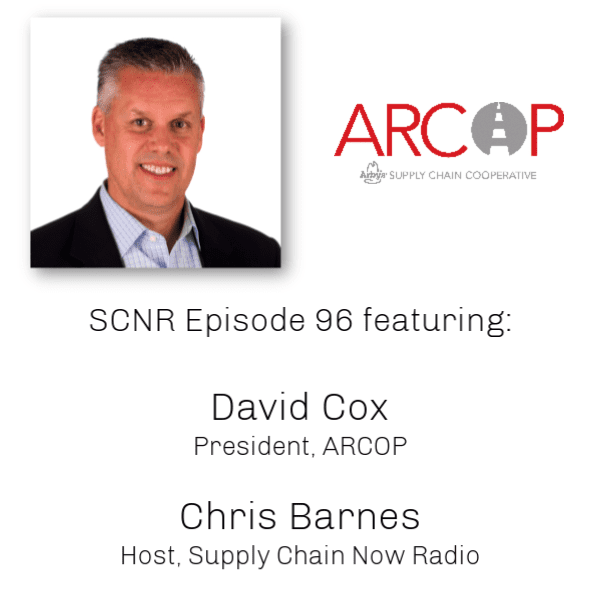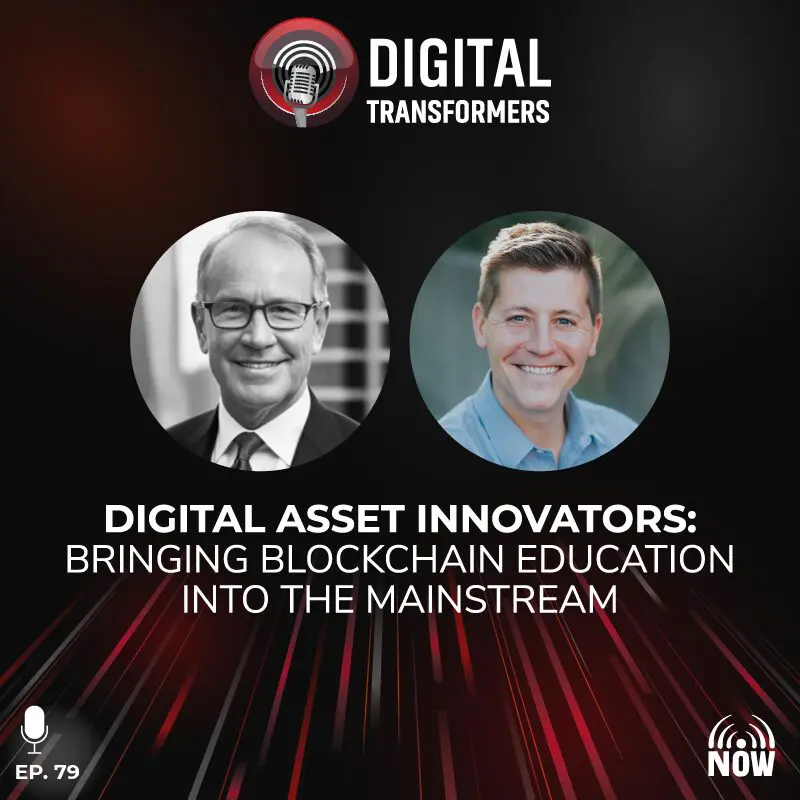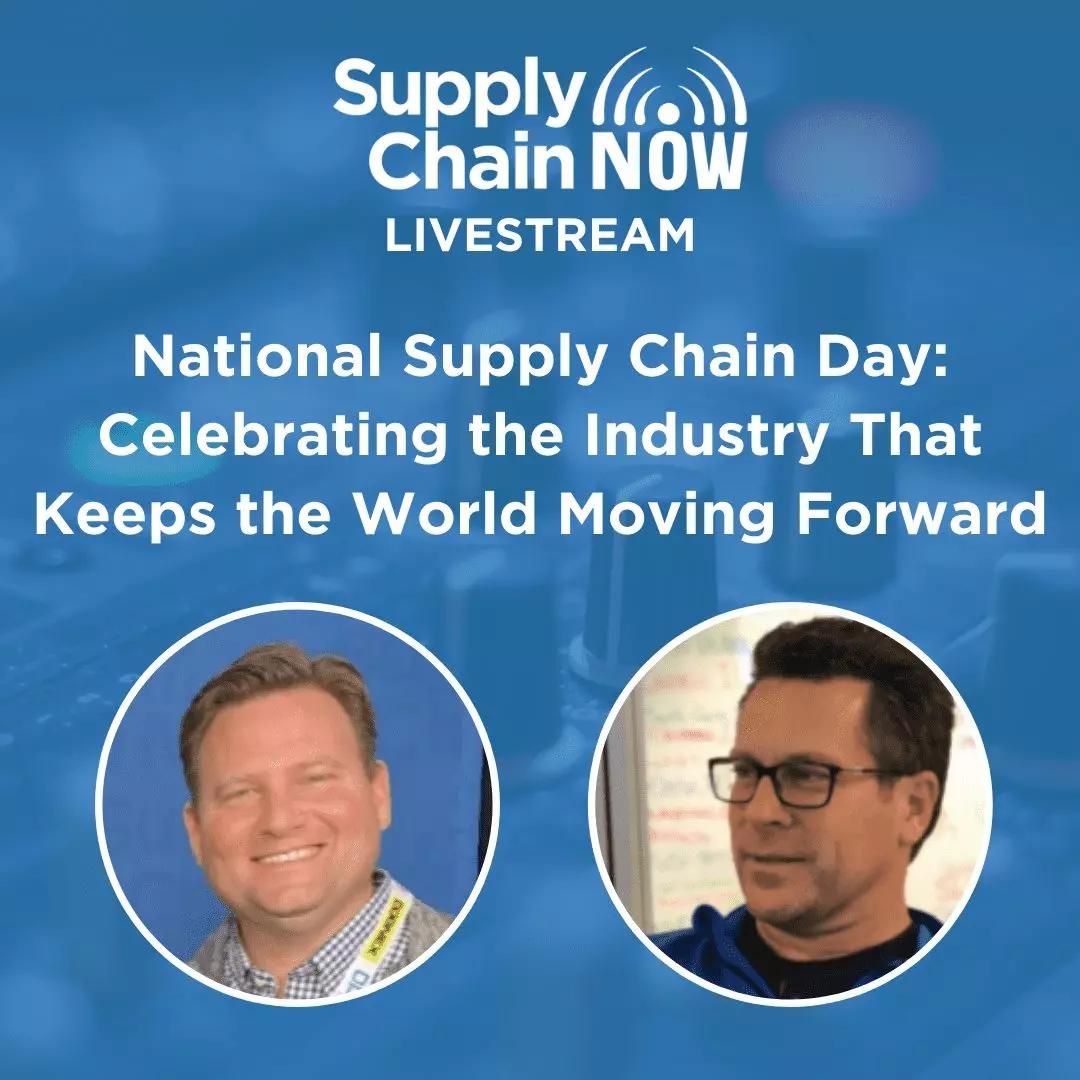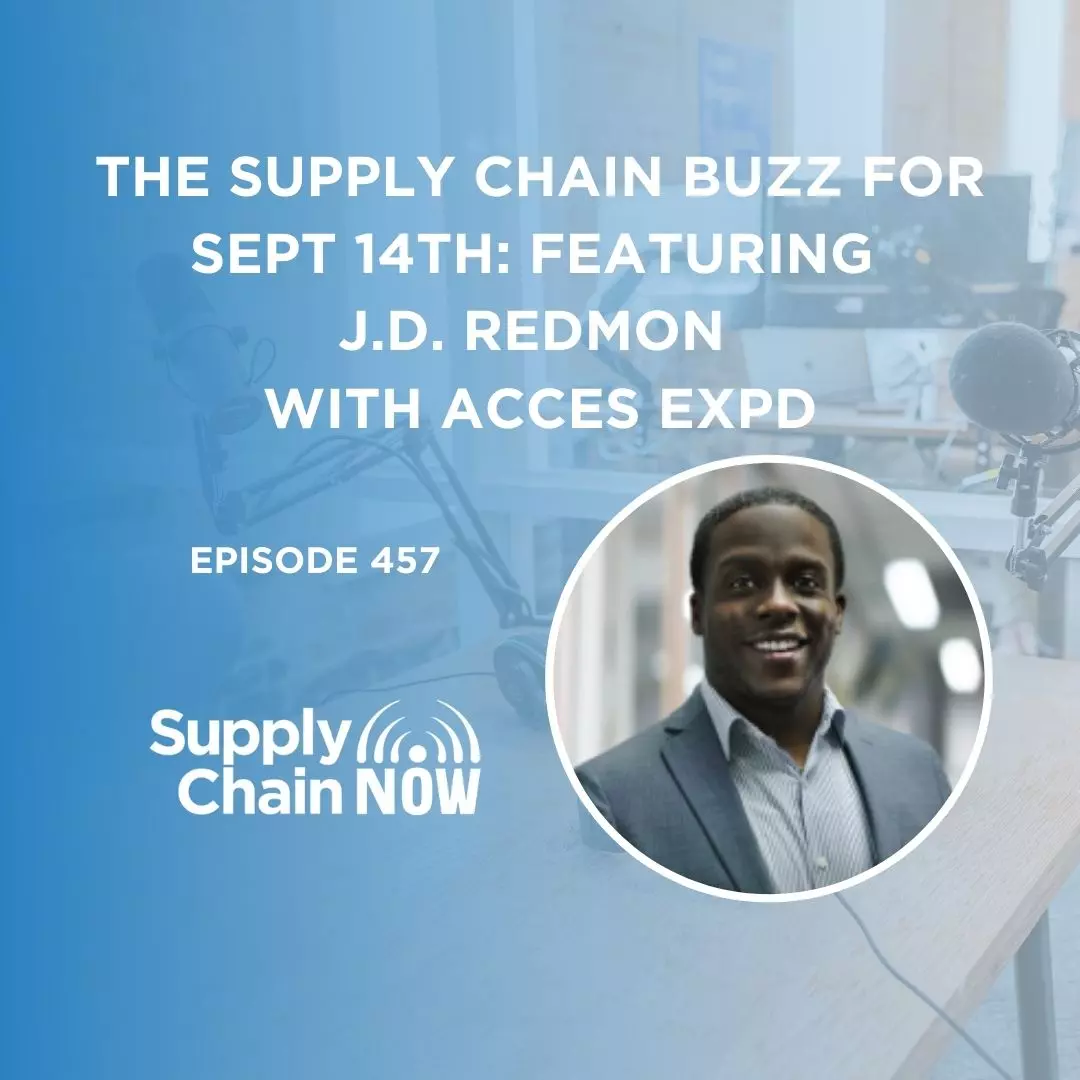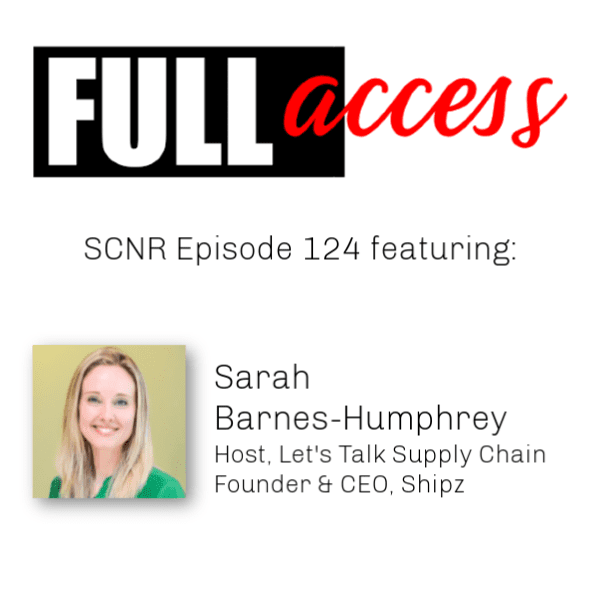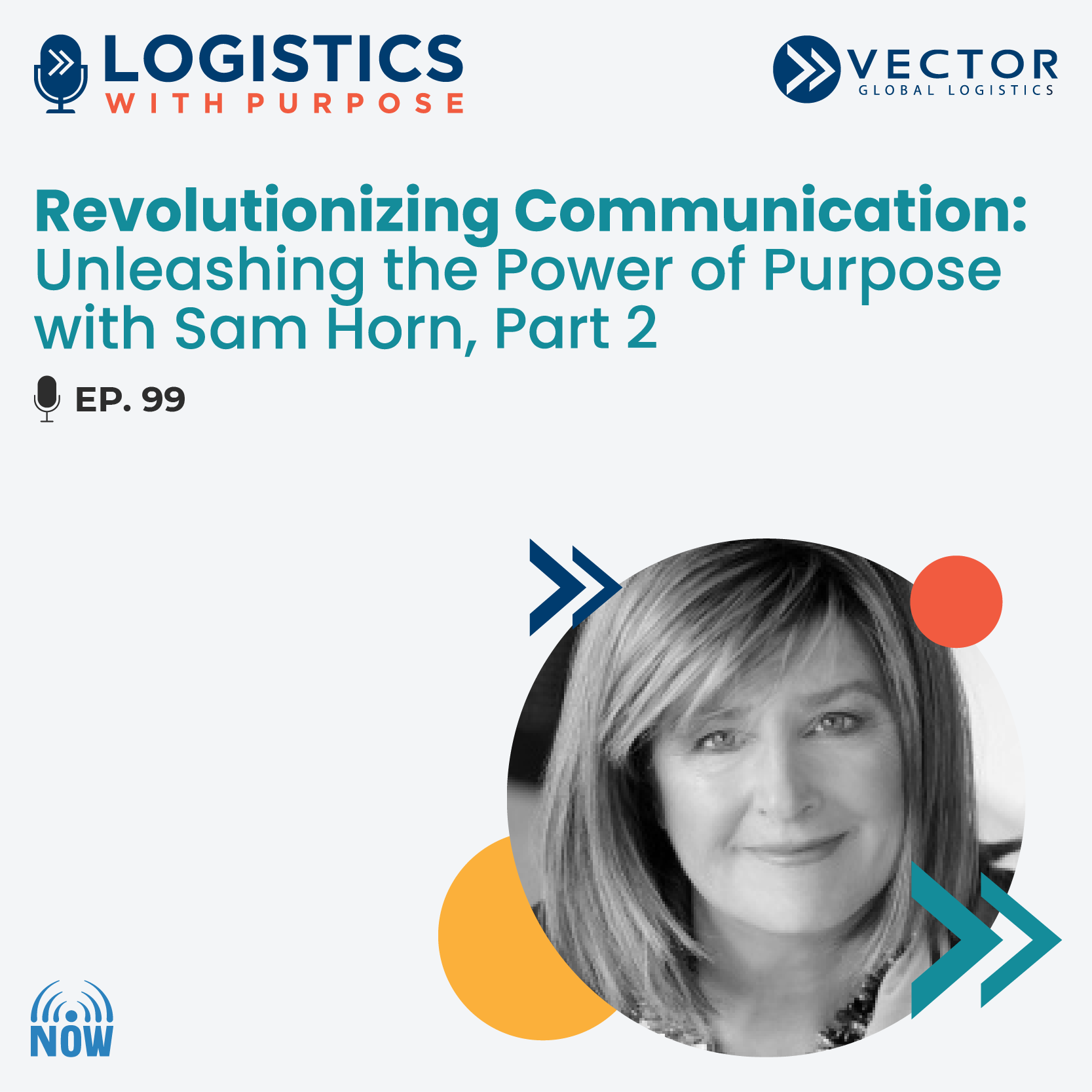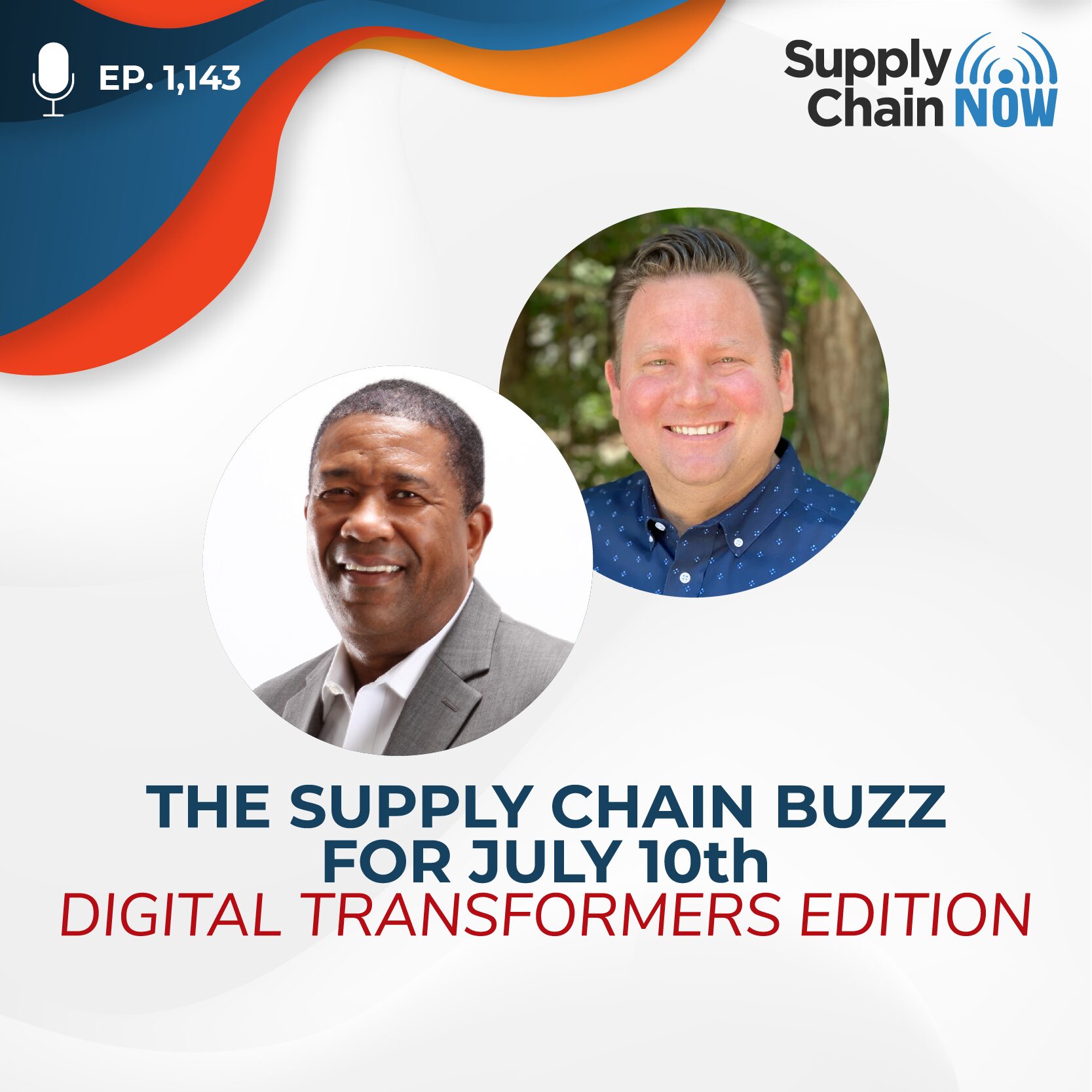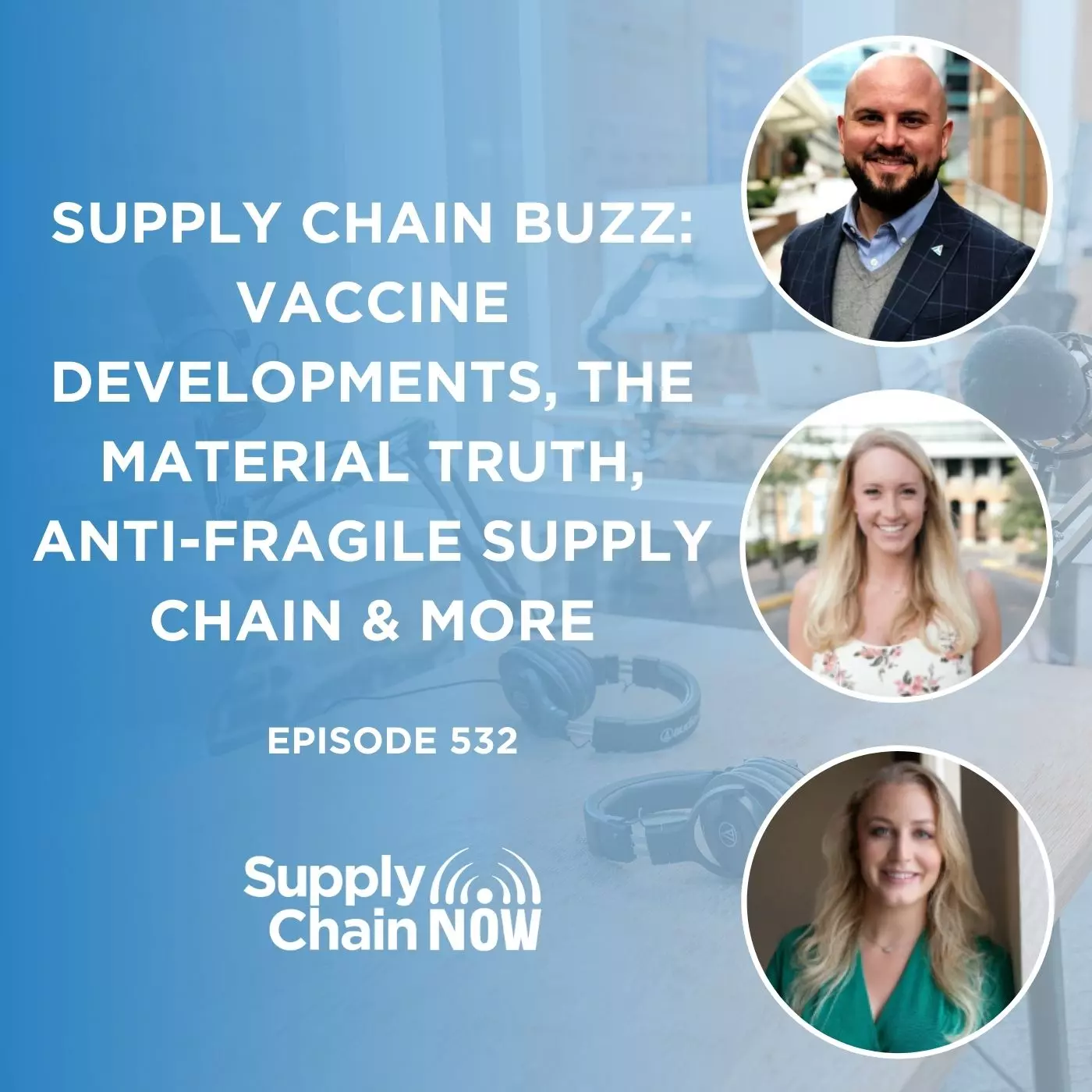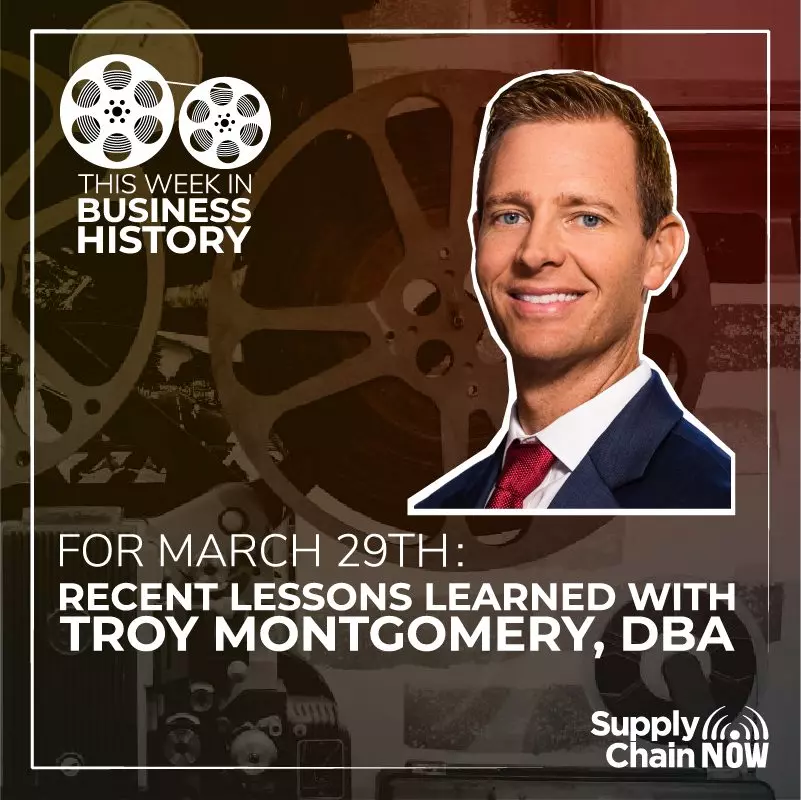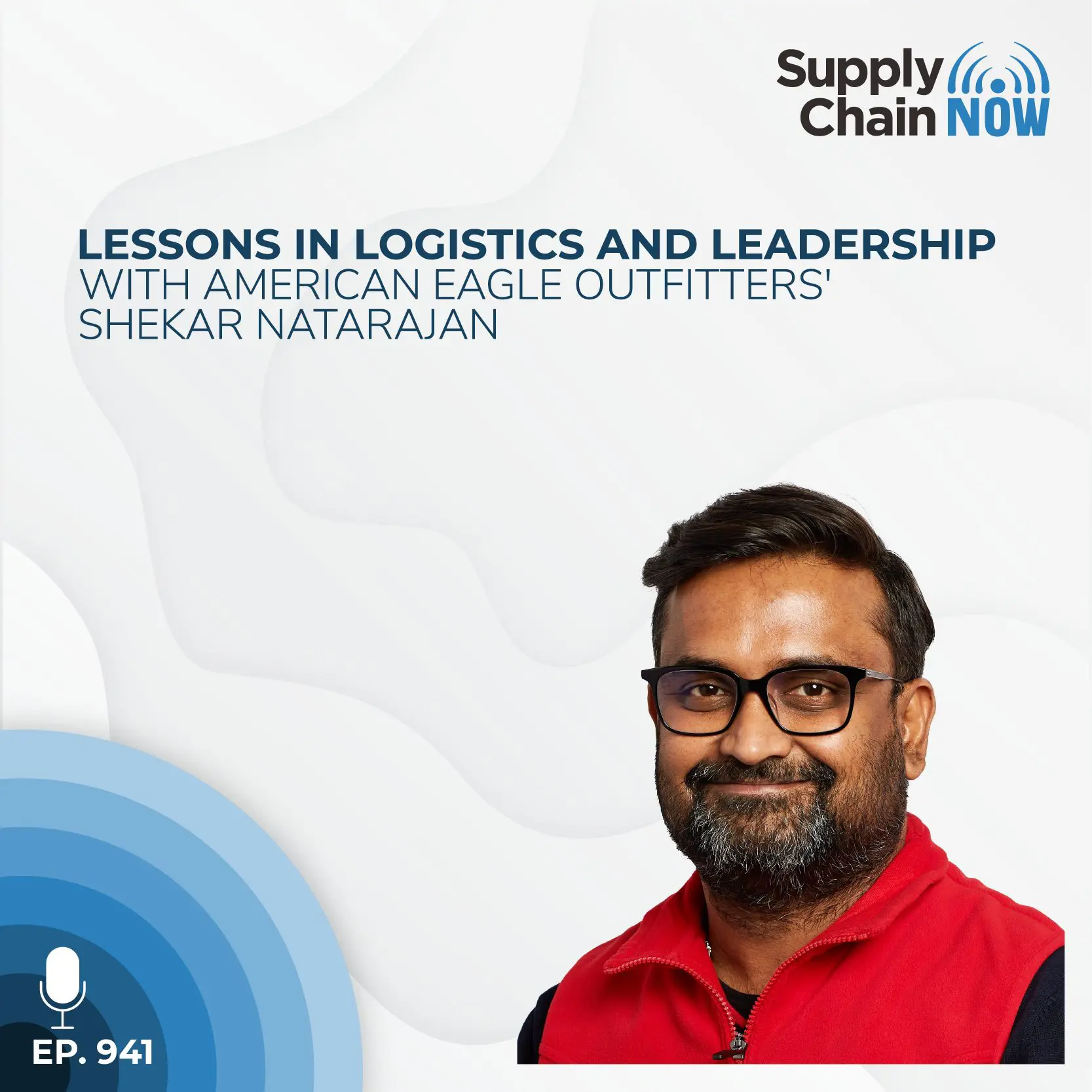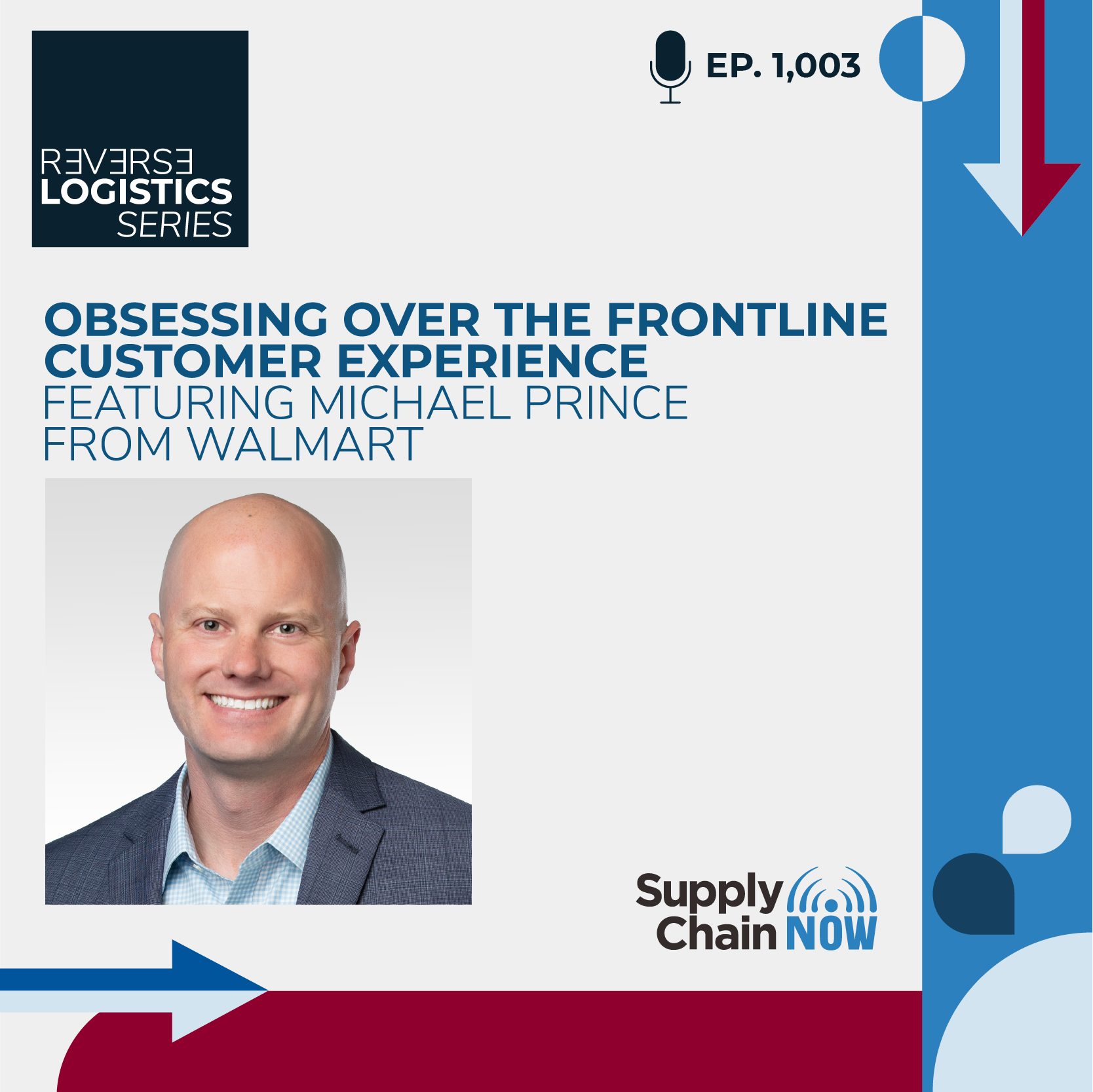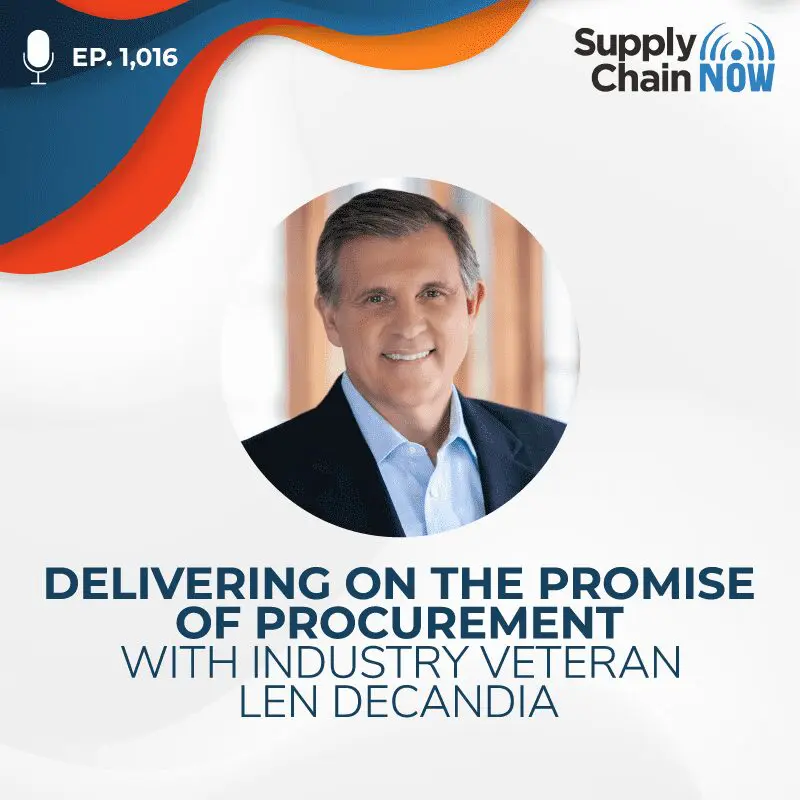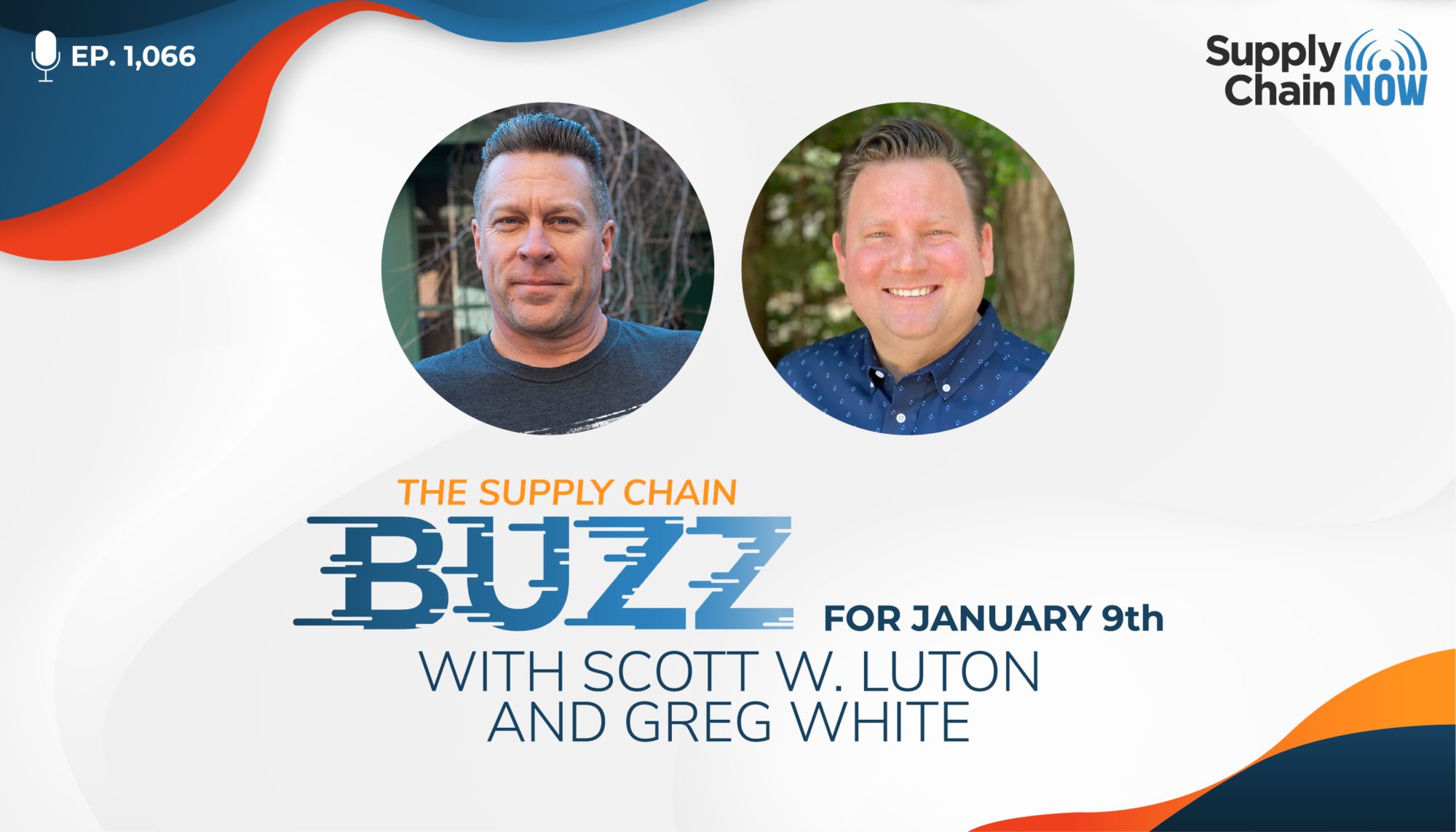
We shouldn't plan for disruption because if we do that, we are single threading ourselves and we're only creating resiliency against one thing that could happen when 999,999 things could have the same effect on our supply chain or hit us in the same spot. It's better to attack your weak spots and make sure the back gate is closed.
- Greg White
Episode Summary
The Supply Chain Buzz is Supply Chain Now’s regular Monday livestream, held at 12n ET each week. This show focuses on some of the leading stories from global supply chain and global business, always with special guests – the most important of which is the live audience!
This week’s edition of The Buzz featured co-hosts Scott Luton and Greg White kicking off 2023 with a new set of stories and timely business topics.
In this livestream, created in collaboration with a live Supply Chain Now audience, Greg and Scott discussed:
• Whether the tide is turning in favor of consumers in the car buying experience – after a pendulum swing in favor of car companies during the pandemic
• An update on Walmart’s drone delivery program, which successfully completed over 6,000 drone deliveries last year
• Their thoughts on SupplyChainDive’s list of the nine biggest supply chain trends in 2022
• The frequent and tragic cycle associated with warehouse space… which is back in ‘bust’ status
Episode Transcript
Intro/Outro (00:00:03):
Welcome to Supply Chain. Now the voice of global supply chain supply chain now focuses on the best in the business for our worldwide audience, the people, the technologies, the best practices, and today’s critical issues, the challenges and opportunities. Stay tuned to hear from those Making Global Business happen right here on supply chain now.
Scott Luton (00:00:31):
Hey, good morning, good afternoon, good evening, wherever you are, Scott Luton and Greg White here with you on Supply Chain. Now welcome to today’s Supply Chain Buzz. Greg, how you doing?
Greg White (00:00:41):
Happy New Year. I’m doing great. How are you doing?
Scott Luton (00:00:43):
Doing wonderful. Uh,
Greg White (00:00:45):
Nevermind. I just dipped into my chair like one second before the, the camera hit me. Did, did you, somebody’s car alarm is going off outside
Scott Luton (00:00:54):
<laugh> pulling and Enrique Avarez, are you?
Greg White (00:00:56):
Yeah, exactly. <laugh>.
Scott Luton (00:00:59):
Well, uh, I tell you folks, uh, it’s the first supply chain buzz of the new year of 2023. We’ve, we’ve had a couple weeks where we recharge the batteries, but everything’s back. Greg. New episodes, new live streams, new webinars. With that said is back. We’re gonna touch on that here in a moment. And, uh, most importantly, it’s great to be reconnected with all the folks that show up in the, the sky Boxees. Yes. Uh, every Monday at 12 noon, huh?
Greg White (00:01:25):
Yeah, exactly.
Scott Luton (00:01:28):
VIPs like Greg White. Well, hey, folks today, and we’re gonna say hello to a few folks in just a moment today. Again, supply chain buzz. Every Monday, 12 noon Eastern time, you can find Greg and I and friends, uh, talking about some of the leading stores across global business. Now, today we’re gonna be talking about, uh, new drone delivery successes, um, an update on the automotive industry, supply chain, real estate. We’re gonna talk about some trends from 2022 when it comes to global supply chain and a lot more. And folks get ready. Cause one of our favorite parts here, besides what Greg brings, uh, to the table, uh, every single week without fail, is all, all that y’all share in the comments, we’d love to hear your take on what’s going on. So, Greg should be a pretty, pretty big and full show, huh?
Greg White (00:02:13):
Well, it ought be. I mean, we’ve been away for a little while. You’d think, I’m sure people expect that we have been, uh, preparing diligently.
Scott Luton (00:02:23):
That’s all we did for the last two weeks, right?
Greg White (00:02:26):
What you have, you have
Scott Luton (00:02:28):
<laugh>. We were, we were preparing every single minute of the last couple weeks, including all time spent in Kansas City. Wouldn’t you, wouldn’t you say
Greg White (00:02:37):
Unquestionably? I think, you know, we wanted to get a feel for what’s going on around the world of supply chain and what better city than one of the trucking capitals of America
Scott Luton (00:02:48):
That is right. Okay. Well, uh, let’s say a little to a few folks before we share a couple programming notes and then get into the news of the day. Of course, Catherine, happy buzz day. Y’all. Happy buzz day to you, Catherine. Uh, big thanks to what you and Amanda and Chantel and Clay, the whole, the whole crew, uh, do each and every week. Brad Reeves, supply chain. Now, happy Monday. He says Monday, <laugh> Monday. So Brad’s just ahead of this. He’s
Greg White (00:03:16):
Way ahead of us,
Scott Luton (00:03:17):
Right? Uh, but Brad, welcome, welcome to you, uh, perpetual Maua. Hello to you. Uh, welcome in via LinkedIn. Happy to, uh, happy for you to be here with us. Let us know where you’re tuned in from. Any guesses, Greg, any guesses where Perpetual Maua may be turned in, tuned in from
Greg White (00:03:34):
Nigeria, or, um, let me think, Jamaica.
Scott Luton (00:03:40):
Okay. So perpetual, let Youa let us know where you’re tuned in from. Great to have you here. Kaon is back
Greg White (00:03:48):
Not in Jamaica.
Scott Luton (00:03:50):
<laugh>. That is right.
Greg White (00:03:51):
My buddy. Wish he was
Scott Luton (00:03:53):
<laugh>. Don’t we all, man? Uh, but Kaon, happy New Year, and happy first Buzz Day to you. And then, hey, uh, who holds down the Fort Force in Aiken, south Kaki, the one only Lee Luton, uh, great to have you with us. Uh, mom, aka mom, great to have you here as always. Hi,
Greg White (00:04:11):
Mom.
Scott Luton (00:04:12):
<laugh>. Okay. Send money. That’s right. Hey, money. Yeah. Wasn’t that a commercial? Hey, mom. Send money or something like that. That was
Greg White (00:04:18):
Every football game ever when we were in college, right? Every kid would like, Hey, mom,
Scott Luton (00:04:23):
Somebody. Ah, amen. Uh, okay. So I wanna, I wanna, uh, so welcome to everybody. We’re gonna try to, we work everyone’s comments in throughout, uh, the session. And by the way, Kenya, perpetual maua, Kenya close. Okay.
Greg White (00:04:38):
Right. Well, other side of the continent,
Scott Luton (00:04:41):
But other side That’s
Greg White (00:04:41):
Right on the continent,
Scott Luton (00:04:42):
Yes. You know, I’ve already proven my lack of geographic ability globally, uh, here at supply chain now. Hey,
Greg White (00:04:49):
Well, I’ll tell you why. I know that.
Scott Luton (00:04:50):
Okay. Please,
Greg White (00:04:52):
Uh, course, first of all, I love geography and all of that sort of thing, but also, I watched long way down you and McGregor’s Adventure Cycle ride. Yes. From Atlanta, or Atlanta from London, not near Atlanta, from London, uh, to the, the tip of, of Africa, uh, in the, in the Cape. So, and of course, he goes through Kenya, which wow, what a beautiful country
Scott Luton (00:05:17):
<laugh> It is. It really is. Uh, one of, uh, I’m not gonna get her name right, one of the, um, Harel Jackson Atlanta International Airport Airport guests we’ve had with us. Her family’s from Kenya. And man, the, the, the visual she painted through a couple different conversations she had, right? I’m gonna think of her at, uh, you know, I’m having a Monday morning moment, so,
Greg White (00:05:40):
Yes.
Scott Luton (00:05:41):
So we’ll circle back. Maybe Amanda and, and Catherine can help me out there, but hey, yeah. This
Greg White (00:05:44):
Is where, this is where the production crew really pays off.
Scott Luton (00:05:48):
That is right, Amanda, that, Hey, the doc, uh, doc Hollywood of Global Supply Chain. Holiday, holiday <laugh> Doc Hollywood. That was a Michael David Fox movie. <laugh> Doc Holiday is Fred Tolbert. Now, Fred says, and Fred, it’s been been too long. Hope to see you soon. Fred says, it’s a great day to be in supply chain. My day today, supply chain now, and then a Bulldog Frog gig in tonight, Greg.
Greg White (00:06:13):
Oh man, I hope he’s right.
Scott Luton (00:06:17):
<laugh>.
Greg White (00:06:17):
So for those of you who don’t know, the College Football National Championship, the Natty, as we call it here in the South Uhhuh, um, the Natty is tonight, and Georgia, the University of Georgia, is trying to repeat against Texas Christian University and from Fort Worth in beautiful LA and SoFi Stadium. So
Scott Luton (00:06:39):
Not lower Alabama, the real Los Angeles. Yes,
Greg White (00:06:44):
That’s right, Los. That’s right.
Scott Luton (00:06:47):
So, good luck to all of our Bulldog friends, uh, and fans, and also all of our T C U friends as well. They’ve got a great supply chain program. Both schools
Greg White (00:06:56):
Not as much
Scott Luton (00:06:58):
<laugh>, uh, <laugh>. So, alright, we gotta get down business. Greg, we, we got so much to catch up on. It’s so great to be back. Yeah. Derail. That’s right. So, great to be back with all of our, all the folks in the comments. Thanks so much for being a part of our journey. All right, so really quick, folks. Um, you know, we, over the weekend, we, we touched on, uh, a, uh, a four-part leadership tuneup. Uh, and really it could have been a five parter, and maybe it started to be a five parter, but that fifth thing would’ve been, Hey, you gotta get involved. You gotta give forward, you gotta do good. You gotta do everything you, you gotta take on, uh, the greater good in many, many, many ways far beyond the core business, right? And one of the ways you can do that with our extended fam here at Supply chain now is with our leveraging logistics for Ukraine Initiative.
Scott Luton (00:07:46):
Now, this is led by Maureen and Enrique and Christie at the Powerful Vector Global Logistics, uh, organization, which does a lot of great good, um, do good work. But as, as they always are, Greg, they’re open arms, always welcoming for folks just to get involved. Whether you wanna come to the planning meeting like tomorrow at January 10th at 11:00 AM just to come in and kind of get a feel of what’s going on, or if you’re in position to donate towards, uh, helping folks in Ukraine and Poland and that region. But everyone is welcome, Greg, your thoughts around this ongoing initiative.
Greg White (00:08:22):
Yeah. Well, let’s not forget that that’s still going on. I mean, I, I think we’ve had a lot of other things in the news, and I think it’s important to recognize that people are still suffering, right? Russia continues to, um, oppress and attack, uh, and, and, uh, they’re, you know, a lot of people have, have had to leave their country, their homes, all of their belongings, and any of their b many of their belongings have been completely destroyed, if you’ve seen any, uh, pictures or video lately. So this is a great initiative. It is. Um, it’s really just a collection of people who care, both in Poland predominantly, but in Eastern Europe and here in the States, uh, like you said, led by the folks at at Vector and some really key large companies who are facilitating, uh, very economic shipping of this, uh, life saving right
Scott Luton (00:09:19):
Material. Definitely. And, uh, speaking of which, I don’t, we don’t have an updated figure. The last updated figure, Greg, that we got in terms of like, outcomes over 500,000 pounds of, of vetted human humanitarian aid, uh, getting to folks that were, were, um, vetted in terms of the truly being in need. Yeah. So folks join in, uh, the link to the link to join this session. Greg, we dropped it in the, uh, the chat. Uh, you can learn more information there. It’s free to join. Again, you don’t have to come to the tomorrow session and, and contribute anything. You just come and listen. But, uh, we’d invite you to join us. Okay? So Greg, uh, and great to see Joey back with us. Joey, hope this finds you well up in Minnesota, I believe. Eno. Hey, I agree with you. And, you know, we don’t take any of the credit, Maureen, Enrique, the whole Vector team, Chris, the whole Vector team.
Scott Luton (00:10:13):
They really have built this thing from the, from the ground up. And, uh, a very lovely and needed effort. Indeed, welcome, uh, to just show Inno, you know? Um, okay, so Greg, one other quick programming note. I mentioned this already, the four point leadership tuneup. Uh, we released, uh, Saturday morning. It’s part of our ongoing weekly. With that said LinkedIn newsletter right now, we stole some great insights from across the ecosystem, including some from this guy right here. One, uh, the one only, Greg White. So y’all checked that out. We’ve got, as y’all can see there, almost 19,000 subscribers. And we’d love to hear from you. You know, did we get it wrong? Did we get it right? What would you add? What would you take off? But y’all check it out. We’re gonna drop link in that, uh, chat. Greg, if there’s one thing that comes to mind, one thing before we get into the news, Hmm. One leadership tip that comes to mind for this new year for leaders in any industry, what would that be?
Greg White (00:11:17):
Wow. Uh, you’re, you’re not a leader because people obey you. Mm-hmm. <affirmative>, you’re a leader. Cause people follow you. Be the kind of person that people want to follow.
Scott Luton (00:11:26):
That is, uh, a beautifully said as always, and, and so true a timeless truth, I think in this, in this journey we’re on. So, folks, take action. You gotta step up and, uh, and, and be a real leader, uh, to Greg’s advice there. Okay? So let’s do this. Greg, are you ready to dive into the first story here today? Wait, wait a sec. Josh Goody, great to have you. Rainy and 41.
Greg White (00:11:51):
Oh, thank God. How long has it been, been since we got a, a weather report from Seattle? Well, I mean, other than yesterday during the game, but <laugh>,
Scott Luton (00:11:59):
Um,
Greg White (00:12:00):
And by the way, congratulations to the Seahawks,
Scott Luton (00:12:03):
Josh. That’s right. Made the playoffs, my mighty Seahawks. Okay. And great to have you, Josh. Happy New Year to, to everyone here. Um, all right, so Greg, uh, what I also didn’t touch on, I, I lost my mind on the segue here on that. With that said, <laugh> leadership tuneup, uh, since we kind of embraced the automotive theme, it happened to be, uh, Saturn, the old car company that’s no longer around. Uh, I think it was the 38 anniversary of the launch of the Saturn Automotive line. Now, the last Saturn, Greg rolled off the assembly line on two thou in 2007. Now, I had Greg, if you can picture this, I know it’s not walking down the hall thinking of challenges you got, but picture this, uh, I had, um, as a E three and in the United States Air Force, it’s two stripes making about, you know, this is the mid nineties.
Scott Luton (00:12:56):
I was making about 600 bucks, as I recall, per paycheck twice a month, <laugh>. Wow. And I spent a quarter of that. Thank you. Yeah. Big dollars. I, I spent a quarter of that monthly income, Greg, what was I thinking? On a Saturn s SL two, mid, uh, midnight, blue had a straight shift. And man, I drove that thing all around Columbia and then drove it out to Wichita, Kansas, Greg, where, you know, I spent two years with the Air Force out there. Yeah. Drove it all the way back. Put, put about a hundred thousand miles on that bad boy. And, um, first purchase. And then Greg, what followed the Saturn, as I’ve talked about here, four consecutive, four door Honda Accords. That’s how exciting of an individual I am. Greg, your response,
Greg White (00:13:40):
Four Hondas over what timeframe though? <laugh>? I mean, it’s a lot of years.
Scott Luton (00:13:45):
Oh gosh. Probably about a 10 year, maybe a 12 year period after, after the Saturn SL two went. Um,
Greg White (00:13:51):
And not, and certainly not because they were worn out, just because, I mean, not, they weren’t dead. Right? Right. Your Hondas weren’t dead.
Scott Luton (00:14:00):
Nope. Nope. Those things don’t die. Just climb. They just keep on <laugh>.
Greg White (00:14:05):
So I, I have to tell you, I was, uh, dubious of the entirety of Saturn from the very beginning, and they over time proved me. Right. Um, two of the biggest right and greatest car makers got together and made one of the worst cars in history. Now you’ve got a hundred thousand miles out of yours, which is very impressive. But I don’t know if people know that was, that was a, a collaboration between GM and Toyota. Is that what it was? Toyota, right?
Scott Luton (00:14:32):
Yeah. I think you’re right. I think you’re right.
Greg White (00:14:36):
Um, and somehow they, they had all kinds of problems with these cars, but they did have some really cool, they did have some really cool componentry, weren’t they? Uh, plastic body panels, right? Not
Scott Luton (00:14:48):
Metal. That they were one of the, the earliest entrants into the, uh, the EV market, you know, forever ago. Yeah.
Greg White (00:14:55):
No negotiation.
Scott Luton (00:14:56):
No negotiation
Greg White (00:14:58):
Paid the sticker price.
Scott Luton (00:14:59):
Yeah. For, so for Winnie’s, like me, not Greg, that hate to haggle, man, that was like <laugh>. Now, Greg, my next car or house or anything else I buy, I’m gonna go in there with Greg and or Fred McGiff, and we’re gonna <laugh>, we’re gonna kill it. Um, but one last thing, and we’ll get to news folks. Y’all, y’all indulge us here on the first buzz of, of 2023. This
Greg White (00:15:19):
Is automotive news, I think.
Scott Luton (00:15:21):
Yeah. It’s automotive news. That’s right. But Greg, can you imagine, uh, you know how far it is from say, Atlanta or even further East Aiken, South Carolina, to Wichita, Kansas? Have you dri Uh, I haven’t driven a straight shift in a long time. I made, that was a, like a 20, as I recall, about a 22 hour straight drive coming back east from Wichita, Aiken, all in a, a straight shift. So, you know, most of it was interstate, and that’s okay. Cause I had crews on that fifth gear, but every town, every exit, man, my ma’am, how, how did my right knee make it? You know?
Greg White (00:15:53):
No kidding. I mean,
Scott Luton (00:15:54):
Or my left knee, right? Left knee, left knee.
Greg White (00:15:56):
Yeah. But, but man, if you could do it with your right knee, that’s truly impressive.
Scott Luton (00:15:59):
<laugh>,
Greg White (00:16:00):
Right? Um, but you’re right. I remember when I moved to Atlanta, I drove a stick shift and I thought I was going die. I literally thought my left knee was gonna blow up and starts, starts at least on the highway, right? You’re fine. But yes. Uh, I, i, i, I gotta tell you, this is totally different topic, but in Europe, the stick shift has been very prominent. I don’t know if it is still, but it has been very prominent. And driving in a European city is an absolute nightmare. They’re tiny, tiny roads, lots of stops and starts. Um, I am truly impressed by Europeans who can drive a stick shift in a city environment, particularly in their cities,
Scott Luton (00:16:43):
Right?
Greg White (00:16:44):
Um, yeah. Gosh, it’s just, that’s crazy, man.
Scott Luton (00:16:47):
Isn’t isn’t it though?
Greg White (00:16:47):
It was fun. It was fun. Short time, right? I mean, I think we both took a lot of pride in being able to drive a stick shift and, um, and being able to jam the car through the gears. But, whew.
Scott Luton (00:16:59):
Well, my next stick stick shift, I am making a, a promise to myself. It’ll come with an engine with a bit more than 120 horsepower. So, we’ll <laugh>, we’ll see how that goes. But hey, folks, uh, we digress. But as Greg mentioned, it is a related note because we’re talking, we’re leading off today, supply chain buzz again every Monday at 12 during Eastern time with an update on the automotive industry, right? So, as reported by C n BBC here, industry estimates for new cars and trucks, automobiles sold here in the US range from 13.7 to 13.9 million new vehicles. Now, that is eight to 9% lower than what it, what the, uh, uh, volume sold in 2021. And it’s the worst sales year since 2011. So most automakers were impacted with, with the exception Greg, of General Motors, right? Who saw a slight increase in 2022 over the 2021 sales figures. Honda, on the other hand, had one of the worst years as its 2022 sales were down almost 30% from 2021. Man, they need more Scott Lutons that want that, want some of those Honda Accords, I guess.
Greg White (00:18:08):
Well, I think that they were, they got the double whammy, right? Because, um, they’re in Japan, of course, and their cars, or many, many of the components of their cars are sourced in Asia. And Asia was locked down the most and the longest. I think there were some other cars, Nissan and a couple of other brands that also had double digit, uh, decreases nobody as bad as Honda. Um, you’re right. But, um, they, you know, that, that they kinda got the double whammy from, um, the chip shortage. And, uh, and of course, the constant lockdowns throughout 2021. So
Scott Luton (00:18:49):
No whammies, no whammies, no whammies stop. Mm-hmm. Any, any eighties games show Enthusi enthusiasts out there. But hey, there’s always next year, look into next year. Many auto automotive industry execs are optimistic, given demand, which has been fairly stable and inventory gains, right? Hey, there’s a few more cars on the dealership. Lots out in our neck of the woods. So Greg, that’s a great call out around Honda in that double whammy. Anything else you’d add to what’s going on in the automotive industry?
Greg White (00:19:15):
Yeah, I saw an article, uh, I think it was in Business Insider, so I get a newsletter from them, uh, periodically. Silly, silly article that said, car buying has changed forever. I think that’s maybe wishful thinking by the, by some of the automakers that people got used to ordering cars, um, and paying full price and that sort of thing. That’s very temporary. I, I can tell you, look, economic conditions are going to drive how we and the availability of, of physical purchasing mm-hmm. <affirmative> are gonna drive how we, how we buy cars. And it, we’ll go back to the lots, just like people have gone back to the stores, right? I mean, you know, we didn’t, we weren’t, we didn’t spend all of our time at home because we wanted to <laugh>. We spent all our time at home because we had to. So, uh, I think for, you know, some people who are shut ins or something like that, or antisocial, they may still be able to do that, but you’ve always been able to do that with, with certain cars. Um, they’ve tried to enable that. Um, I think what it could accelerate is the disintermediation of car dealers who at this point really what value do they add other than holding the inventory on behalf of right. Of the manufacturers. Um, but, you know, profit in selling a car has long since gone away for car dealers. I, I’m members of my family have owned car dealerships in the past and don’t now.
Scott Luton (00:20:39):
Yeah.
Greg White (00:20:41):
Or whatever that <laugh>. So I think, I think it’s possible, you know, we talk a lot about, this is the, the time of year when we talk a lot about predictions. Car buying has not changed forever. It has changed temporarily, and it’s probably changed for some people. But, um, I think, you know, I think I’m hopeful that we’ll start to see cars on the lots, though. I think we’re still seeing either a shortage or an intentional, uh, lowering of inventory on lots. Toyota. I’ve seen a, a number of Toyota dealerships, I just happened to drive by a couple on the way to the airport, and, um, they seem to still have pretty light lots. But GM was able to put a lot of cars on lots relative to, uh, to other makers. And truly, that’s how you made gains in the industry, was just having cars.
Scott Luton (00:21:35):
Yeah. <laugh>. That’s right. If you wanna sell, sell cars, I guess it’s kind of important that you have cars to sell.
Greg White (00:21:41):
Well, you know, we, I mean, I’m a personal, not just me, but in our family, during that time, we ordered two different cars and did wait months and months and months for them. And let me assure you that that is not an experience that I, or, or anyone in my family wants to go through again. Right? When you, when you want a car, you want it now,
Scott Luton (00:22:03):
Right? And then the registration, uh, dilemma that, that I got play by, play on. So, <laugh>, yes, <laugh>. But yeah, with all, with all that said though, uh, looks like the car, the automotive industry, generally speaking, is, is taking some steps towards whatever the new normalcy looks like. Um, and Nerf, I love what he says here. I drive a stick shift, like my life depends on it. Nerf, I, I can, I can picture that Greg, can’t you?
Greg White (00:22:31):
He does everything like his life depends on it. <laugh>, he plays with his kids, like his life depends on, he does his work. Like his life depends, you know, where Nerf, Nerf, fod, we can call him that, but LinkedIn won’t let him put that on his
Scott Luton (00:22:43):
Right
Greg White (00:22:44):
For some reason on his, um, profile anymore. But where Nerf FOD is from ev you did everything like your life depended on it because it did. So he, he and his family brought a lot of that to the states and, uh, well to Canada. Sorry, <laugh>.
Scott Luton (00:22:59):
I forgot
Greg White (00:23:00):
Those guys. Um, and, and we’re thankful for it, right? That’s right. That kind of spirit is what keeps us moving forward as a society.
Scott Luton (00:23:10):
That is right. Nerf, great to see you and your family. Hope you have a
Greg White (00:23:13):
Wonderful start here. Yes. We’re on here, isn’t it? Seems like it’s been a while.
Scott Luton (00:23:16):
And Josh talking about, don’t forget the seatbelt shortage from Ukraine. Oh,
Greg White (00:23:20):
Great. And, and wiring, right. Wiring harnesses for almost all of the German makes were made in Ukraine. Excellent point, Josh.
Scott Luton (00:23:27):
Agreed. Uh, okay. Well, so moving right along, lemme pop this up here. Uh, we are gonna be talking about drone deliveries from dealerships to drones. So Walmart recently announced that it had successfully completed over 6,000 drone deliveries in 2022. So as reported here by supply chain dive, Walmart has partnered partnered with several tech companies to create 36 drone delivery hubs in seven US states. The retailer’s current goal is 1 million drone deliveries, uh, deliveries annually. So we got ways to go. Um, now, Greg, get this. Yes, sir. Of this, this <laugh>, this is my favorite part of the story of 6,000 drone deliveries. The most popular items ordered were store brand, the, like the Walmart, good value brand cookies and cream ice cream, one number one bounty paper towels, number two, and, and get this rotisserie chickens. Now, this might pose a problem.
Greg White (00:24:28):
Who says Chickens can’t fly
Scott Luton (00:24:30):
<laugh>? That’s better than I had. Well, I was gonna ask the question, can these drones fly faster than a red tail hawk? And in this neck of woods, we’re gonna find out. But, uh, also Amazon, this is kind of one area where Walmart and its ongoing battle. The Amazon is actually ahead of Amazon. That might surprise a few folks. Amazon has kicked, has re kicked off its drone delivery last month, last December, uh, as Amazon Prime Air is now operating out of Lockford, California and College Station, Texas as a pilot. Some, some new new practices there. Greg, your thoughts when it comes all things drones.
Greg White (00:25:08):
Uh, I don’t know how to feel about drones, honestly. I just, I just see eventually the skies being completely crowded with these things. And eventually we’re going to have cookies and cream, ice cream, chicken, rotisserie chicken at some point when there’s a collision and it hits the ground. I, um, I, I mean, I think it’s great to experiment with these things. I’m stunned that number one was cookies and cream, especially store brand, right? Denmark store brand. Really, I’m just thinking which trailer park that must have gone through, you know, over and over and over again, because who orders that with urgent need?
Scott Luton (00:25:52):
Mm, no kidding.
Greg White (00:25:54):
I don’t know. I’ve never had a rotisserie chicken at Walmart. Have you?
Scott Luton (00:25:58):
Uh, Costco? I’m, I’m, I’m, yeah, Costco’s got our business now. Uh, you can’t beat those rotisserie chickens, I’m sure we have. Um, but still the sense of urgent, I, I gotta, I can’t wait to see it and I can’t wait to see some of the, um, the headaches you point out, right. That come with it, that, that we all know about. And then undoubtedly, as this grows and more and more companies experiment some of the challenges in the blind spot that we’re gonna have to figure out, uh, down the road.
Greg White (00:26:26):
So, well, I mean, one of the things that drone does give you is if you have, if you have a fence around your yard, right? Which I think very few people in the states these days do. Um, if you have a fence in your yard, it’s not, you know, it’s not hindered by that. Whereas a lot of these ground-based, uh, and I’m not sure that we’re talking about flying drones now that you mentioned it. Are we talking about flying drones, or could these be those little drone carts?
Scott Luton (00:26:52):
Uh, they’re, that’s definitely in place, but the 6,000 drone deliveries, uh, were air towards the story. Were air, yeah. Aird drones. Oh, okay.
Greg White (00:26:59):
Yeah. Okay.
Scott Luton (00:27:00):
Um, okay. Hey, really
Greg White (00:27:02):
Quick. Yeah, I don’t know. I mean, I, I don’t know what to think about that. What do you think about it, Scott?
Scott Luton (00:27:08):
Um, couple thoughts. I think inevitably with some of the other challenges we talk about, uh, and, and, you know, I love your sentiment that the truck truck driver challenge is never gonna get solved. What would be interesting, you know, I, I love kind of how it, uh, uh, drone deliveries help, um, help some of those challenges. But the scale, the sheer scale for it to truly make a dent in the universe and the logistical and infrastructural challenges that that will pose. I mean, you think of the ports, think of the ports, right? Uh, ongoing story this year, we’re touching on it a minute. You know, the lack of communication and visibility amongst all the stakeholders in the port it’s been operating for, you know, since the beginning of time it feels like, well, now I apply all of that to the skies, to something that’s brand new for so many, and I can see all kinds of communication issues that could be a lot more dangerous, um, in, in the years to come. So I, you know, I, I’ve kinda like you, I’ve got mixed thoughts. I love to see the, um, the innovation, the experimentation. Yeah. Especially in a real practical sense, but man, moving it towards the scale that it needs, the tipping point you have to be at, man, that’s a whole different ballgame.
Greg White (00:28:19):
Yeah. Yeah. I agree. I mean, I, I just, it’s just one of those things that I can’t quite wrap my head around, so I’m gonna have to learn a lot more, see it
Scott Luton (00:28:29):
More. Right. Um, hey, really a couple quick thoughts here. Uh, <laugh> Nerf, Canada. Oh, no, you didn’t. I think Nerf is in the Detroit area, if I’m not mistaken. Close.
Greg White (00:28:42):
He’s in Toronto.
Scott Luton (00:28:43):
Toronto. Is he? Is it really? Yeah. Okay. Well, Nerf, I’ve got it wrong then. Uh, so beautiful. Toronto. Uh, now Christine, back to the story. Christine says, this will be regulated eventually and not be scalable. That’s a good take. That’s a good take. Um, and, uh,
Greg White (00:29:00):
I think that’s a good take. I mean, I think there’s a possibility that, but has any government regulation ever stopped Walmart? I remember way back when the protest about no Walmart in my neighborhood, and now they’re everywhere.
Scott Luton (00:29:14):
Right? You’re so right. Uh, I remember when the first one came to Aiken, South Carolina, but I’ll save that for another time. I
Greg White (00:29:21):
Remember when they tried to put one in northeast Wichita, you know? Yeah. In the posh part of town, and you know what that part of town is like, and they were having a fit. But boy, you see a lot of Mercedes and Range Rovers in that parking lot. Now,
Scott Luton (00:29:38):
<laugh>, uh, let’s see here, here a couple of the comments before we move on. Josh says, for people who don’t know how to tailgate, drone delivery could be great for game days. Man, Josh, excellent point there. Um,
Greg White (00:29:53):
Oh my gosh,
Scott Luton (00:29:55):
<laugh>,
Greg White (00:29:56):
Wow. Kansas City, Joe’s KC Joe’s Barbecue. You just order it and say, deliver it to F 25 in, in, uh, the Chief’s parking lot.
Scott Luton (00:30:06):
Man, I love that there
Greg White (00:30:08):
Crew tailgates all the time. So,
Scott Luton (00:30:11):
<laugh>. But think of the B Y O B application. You know, when you didn’t prepare, you had some extra guests show up at your tailgate, you know, and, and halftime, you’re run outta beer, man. Then someone will figure out and make that a billion dollar opportunity. We’ll see.
Greg White (00:30:24):
Well, I’m just saying, if you’re still tailgating at halftime, you got bigger problems
Scott Luton (00:30:27):
Than <laugh> with beer. Hey,
Greg White (00:30:29):
Than not having
Scott Luton (00:30:30):
Enough. There’s been some challenging Clemson seasons in my background, Greg, I’m just gonna leave it at that. Okay. Um, yeah, Geneva says it does sound good, but it looks like it would be complicated. Might not be an everyday success story. Yeah. The point there, I,
Greg White (00:30:44):
I think it, we’ll, we’ll have to watch this evolve. That’s an excellent point. It’s gonna take some years. This is not a tomorrow solution. This is an next 10. That’s right. Year solution. We’ll see how it evolves.
Scott Luton (00:30:55):
That’s right. I mean, if you, if Walmart’s of the world who have a million dollar a million delivery goals, start with six, and you know, that, that tells you a lot right there. Yeah. Um, okay. Really quick programming note, and thanks for all the comments. Y’all keep the comments, comments. Greg and I and the whole team is one of our favorite parts of our livestream programming. Um, speaking of programming, quick programming note, check out the business buzz that we released today on supply chain Now’s podcast channel. I shared a few news items, Greg, some data nuggets, a little bit of Greg White wisdom. I think I snuck in this piece as well, as did you I did. As well as what I’m calling this, this faith and humanity is kind of a theme I’ve been embracing with these. And there’s a, we, we conclude on this faith and humanity piece.
Scott Luton (00:31:41):
It’s focused on a hero, nicknamed Merry Christmas J So give it a listen. You can get the, uh, the rest of the, of the story, uh, <laugh>. So it says, um, and we’re gonna drop the captivate link, the direct play link, uh, in the chat, so y’all can give that. It’s, it’s probably like a 10, 11 minute episode so you can get that done. Doesn’t not even gonna take your full lunch hours. So y’all check that out. Um, all right, Greg, where are we going next? Let’s see here. I think we’re gonna be talking about, uh, trends, trends, uh, global supply chain trends in 2022. We’re kind of touching on a few of these here, right? So in one of your recent patented Greg White supply chain commentaries every Monday, Wednesday, and Friday, you gotta connect or follow Greg on LinkedIn to tune in and not just, not just consume his take. Always entertaining take, but comment on it. So only one of your recent ones, Greg, you focus on the supply chain dive story. It looked at nine of the biggest supply chain trends in 2022. Tell us more.
Greg White (00:32:40):
Well, I mean, I think, uh, you know, one of, one of the things we talked about was, um, what do I wanna say? It, it’s really hoping for normalcy, <laugh>, right? I mean, there are all kinds of things that people are doing. They’re trying to get rid of inventory, but some of this had a distinctly backward looking perspective. And, um, the thing that really struck me about the article that this, that my commentary is based on is this pursuit of normalcy, right? Uh, I, I think we’ve just gotta forget that, right? That, that that’s foundationally flawed methodology for supply chain, right? Disruption is, normalcy was one of the points that I made. But, um, look, when, when a certain disruption happens, you load up on inventory. And we started talking at the beginning of last year about what a problem that was. Patio furniture was the story of the year for us, right?
Greg White (00:33:40):
Patty patio furniture and, uh, joggers and sweatpants, right? Right. Everybody was loading up on those. And of course, since everybody was freed from lockdown early in the year, they weren’t spending as much time at home on their patio furniture, in their jogging pants. They were out traveling the country and going and seeing things in places. And, and, um, I, I think, you know, one of the things we have to be careful to do is to look forward at demand, not look back at demand if the last two and a half, almost three years now, Scott, my gosh, is that wrong? Yeah. Yes. If the last almost three years have taught us nothing, it is that the past is no indication of the future, right? Um, what is an indication of the future is what’s impacting us today, or what we anticipate to impact us in the future.
Greg White (00:34:37):
We’ve been watching it throughout this year as people have started battening down the hatches and, and tightening their belts and all those other cliches around an economy slowing down, which has unquestionably done. Um, you know, GDP growth was absolute zero this year in the United States. So, um, and, and, and of course inflation. So you have to identify those things that are impacting people today. And most importantly, you have to stop hoping for normalcy. I bet you said you were gonna address some of the statements in this thing. Yes. So I’m curious what one you would latch onto before I <laugh>.
Scott Luton (00:35:17):
Oh, two of them. So I love how you opened it. And I’m not gonna share my ugly graphics here. I try to do a snip and and chop from your LinkedIn post. But, uh, the first, this is quote, I quote Greg White here, quote, the first, and I must admit, best advice I received when entering the supply chain profession was assume everyone will fail you. So that’s good one. But what I loved is what you close with. So y’all get this. So Greg’s talking about how you can’t expect normalcy, we’re not going back. It’s kinda what along the lines, he just shared <laugh>. He says he gets Dr. Seus here. He goes, quote, dig a deeper remote, build higher walls, make your roofs of slate for there be dragons. And don’t forget to lock the back gate. <laugh>. I love that, Greg. That
Greg White (00:36:04):
Was more game of Thrones for me than, oh, there you go, Dr. Seuss. It just happened to rhyme, I realized as I wrote it. But I was thinking about, you know, um, one of the things that I’ve watched companies try to solve as solution providers and a as practitioners is, um, how do we predict the next black swan, the next major disruption, right? The next interference in the goodness of supply chain. And the truth is, you don’t need to and cannot in many cases, predict that particular thing that will impact your supply chain. What you can do, however, is you can dig a deeper mode, build higher walls, and make your roofs of sl, um, be by finding those weakest points in your supply chain, and then addressing those. Then no matter what causes disruption you have done as good as you can with your supply chain, in creating that resiliency that we talk about, creating resiliency is as simple as eliminating fragility.
Greg White (00:37:13):
It’s as simple as eliminating those blind spots, those weak spots, right? Those I don’t know, spots. And, um, and of course bad relationships or relationships with bad organizations, right? Yeah. So, um, one of the things I I encourage a lot of companies to do is don’t plan for whether there’s gonna be another pandemic, though, bill Gates says there is, and it’s funny how often what Bill Gates says happens <laugh>, um, like really suspicious. Uh, but whether it’s a pandemic, whether it’s another ship getting stuck, whether it’s a ship sinking or, you know, whether, you know, Florida falls off, God forbid, into the ocean, um, right. It’s, it, it, we just don’t know what all of those disruptions could be. And therefore we shouldn’t plan for the disruption because if we do that, we are single threading ourselves and we’re only, we’re only creating resiliency against one thing that could happen when 999,999 things could have the same effect on our supply chain or hit us in the same spot. So it’s better to attack your weak spots, make sure the back gate is closed. I dunno if anybody even remembers Game of Thrones anymore. Oh yeah. This big giant castle and like eight guys go in the back because that’s where the, that’s where the guards went out to smoke or whatever they were doing.
Scott Luton (00:38:43):
<laugh>. They could have been doing all kinds of things. And that’s serious guy, Greg. But, uh, we’ll save that for another time. Um, but, uh, a couple things also and cause we’re, what, what prompted Greg for, uh, the supply chain commentary was this article that looked back, I think at nine different trends, uh, Greg and a couple of them, a couple quick thoughts that stood out to me. Uh, the shifting of volume, of course in West Coast to East coast ports was a regular theme. Um, then the December, 2022 numbers, have it been released yet for the Port of Savannah all terminals, right? But when they are, that Port of Savannah will set a new all-time record somewhere around, uh, 5.8 million 20 foot equivalent equivalent units shipped to EU
Greg White (00:39:30):
For it. Correct? What’s that? For the Port of Savannah? Not for all ports,
Scott Luton (00:39:35):
Right? All terminals that make up the port of Savannah. Yes, that’s right. Yeah. Yeah. Um, and then the second thing you we’re talking about drones a second earlier, um, robotics and automation and the mar march for more of all of that stuff was one of the nine trends, uh, that story cited. Um, Mackenzie and company estimates there were 1.5 million drone deliveries overall in 2022. Now that’s up from the 500,000 that they, uh, estimated in 2021. So, you know, regardless of what our anyone’s take is on drone, of course there’s a lot more information coming to all of our points. But what I like about that figure is that’s basically 1.5 million experiments to crack the code to figure out the practicality of it all. So that is, um, that’s really cool. Um, so Greg, before I share a couple quick comments, any final, um, and in the next story, any final thoughts around any trends across supply chain last year?
Greg White (00:40:31):
Yeah, one, one that I, I saw that I, and I think we all saw that I don’t really see a sustainable is retailers or, or other supply chain practitioners, manufacturers, whatever, buying their own buying software companies and making it part of, of their practice, which is a distinctly di different business. I don’t see that as sustainable. And we’ll start to see some of those, maybe not in the next year, but like many things in re in retail or in finished goods, we’ll start to see the pendulum swing back the other way when they realize that’s not sustainable. Kind of like, and this is a common thing in trucking as well, or in supply chain as well, when, you know, big chains start to buy, uh, their own trucking companies or create their own trucking internally, and then they realize that’s not cost effective, and then they swing back to using all spot or contract market or whatever, or find some hybrid in between.
Greg White (00:41:28):
I think there are some, some opportunities there. That’s one thing, um, that jumps out at me as, you know, as something that we’ll start to see reverse. We’ve already started to see Costco and, uh, home Depot and Walmart selling off the ships that they bought Yep. When the great carrier shortage, uh, ocean carrier shortage occurred. So, um, these are temporary things. They’re, you know, they’re not in, in a lot of cases even meant to be sustainable, but, um, I think it does open up a good opportunity for companies to realize that they can be better partners to, to these, um, finished goods manufacturers and retailers and distributors if those companies feel compelled to buy or build their own technologies.
Scott Luton (00:42:15):
Yeah, that’s a great point. Kind of goes, goes in line with, uh, getting ready, you know, uh, building more resilience as, uh, perpetual puts it for any challenge that comes our way, right. Relationships. Yeah. Big part of that. Um, okay. Y’all bear with me. I’ve, I’ve had, uh, a little bit of a congestion and I’ve been fighting it through it and it, and I don’t know this mor Monday morning hit me again. So, uh, if I sound hoarse or sound Octa lower, y’all know what’s, we’re, we’re, we’re fighting a good fight.
Greg White (00:42:46):
Your mic break up for it really
Scott Luton (00:42:47):
Well. Oh, good. Nice.
Greg White (00:42:48):
Yeah. You still sound like a, like a dj.
Scott Luton (00:42:51):
Okay. Thank man, Greg, that’s high praise from one Greg White. Um, okay. Hey, really quick. Uh, thank you Amanda, Linda Esche. Nate is who we were trying to think on the front end of the show. That is the, um, business. Le one of the business leaders at the, uh, uh, uh, Hartsville Jackson Atlanta International Airport, one of the best airports in the world. And Linda’s got a great story, uh, as her family is from Kenya. And I wanna say she makes a trip back. The pandemic, I’m sure threw things for a loop, but one of her last appearances with us makes, makes a trip back every year or every, every other year. So, um, wonderful stories there, Linda. Mm-hmm. <affirmative>. Okay, Christine, we were talking about jogging suits. Christine says it’s called a <laugh>. Athleisure <laugh>. Very nice, very nice. Sorry,
Greg White (00:43:41):
Christine. Right? You call it whatever you want. It’s still, I think athleisure is actually a company too, isn’t it? I think that’s, uh, is that Gwyneth Paltrow’s company or somebody
Scott Luton (00:43:54):
Like that? Uh, could be, could be. Uh, it’s due to me. Um, alright, so final story of, uh, today supply chain buzz. Again, every Monday at 12 noon eastern time, we’re talking supply chain, real estate. Where’s Ward Richmond when you need, uh, ward? Um, we, we’ll see, we, we gotta get him back on the horn. But according to the Wall Street Journal, warehouse leasing has really slowed down. The space was busting at the seams, of course, throughout the pandemic, I wanna say Amazon like doubled their footprint, you know, amongst many others. Yeah. But now, according to Cushman and Wakefield data warehouse leasing volume has dropped in third quarter and fourth quarter, 2022. Now, Greg, it’s about to get worse. Cause there is still over 682 million square feet of warehouse space being built, and 83% of that, it’s not tied to any occupants. So your thoughts here, Greg,
Greg White (00:44:51):
Uh, this is a frequent and tragic cycle, isn’t it? I mean, we built, we ramp up everything right until the end, and then we are, um, peak deniers,
Greg White (00:45:03):
<laugh>, right? I mean, real estate agents didn’t wanna believe that housing was gonna downturn. Of course, they don’t want to believe it. And, and I, I am continually challenged to think about how we can provide some external ex perspective that says, okay, enough is enough, right? Um, because this frequently happens, I think back, I think back to the great recession when we saw subdivisions with $300,000 homes being built, right? And then that all of a sudden stopped. And then, you know, two thirds of the land sits un not undeveloped, but unbuilt forny on a decade, and then they come in and build $170,000 homes, which rapidly become $300,000 homes anyway. And, and to, and I, I knew this was coming with warehousing. I didn’t realize it was gonna be, to this extent, 83% of it unclaimed is a lot. Uh, I knew it was slowing. I have a friend who actually builds and, and remodels, uh, the facilities for Amazon.
Greg White (00:46:08):
And, um, they had, they had huge plans for the coming decade still, and, um, or not the coming, the decade we’re in. And, um, you know, they accelerated a lot of that just in time for everyone, everyone to go back to the stores and reduce the need for that kind of, that kind of distribution. So, and that’s where a lot of this warehouse building has been is final mile fulfillment centers or, um, you know, final mile distribution centers, those sorts of things. So we’re gonna see it. Some of ’em were really beautiful. And of course, that’s another thing that I pass on. I don’t know if everybody knows this, but I have a 40 mile drive to the Atlanta Airport from my house. So I see a lot on the way <laugh> and I go through that, uh, Fulton industrial area that has, I mean, warehouses where I thought they would never build. And some of them beautiful and big. I mean, these ain’t your grandmas
Scott Luton (00:47:12):
And some not.
Greg White (00:47:14):
And for least in case anyone’s wonder. Um, and so, uh, yeah, it’s, it’s been a, look, these are the cycles of economics, right? When, when, um, everyone is looking up, that’s when it’s time to start looking down. And when everyone is looking down, that’s when it’s time to start looking up. So, um, it, it’s, it’s really hard to have that discipline. It’s a herd mentality and we are herd animals. Um, so it’s, it’s difficult for us not to go through these kind of boom and bus cycles, but we are going to, and if you’ve read anything about what imf, uh, the International Monetary Fund, world Bank and, and companies like that or, and organizations like that are thinking, you know, it’s gonna be a rough 2023. I, I’ve also heard some relative soft landing, um, talk as well. So like, like me, the, the economists don’t know, Scott, you might as well call yourself an economist as well. You’re right. As often as they’re,
Scott Luton (00:48:18):
Oh, my co collegiate teachers would vehemently disagree with that assertion
Greg White (00:48:23):
And Glasgow,
Scott Luton (00:48:24):
Right? And
Greg White (00:48:25):
Really has some actual skills in that. Um, you can see him cringe whenever I say I can feel ’em cringing right now, as I say that I’m
Scott Luton (00:48:34):
Not, there’s a disturbance in the force,
Greg White (00:48:36):
They’re
Scott Luton (00:48:37):
<laugh>. Um, by the way, great episode. You and I, uh, reconnected with Lee a few weeks back and we’ll see if a man and Catherine can drop the link to that episode. Uh, Lee, I’ll tell you, Lee is a fountain of industry knowledge and, uh, you name it. So, um, he
Greg White (00:48:54):
Really is refreshing to talk to, right? Um, he do, you know, he works for a media organization, so, and, and he is, uh, in the highest level of the media organization, the true analysts who actually do the work of trying to figure out where business is and where it’s going. He’s not a talking head. He knows of what he speaks. Um, and, and, you know, when it comes to transportation, I haven’t met anybody who knows as much as he does.
Scott Luton (00:49:21):
Agreed. Agreed. Very nice. Uh, nicely said and completely agree with that. Um, hey, uh, going back to supply chain real estate, Josh says, spirit of Halloween is gonna have a field day, uh, this fall. They’re gonna be popping up everywhere, Greg. We’re gonna have three of ’em in our neighborhood, you know, uh,
Greg White (00:49:40):
Why, why is that? Sorry.
Scott Luton (00:49:42):
Uh, that’s the spirit of Halloweens. Are those stores that, that, that set up like 30 days before Halloween? Yeah. You know, uh, for like 45 days
Greg White (00:49:52):
News. Are they overstocked
Scott Luton (00:49:53):
On? Oh, I think Josh is just talking about how they’re gonna have lots and lots of, of selections, uh, with all the open and available real estate.
Greg White (00:50:01):
Oh, oh my gosh, yes. That’s right. So I wonder what it’s like at retail level, right? I I’ve actually seen a bit of a comeback. We have one of those kind of mini malls, um, right near the house. Yeah. Yeah. I’ve actually seen a pretty good comeback of stores. There is still a bookstore. There’s a Barnes and Noble bookstore in this, um, in this facility. Really? Yes. And doing great. I mean, a ton of brands you would never expect Hallmark. There’s a Hallmark store. Yeah. I’m more and more convinced because guys, guys, guys, <laugh> guys plan ahead a little bit, but if you don’t, hallmark, hallmark stores are a great place to go. A Joseph, a bank store, um, a Barnes and Noble, just amazing. Yep. Amazing. Some of these, um, brands that continue to, to thrive.
Scott Luton (00:50:56):
Yeah, there’s a, there’s a Barnes and Noble in the perimeter part, uh, portion up near Sandy Springs in Atlanta. It’s been there forever. And they just do a great job. They, they know that they focus on their community and, you know, book orders and all the in-person service. And, um, and then, you know, I still like, it might be outdated, well outdated maybe, but I love going into a bookstore and, and touching all the, the books available. You know, I’m a big hard copy individual,
Greg White (00:51:24):
So Interesting. You know, we have, we have Gen Zers and millennials in, in our organization as well. And many of them like actual hard copy books. I was just talking to Clay, right? The diesel, right. I was just talking to him about that today, and I offered him my audible version of a book and he’s like, Nope, I want, I’m, I’m a hard copy book reader. Now there’s irony for you, right? Gen X reading or not reading, listening to books and, and Gen Z, um, you know, reading, wanting the physical experience of it. I love that. I think that’s fantastic.
Scott Luton (00:52:00):
So true. Um, and, and Josh clarifies here, spirit of Halloween has a habit going into very recently closed tour fronts.
Greg White (00:52:09):
No, it wasn’t a bad joke,
Scott Luton (00:52:11):
Josh. Yeah, it was good. Josh. Keep it coming.
Greg White (00:52:13):
Yeah. Bad audience. It was a tough audience. Let’s go with
Scott Luton (00:52:16):
That. Uh, let’s see here. Um, I want to go back. So we’re about to, uh, close, but I want to a big show, Bob Bey here, going back to kind of trends. And he says two things. Some knee jerk reaction to the supply chain crisis, having some payback. Also, location, location, location. Some of these warehouses are gonna get snapped up. Uh, happy New Year boys. Well, hey,
Greg White (00:52:43):
Yeah. Happy New Year. Bob.
Scott Luton (00:52:44):
Bob, hope this finds you well,
Greg White (00:52:45):
Some will, but not all. Oh, right. Some will sit stagnant and, uh, if you have a reath that’s invested in <laugh> in warehouse warehouses that aren’t yet built, <laugh>, just hold onto your hat.
Scott Luton (00:53:03):
<laugh>. That’s right. Uh, hey Christine. Drone book deliveries are gonna happen. They’re gonna happen. Hey, I, maybe so, maybe so. Um, alright, uh, well, Katherine, going to your point. Katherine is a hard copy reader too. I can’t get through books on a Kindle grave. Do you have that challenge too?
Greg White (00:53:22):
Uh, reading is a challenge for me. <laugh>. I mean, I can read, I just want you to understand that. I can read, but it is very, it’s a very difficult process for me. I’m a very slow reader and, um, also have a tendency as people get to watch here, to kind of go this direction and then that direction, right? In the other direction. And then I have to go back and read three pages because what I think is amazing about the human brain is you can continue to read the pages on a book and be thinking about something totally different.
Scott Luton (00:53:53):
Yes. I’m glad. Okay. I’m glad you called that out, that I wasn’t sure if
Greg White (00:53:58):
It’s not just you. It’s in fact it’s a lot of, it’s a lot of people. Um, and you know, I have frequently, fairly frequently have a relatively long time in the car between one house and the other. And I, I listen to books, I do the audible thing. Um, but when you get into a stressful traffic situation, which is 100% of the time in Atlanta,
Scott Luton (00:54:20):
Yep.
Greg White (00:54:21):
Um, you’ll find yourself still list hearing it in the background, but you’re not listening to it because you’re going, is that the person that’s gonna run me off the road or
Scott Luton (00:54:29):
Is that Yeah,
Greg White (00:54:30):
<laugh>. So, um, I, I, I mean I, um, but I’m glad that I’m doing it. Actually. I, I can tell you this. If you wanna make your life better, yeah, do more and read more. It’s, it’s as simple as that. If whenever I read something, I learn something.
Scott Luton (00:54:47):
Hmm. All right. Billion dollar advice from the one and only Greg White here today on the supply chain buzz. Couple quick comments here. Uh, inflation
Greg White (00:54:56):
Only a billion dollars on inflation.
Scott Luton (00:54:58):
<laugh> Mom, uh, Lee Luton says, same here. I need to turn the pages of a real book and make notations and highlights.
Greg White (00:55:06):
I was gonna ask her that. And yeah, does she dog ear ’em? And does she make notes? That’s
Scott Luton (00:55:10):
Good. Um, Amanda, right, ma I read 83 books in 2022. That’s gotta be a record of some sorts. Um, and one last thing here, I wanna, I wanna cut, we’re gonna kind of book in today’s buzz cause I wanna make a big push for folks joining us, uh, tomorrow for the planning session of leveraging logistics for Ukraine at 11:00 AM Eastern Time. Y’all check out the link. If y’all, y’all could drop it again, the comments, that’d be great. Just a planning session. You don’t have to commit anything, just sign up. But if you attend that session, if you sign up today, here’s what we’re gonna do, Greg, if y’all sign up for that session today and join us in doing good, right. Giving Ford. I’m gonna give you, if you’re interested, a book, we’ll, we’ll have a drawing. Let’s write a book. Thank you, Greg. You saw where I was going.
Scott Luton (00:55:55):
Um, so I’ve got beyond good. Right here is one of my favorite reads, uh, by, I just spent some time with Theodore Lao. Uh, she was co-author of that with Bradley, uh, Lymer. Uh, it’s a great read, really kind of focused on the technology side of, of, uh, beyond Good. And then also Greg, one of our favorites here. I can’t, it’s just, it’s just outta my reach. The winning link, uh, the winning link by Billy Ray Taylor. So if y’all sign up for that, uh, our session tomorrow, email, Amanda, hit the drawing. It’s Amanda supply chain now.com and we’re gonna pick some, uh, some book winners. So y’all consider that and we hope, hope to see you tomorrow. Um, Greg before we wrap here on the first supply chain buzz of 2023. And that is hard to believe. Um, and folks, again, you can join us every Monday, 12 noon eastern time for, uh, some of the leading stories across global industry.
Scott Luton (00:56:53):
But Greg, uh, on the front end, we’ve led with one of your, uh, leadership challenge for everyone listening. Right? Tie that into the latest. With that said, as we wrap, um, what is one, give you a little time to think about this, like seven seconds. What is one aspect of global supply chain you think folks should keep front and center based on, call it innovation, call it disruption, call it, maybe some surprises, you know, what do you, what’s one sector, one aspect of the whole global supply chain ecosystem that folks should keep on the radar more than they usually do?
Greg White (00:57:31):
Uh, I can tell you, uh, this is probably not where you were expecting this answer to go, but what’s new, right? Um, just like all things in supply chain are complex and combinatorial and not necessarily a zero sum game, I’ve been thinking about this a lot over the last year or so, and that is e s G. Um, don’t think of E S G as a cost to your business. Think of it as one of the costs to your business. One cost that can impact positively or negatively, your top line, the resiliency of your supply chain, the speed, the reliability of it. Think about how it, it can impact all of those things. Um, and start to consider that as an additional leg of the stool for your supply chain. Look, I mean, let’s, let’s face the fact that your goods could be turned away at the port if they come from Xinjiang province.
Greg White (00:58:33):
And you cannot definitively prove that slave labor was not used. There is no room for plausible deniability in supply chain anymore, only to beers can get away with crimes and still be able to do business. And, um, but you know, E S G, by the way, um, the s is not for sustainability. That’s for social, social, um, environmental, social, and governance. So think about how, um, treating the environment poorly, treating people poorly or treating the government poorly, right, or, or laws or, or process or policies poorly, could negatively impact your business and be, and be aware of that as yet. One other thing that you need to consider in your supply chain, it’s not regardless of what anybody wants to say, and in the states, I don’t know if this is a big issue elsewhere, but in the states, there are politicians who want people not to invest in e s G initiatives because they feel like they’re detrimental to business.
Greg White (00:59:34):
They absolutely are not. Regardless of what you feel about climate change or, or any of those things, they are risk factors in your business. The environment, social and governance issues are a risk factor in your supply chain. And as I said earlier in the show, you need to eliminate the fragility in your supply chain to assure resilience and things like the possibility that your goods could be, um, rejected at the port. Um, or let, let’s not forget the fact that if you have excess emissions, and by the way, 92% of all emissions produced by any company are in their supply chain, if you have excess emissions, know that that’s costing you money. How that’s burning fuel for the most part. So that burning fuel is a cost. If you can reduce the cost of burning fuel, you also do good by the environment. And as I say, I don’t care why you do good, just do good, right? Right. I mean, do it for selfish reasons. Seriously.
Scott Luton (01:00:38):
Um, but do it, but do it, but do it.
Greg White (01:00:40):
I mean, you really do have to think about that. I mean, it’s more than just philanthropic. It’s more than just ethical. It really is good for your business. And people need to change their perspective, much like they used to think. You can’t, you can’t reduce your inventory and still, uh, increase your customer service level, your on time in full service level. You absolutely can do it. I’ve done it with thousands of companies, and I believe, and that, you know, that was kind of the pendulum effect. People would either be way overstocked so they could fill inventory or way under stocked, so they had lower cost. And, but you can balance those things and be able to do both if you’re very, very diligent and efficient and agreed. Diligence and efficiency. Efficiency is really what e ESG is all about.
Scott Luton (01:01:27):
Mm-hmm. So, uh,
Greg White (01:01:29):
Didn’t think we were going there, did you?
Scott Luton (01:01:31):
No, I liked it. So Jason is, is tuned in via YouTube and folks, YouTube’s a great easy place to connect with our content. So he’s a big fan of ESG reporting, but get this, uh, Jason loved the DeBeers that Greg just made there. I agree, Adrian. Yeah. E s G’s gonna be really interesting to me. Very impactful already has in many ways. Um, and kaon, hey, thank you for being here as part of these sessions. Yeah, I love the leadership. I thought leadership. You dropped across social and here in these sessions, so happy new Year to you. Um, hey, one final thing, and I keep adding, sorry folks. This is the first one. We’re outta practice, Greg.
Greg White (01:02:05):
Yeah, we’re not that far over.
Scott Luton (01:02:06):
That’s right. And, and who can, and it’s our show. We can <laugh>, right? They, they can stop tuning in. They can, they can just, uh, take off. But hey, um, we’re catching up with Kelly Barner this week. I l I can’t wait to do to do that. And folks, if you know Kelly Barner, um, and Dow p for Procurement, right? Special series, well, she released a very special episode. I wanna make sure we call it to y’all’s attention, cuz this was unique for her style, you know, as very personal and, uh, transparent and kind of a intimate, um, when it comes to, uh, some of the family stories that, that, that Kelly has. And it’s all about her dad, her late father, Timothy J. McCarthy, and some of the best advice that he had ever given her. Unfortunately, we lost Mr. McCarthy, uh, last September, I believe, and she released it on what would’ve been, uh, Amanda either his 70th or 71st birthday.
Scott Luton (01:03:02):
We, um, we released that, uh, as a replay on supply chain now. But you can also find, you can find it there, I think last week, or you can find it at dial p for procurement. But a really special episode, um, really good practical takeaways, but also she shares some humor stories and, and just some really, you know, it’s what, it’s what making content’s all about. It’s very authentic. It’s very powerful, it’s very practical and, you know, it’s good if it’s come from Kelly Barner, Greg, give you a comment there and then I’m gonna sign us off.
Greg White (01:03:33):
Um, I, I love the, I love the, uh, simple and straightforward nature of our Irish wisdom, uh, in so few words, so many things can be said. And, um, Tim was no, he, he was no exception in that regard. And, and that’s one of the things that, that Kelly shares in, in that, uh, in that episode. So have a listen,
Scott Luton (01:03:55):
Have a listen. You will appreciate the, uh, 30 minutes or so you spend. So, uh, okay, Greg, we got a call today, folks, thanks for everyone that showed up today and all the great comments. I know we couldn’t get to all of them, uh, but hey, the good news is you can join us here live every Monday. Sometimes it’s Greg and I, sometimes it’s, it’s, um, friends from across industry,
Greg White (01:04:18):
Kelly or Kevin. Yeah,
Scott Luton (01:04:19):
That’s right, Kelly and Kevin. Uh, I think next week speaking of is Digital Transformers version with Kevin L. Jackson. He’ll be with us, uh, live. But again, it, one of our favorite parts is what you contribute via all the comments. So y’all have a wonderful rest of your week, but hey, take, it’s all about, you know, you’ll hear us share some, uh, good ideas. You’ll see a lot of great ideas in the comments from the stories we cover, but it’s not good enough just hearing it and listening. You gotta act on it, right? Deeds not words. So with that said, Scott Loot and Greg White signing off for now, challenging you in this gorgeous new Year where anything’s possible, do good, give forward, and be the change. And with that said, it’ll see next time right back here at Supply Chain now. Thanks everybody.
Intro/Outro (01:05:04):
Thanks for being a part of our supply chain now, community. Check out all of our programming@supplychainnow.com and make sure you subscribe to Supply Chain now, anywhere you listen to podcasts. And follow us on Facebook, LinkedIn, Twitter, and Instagram. See you next time on Supply Chain. Now.
